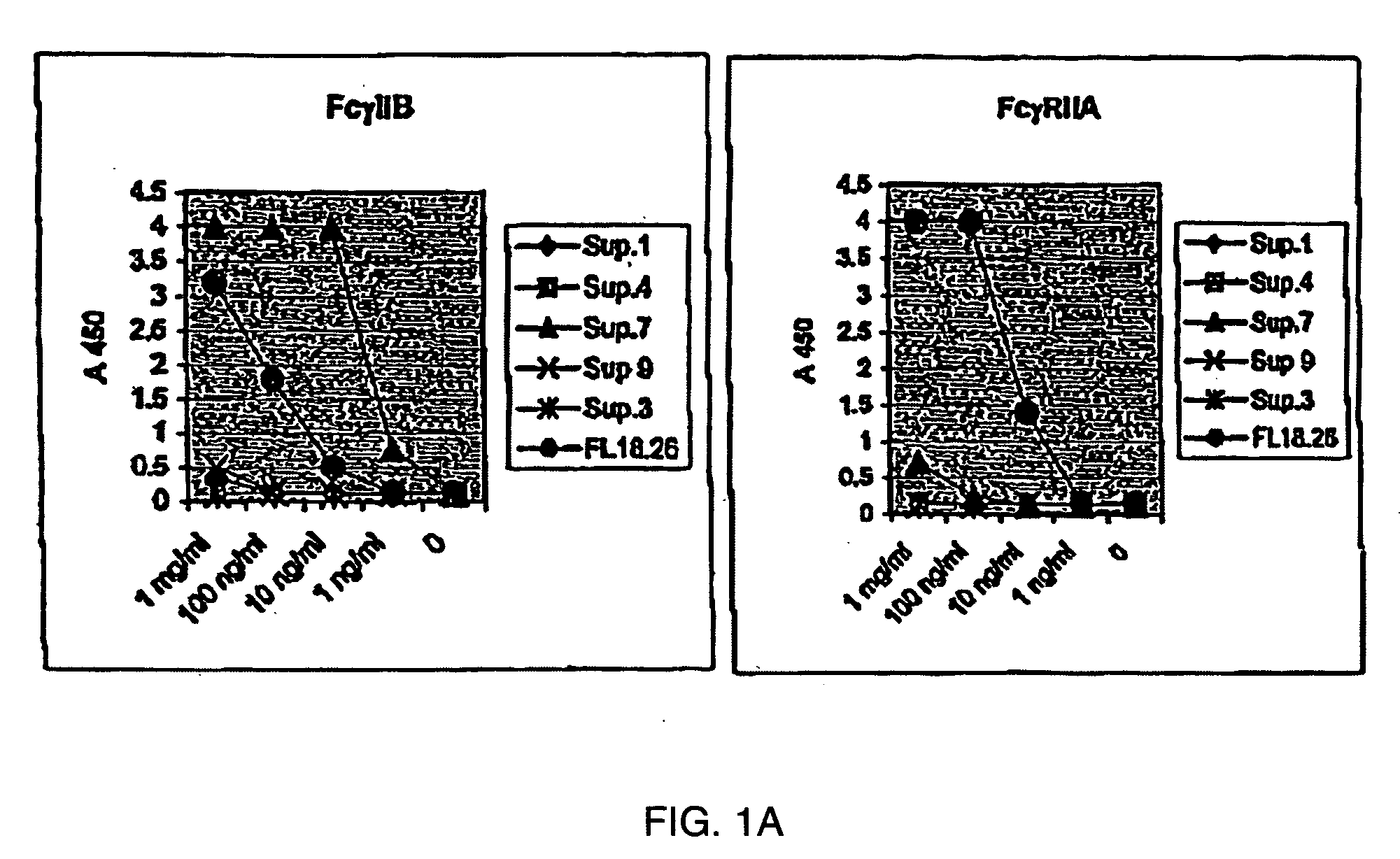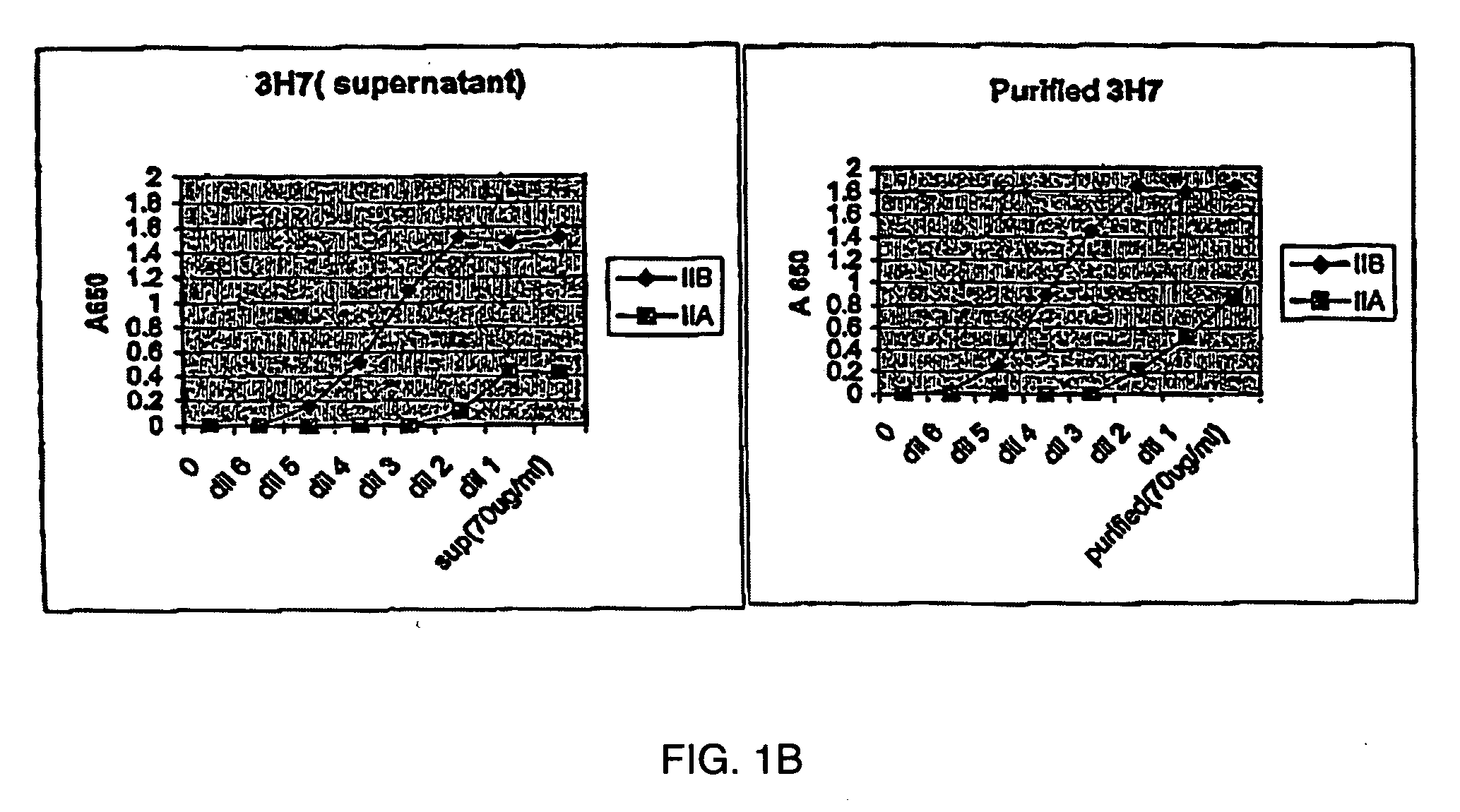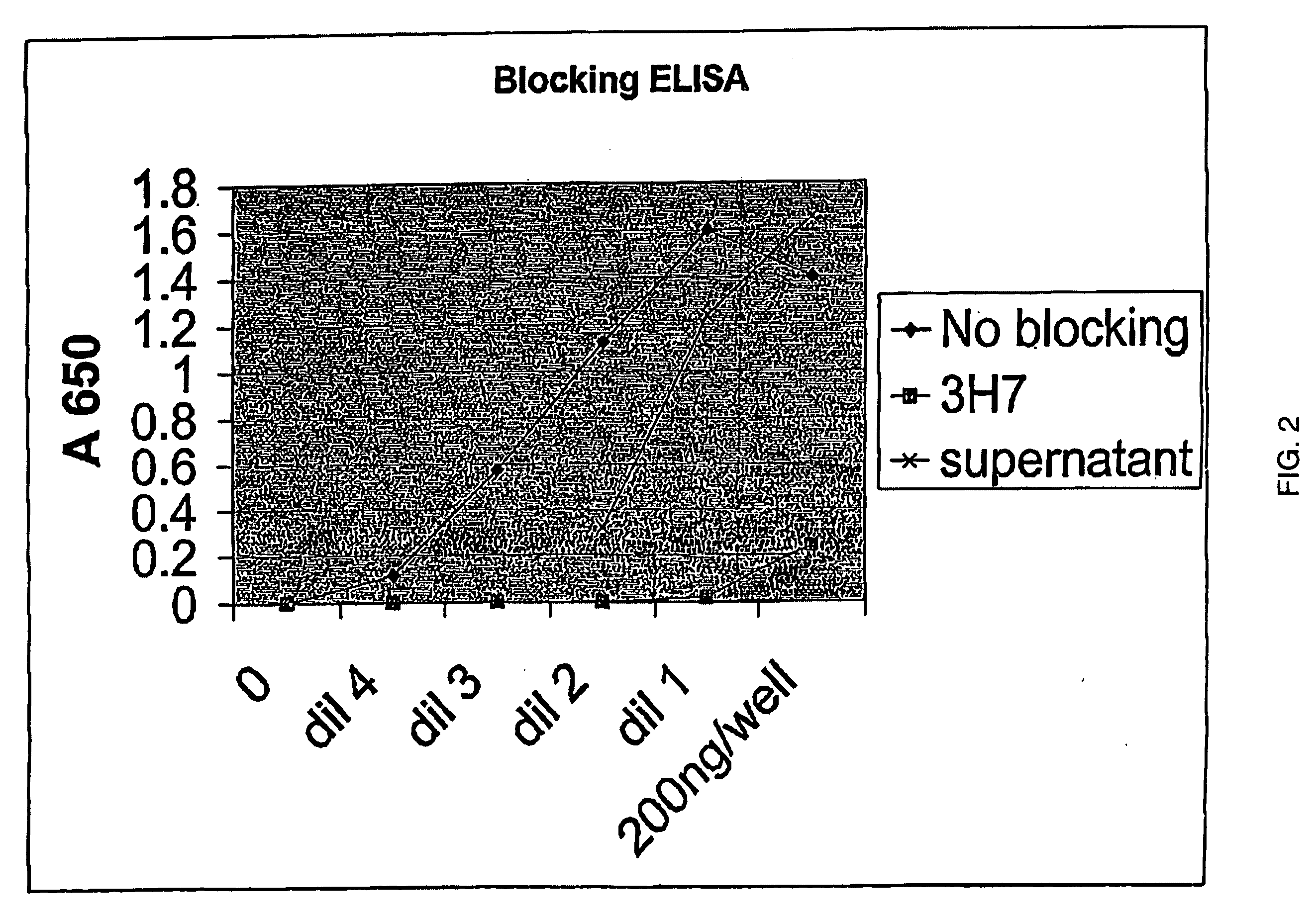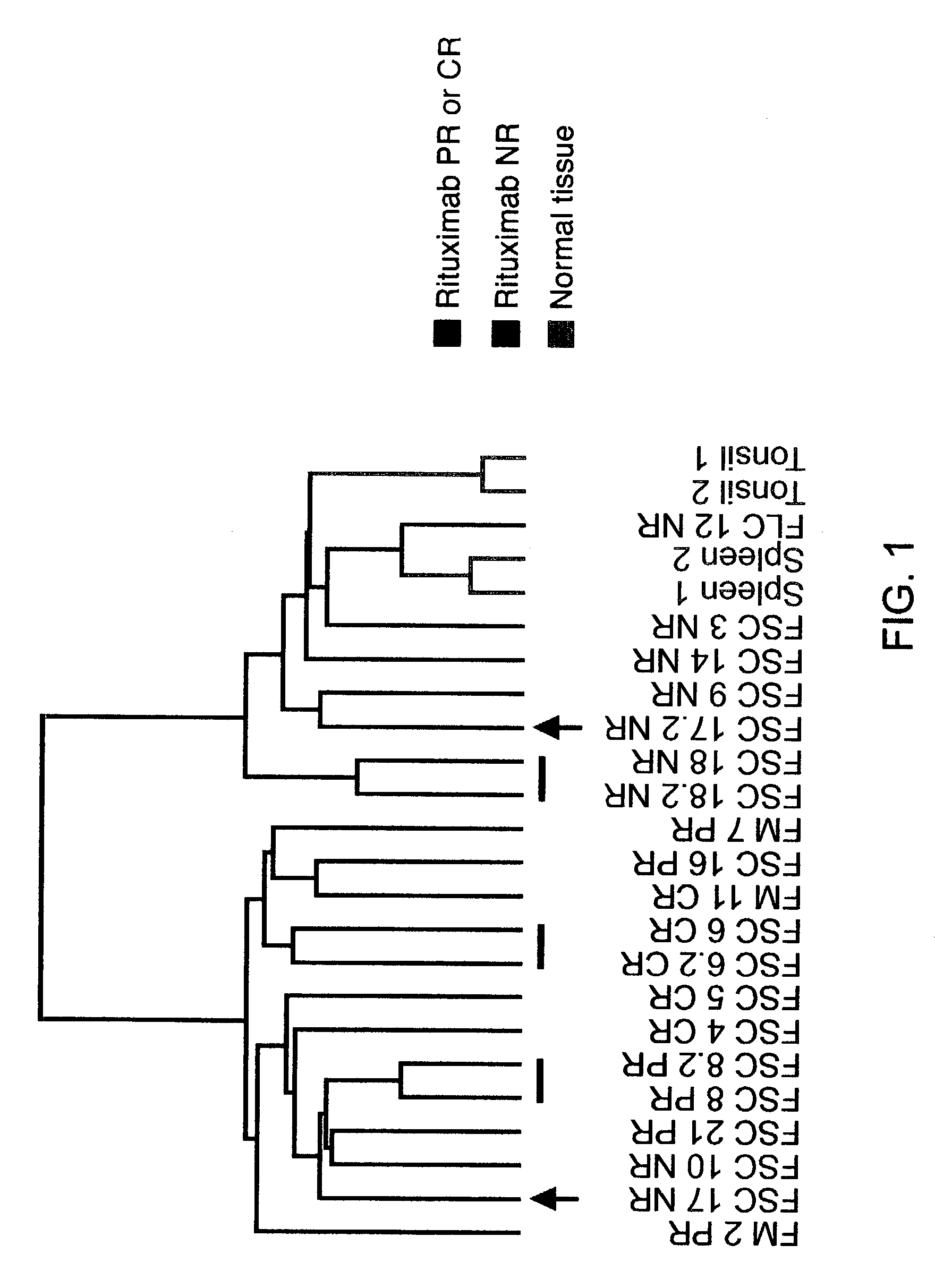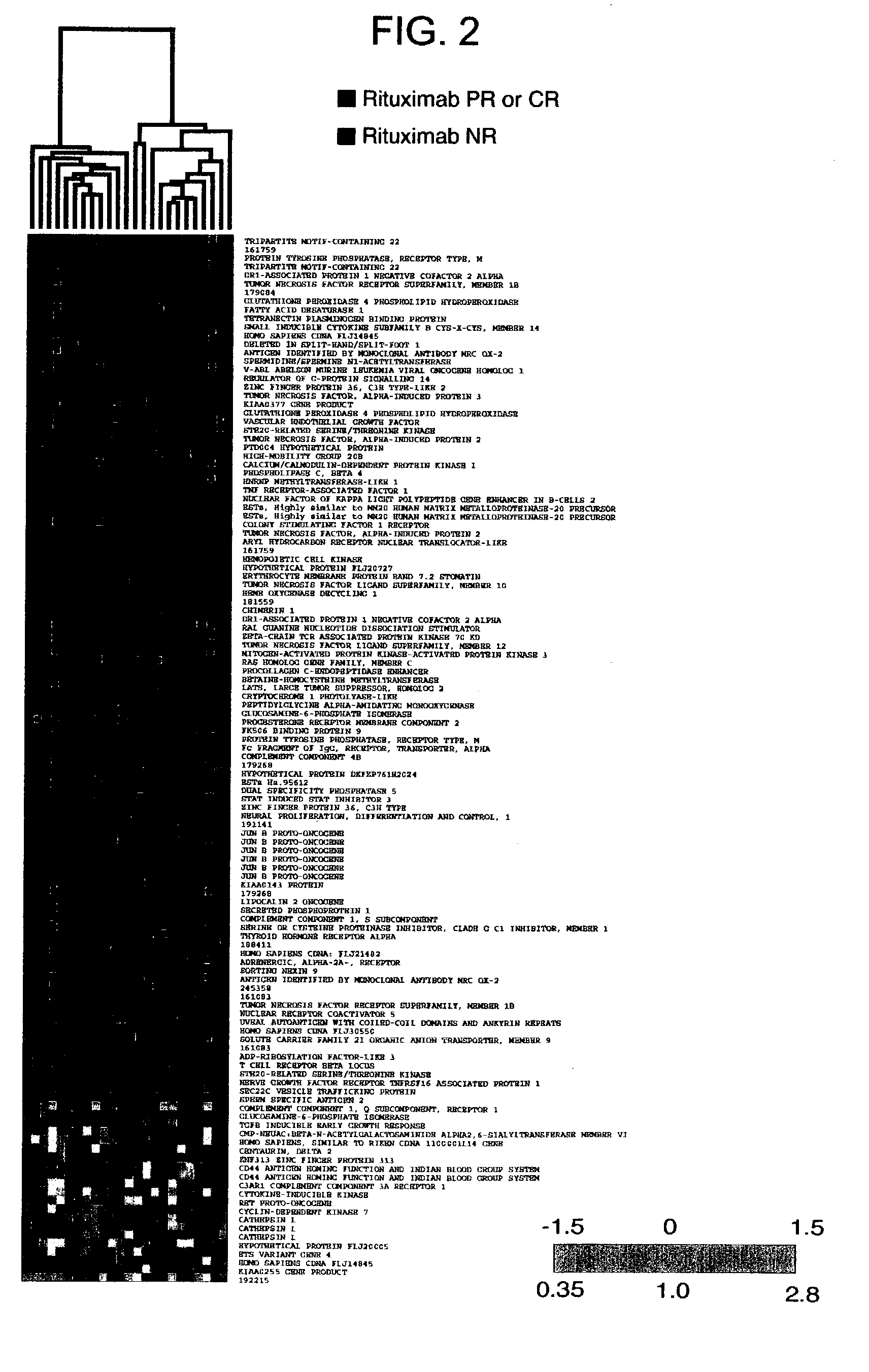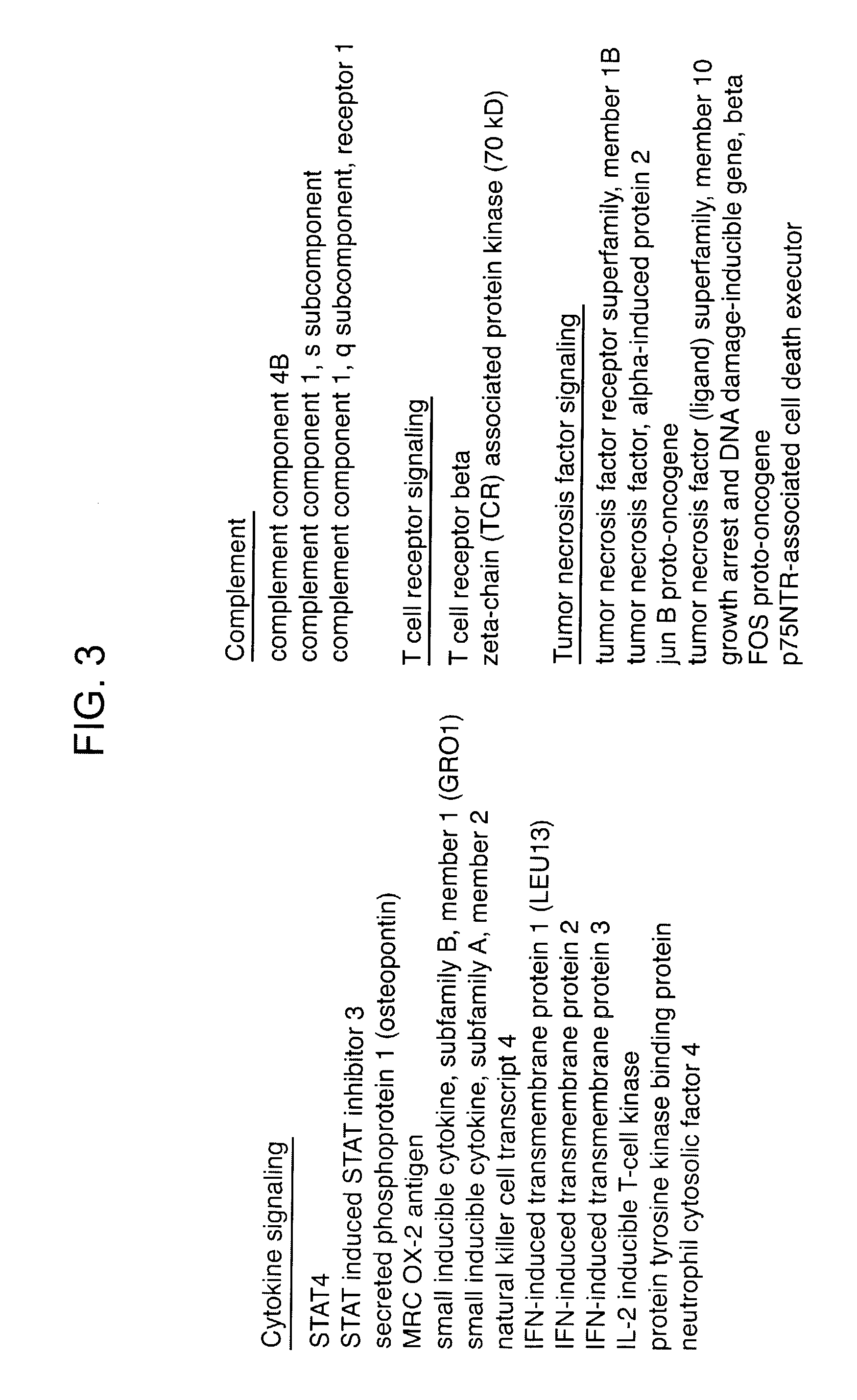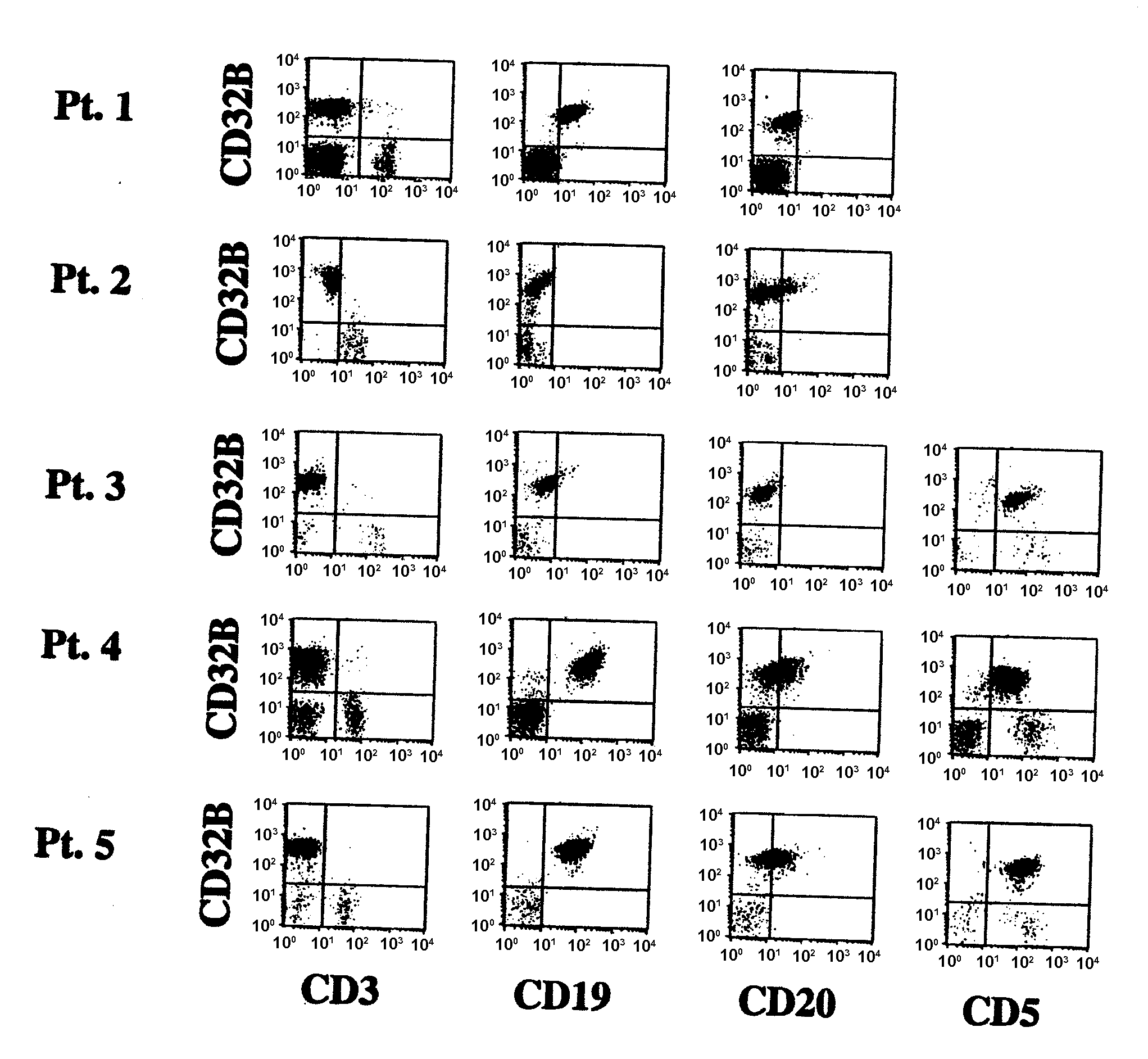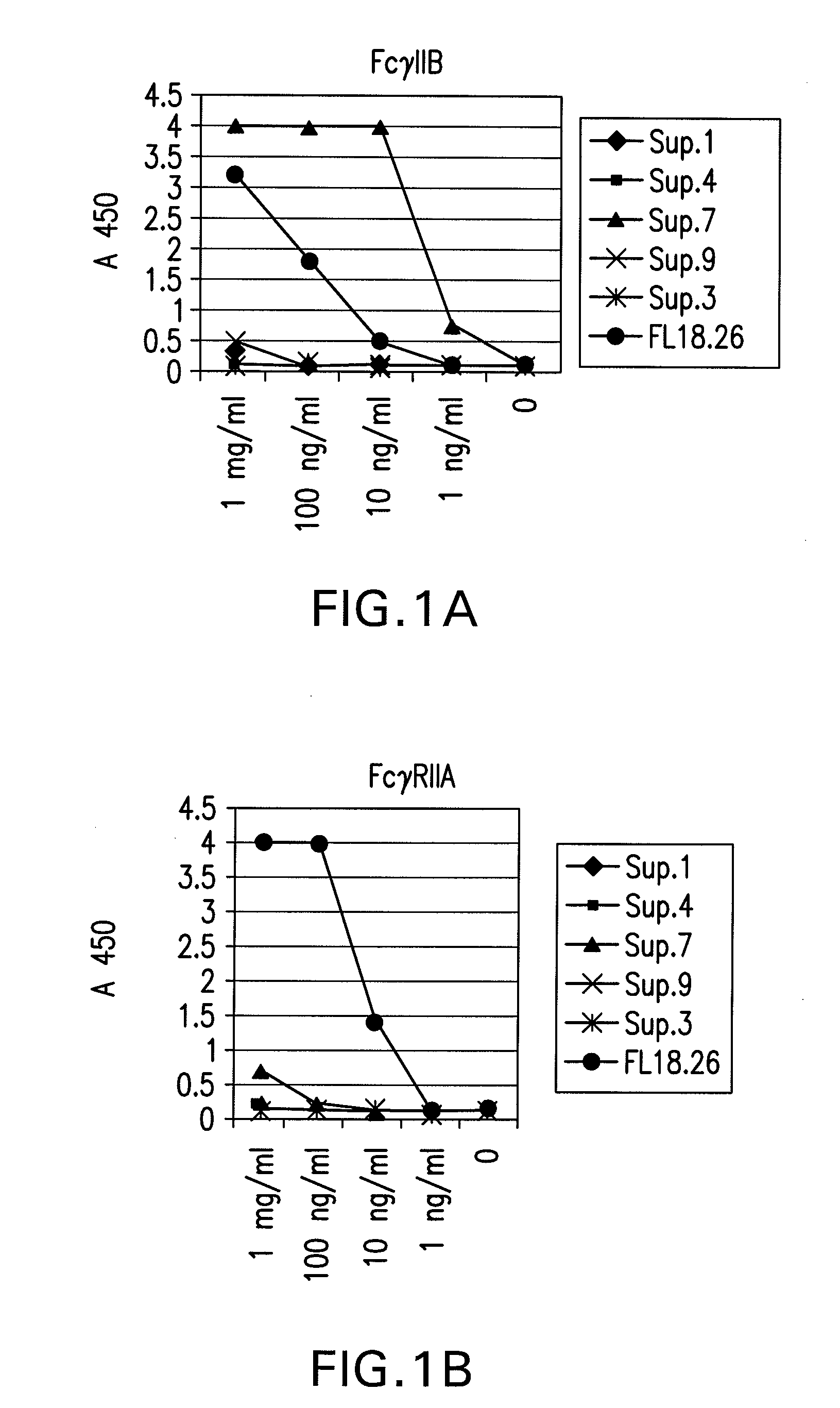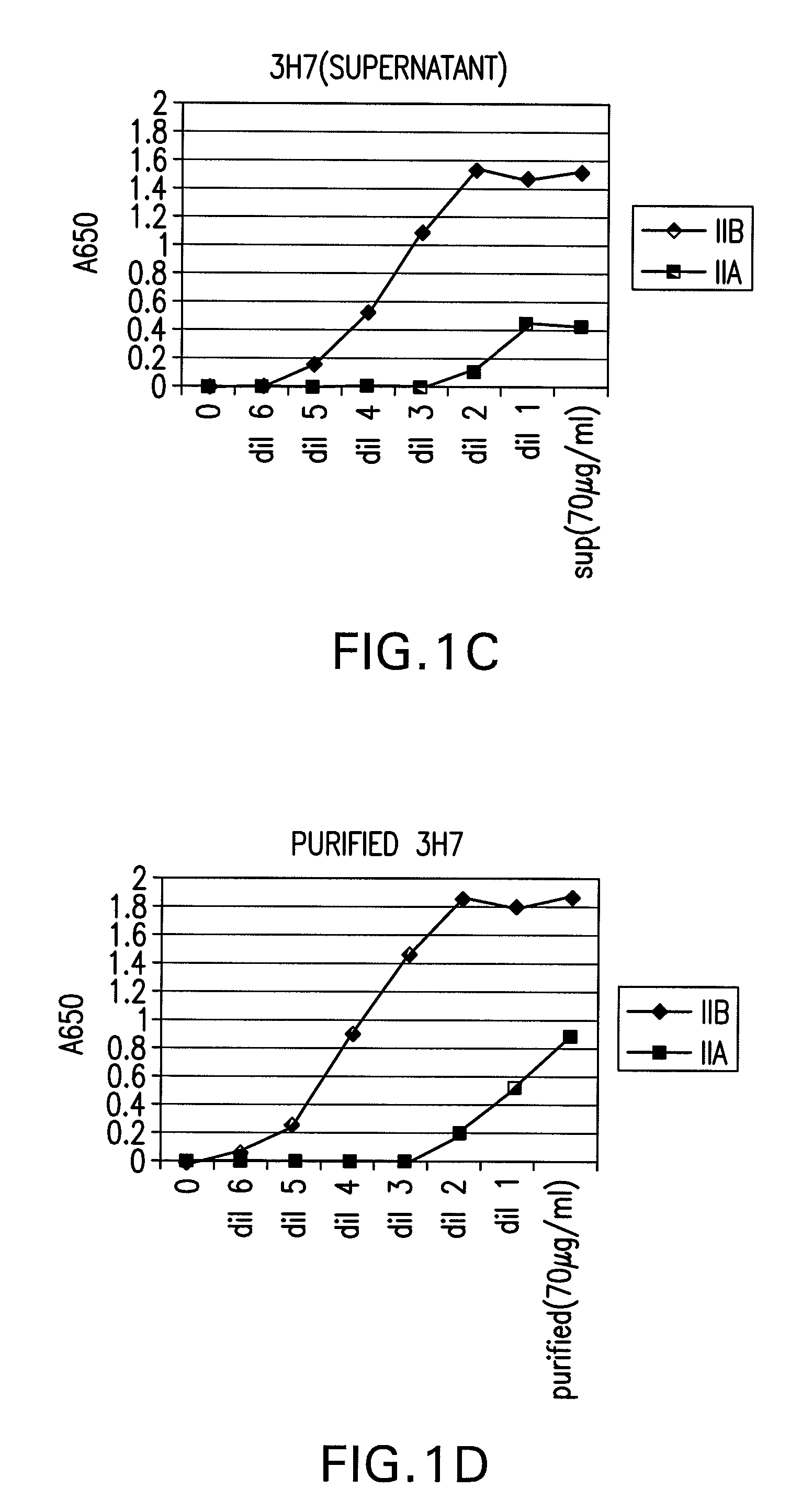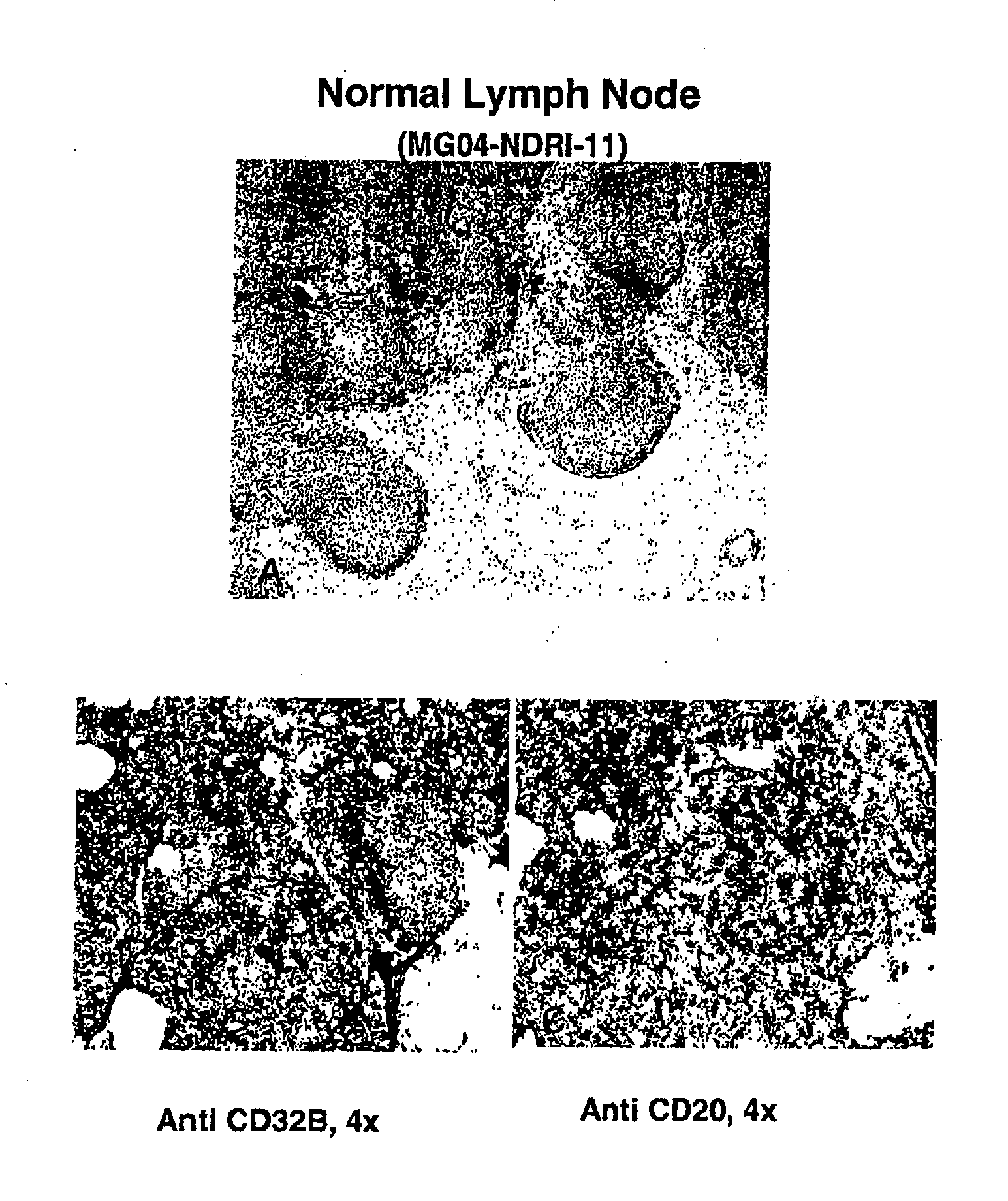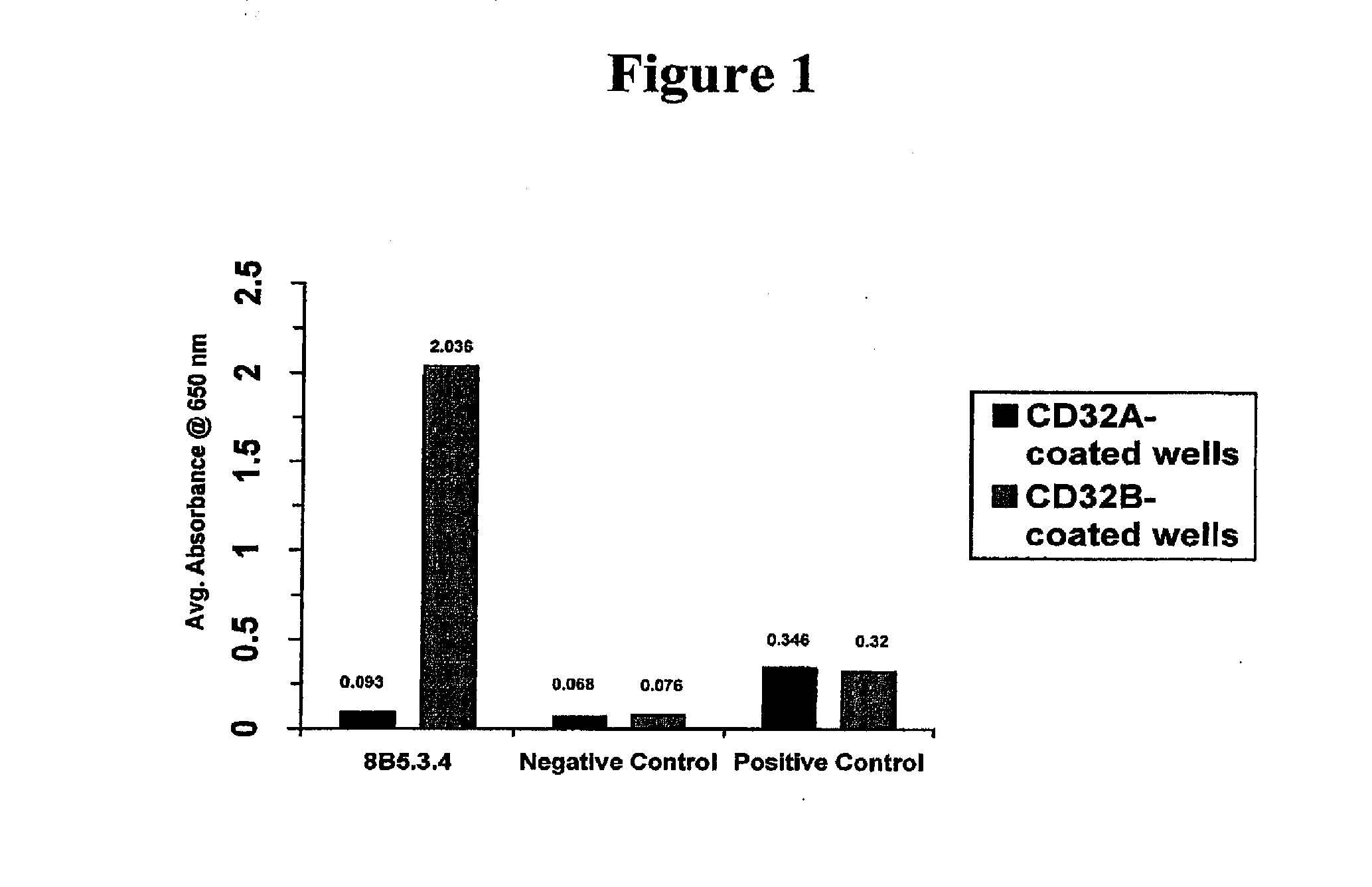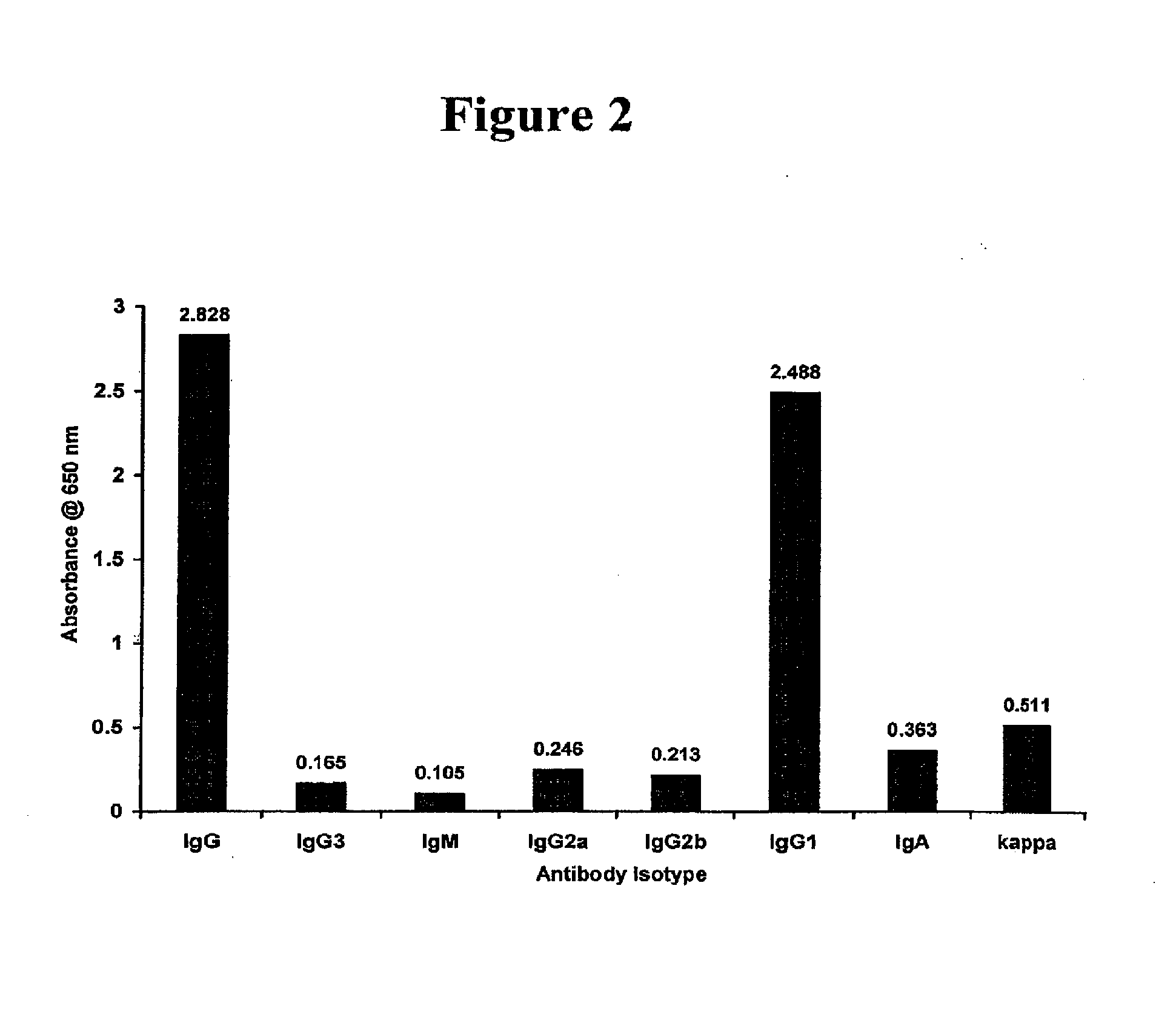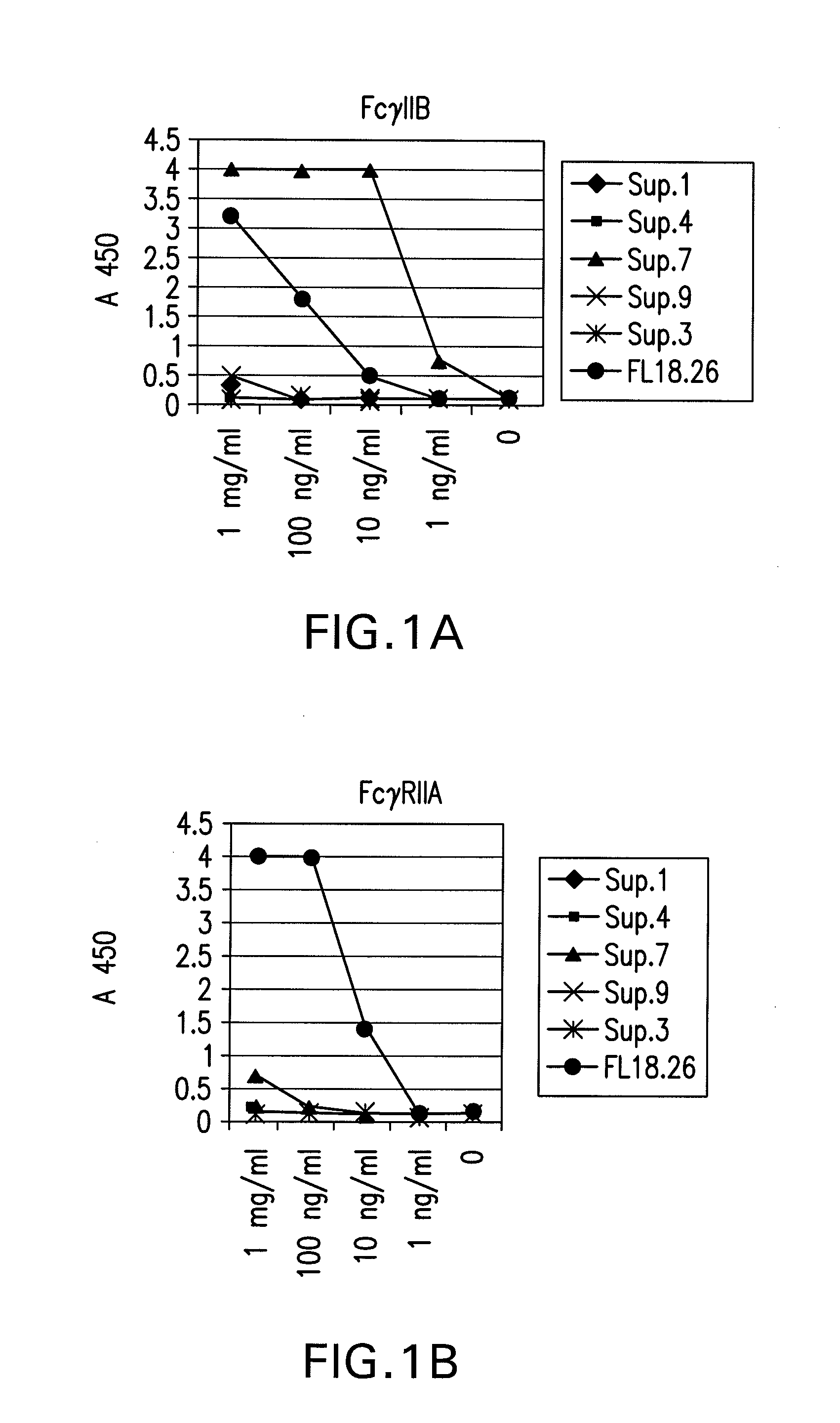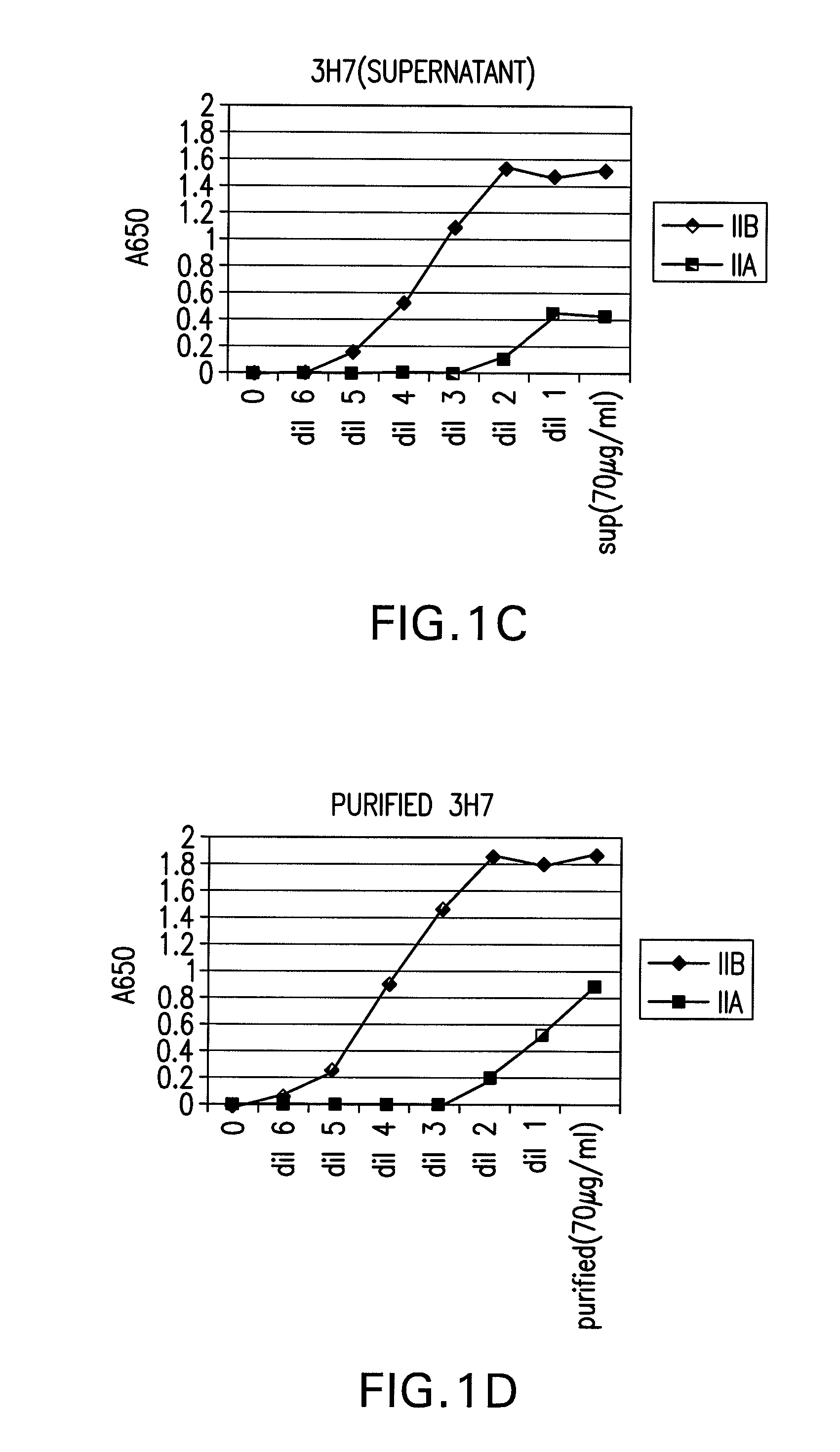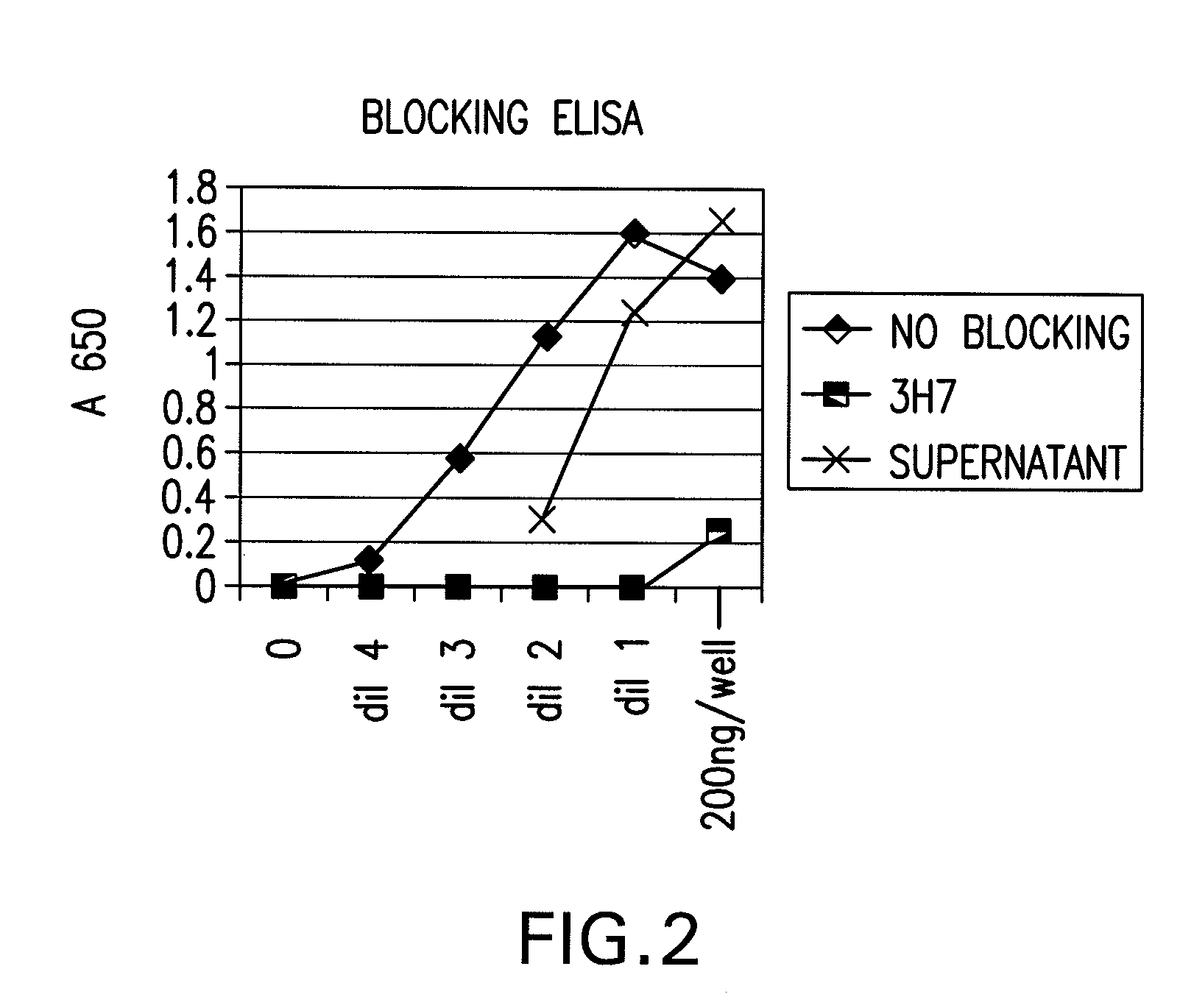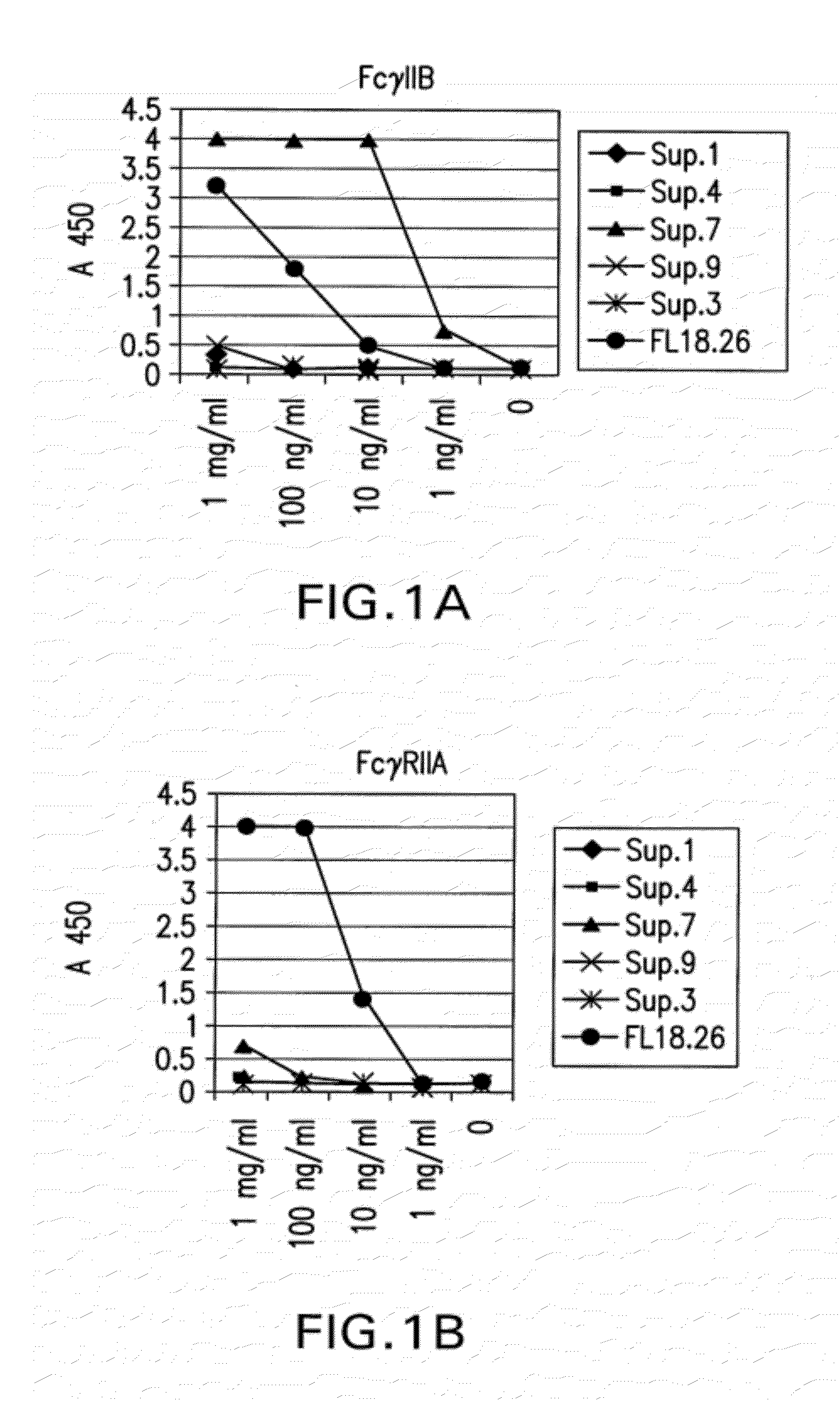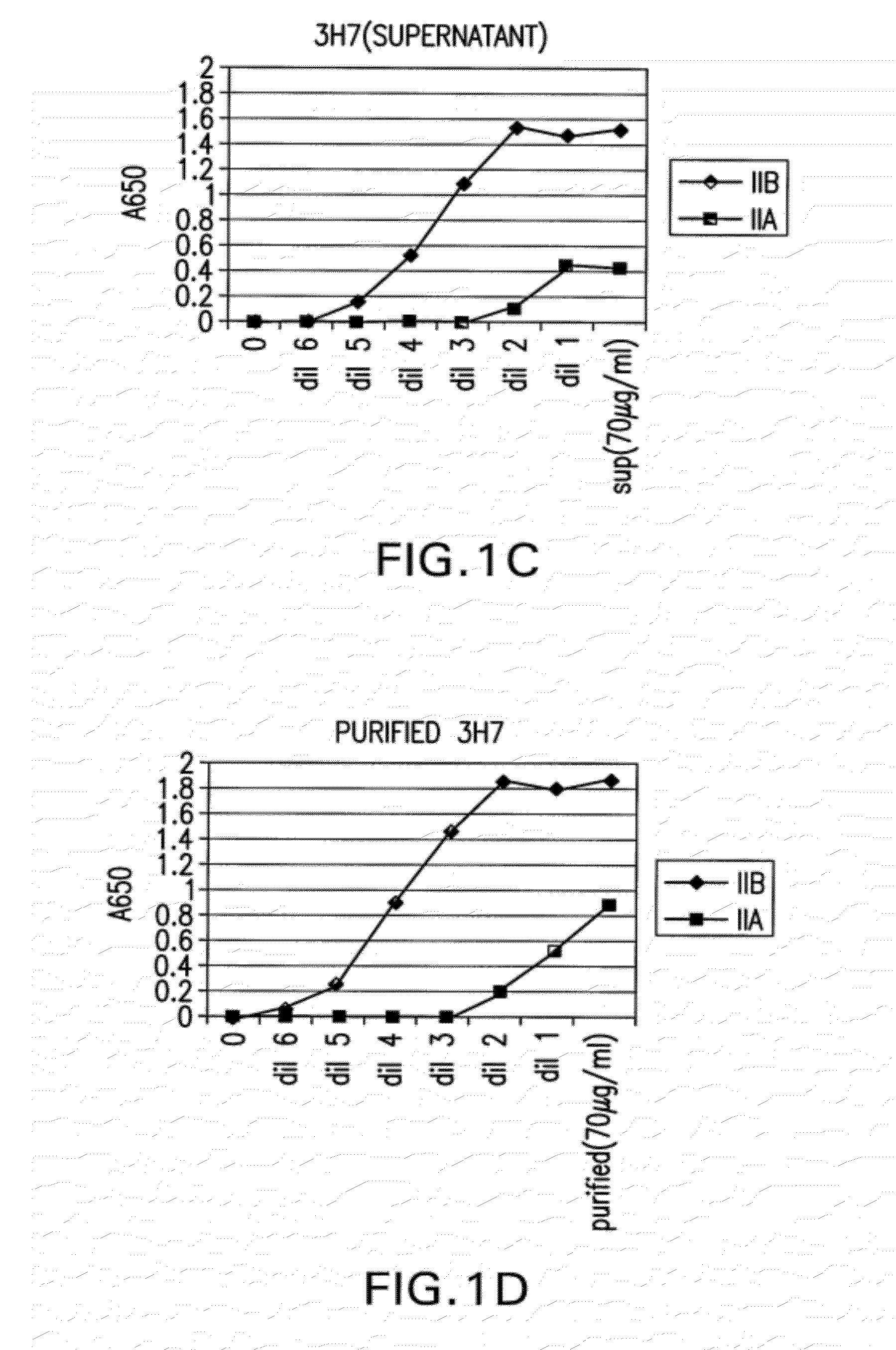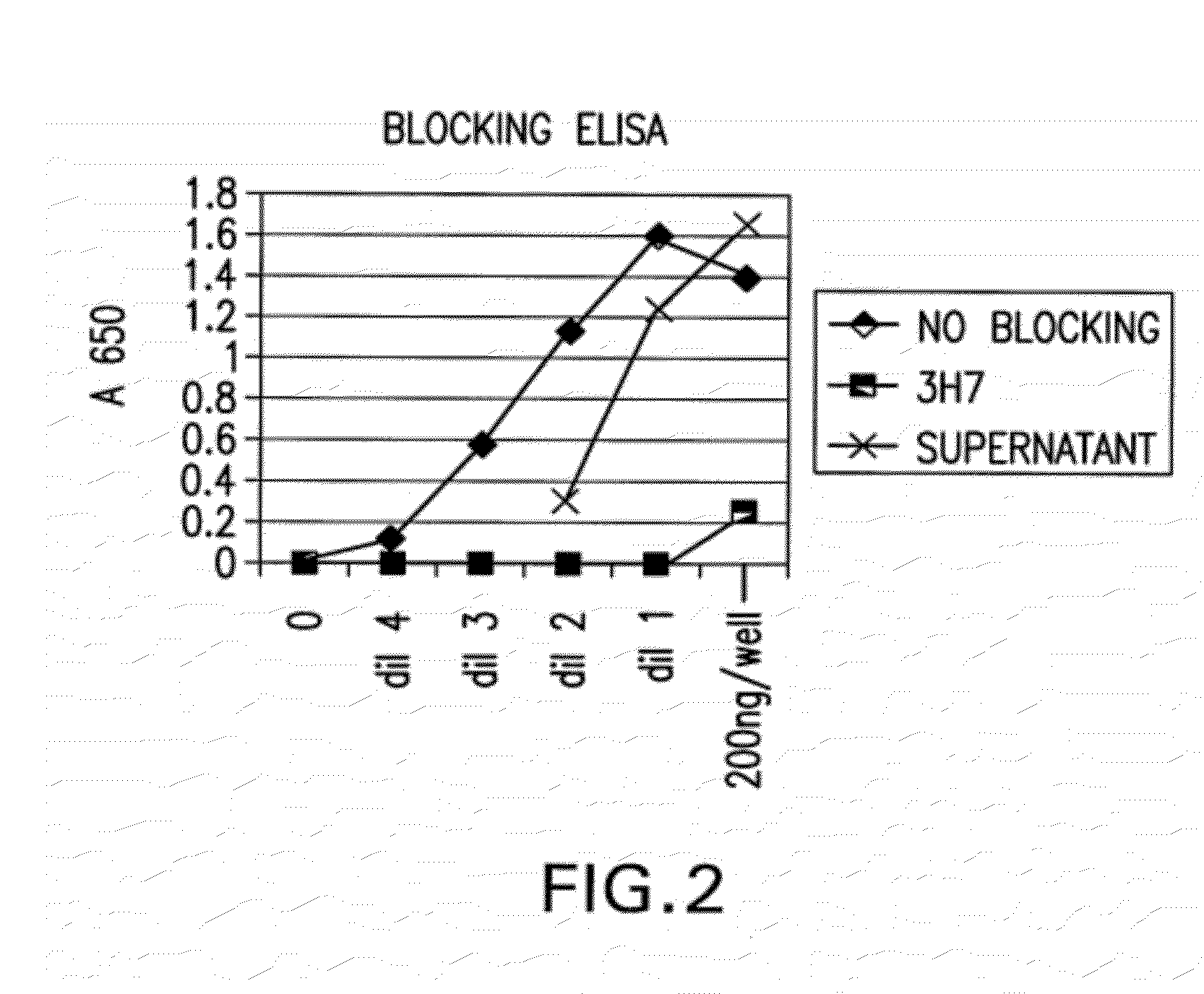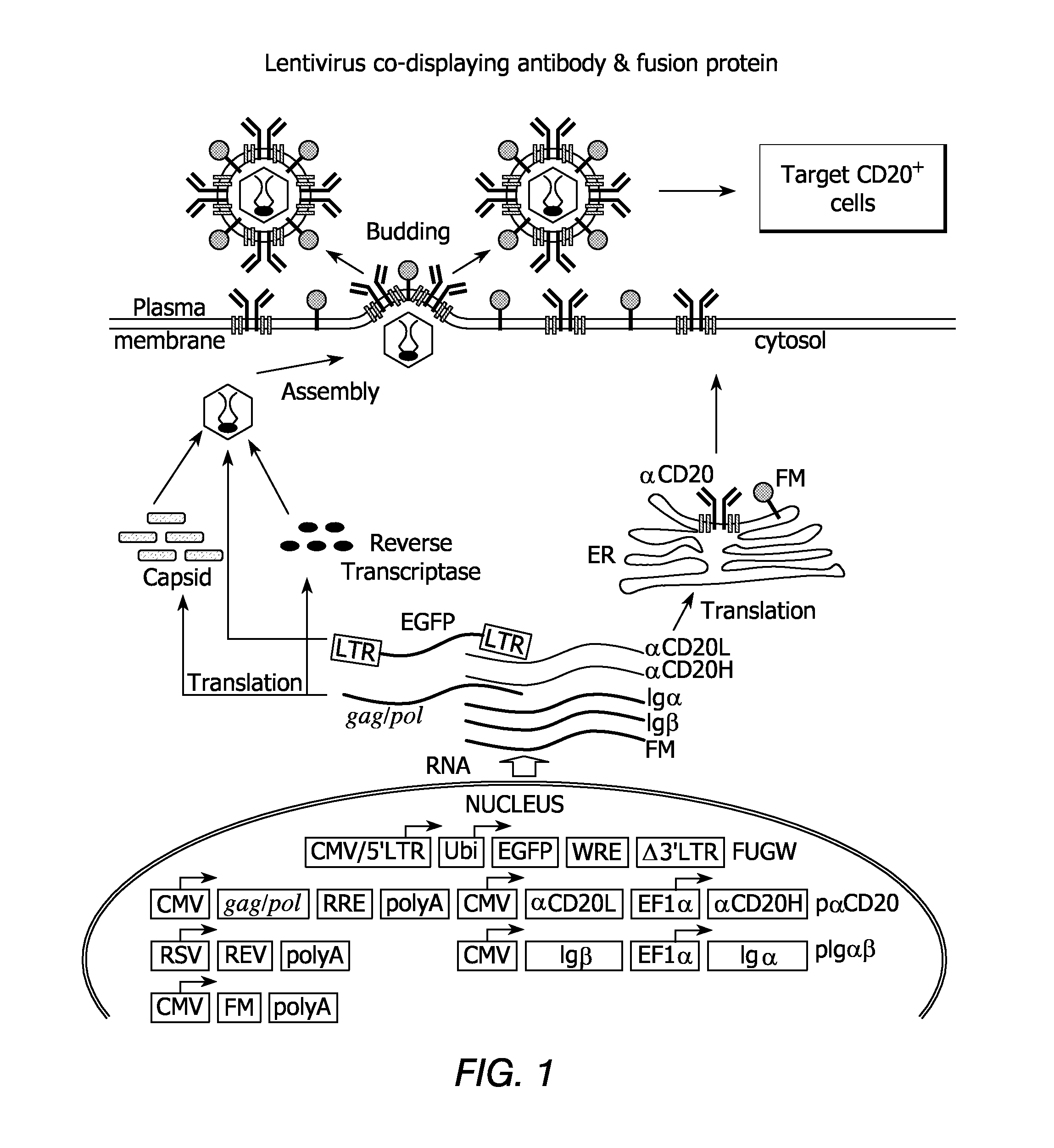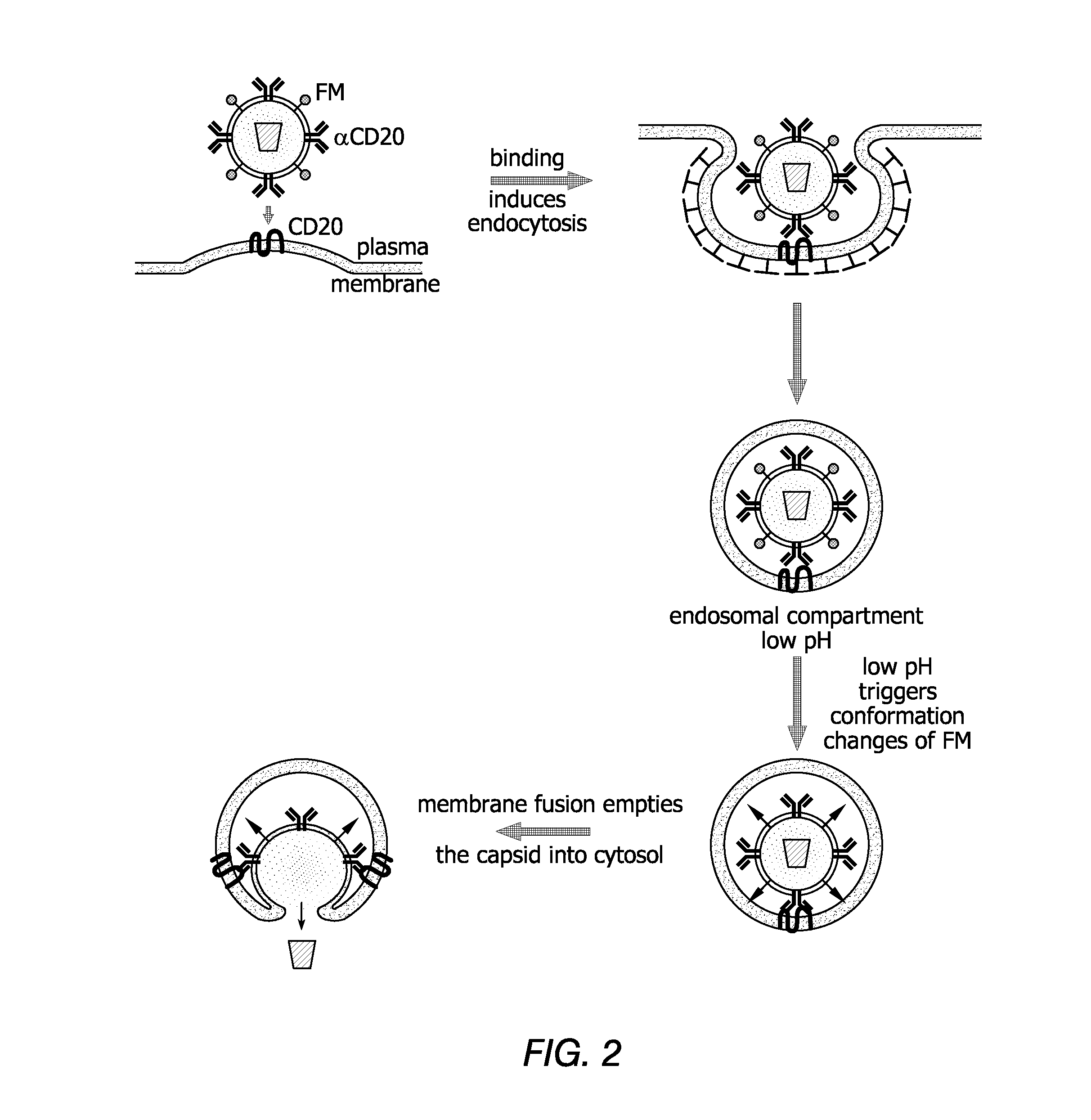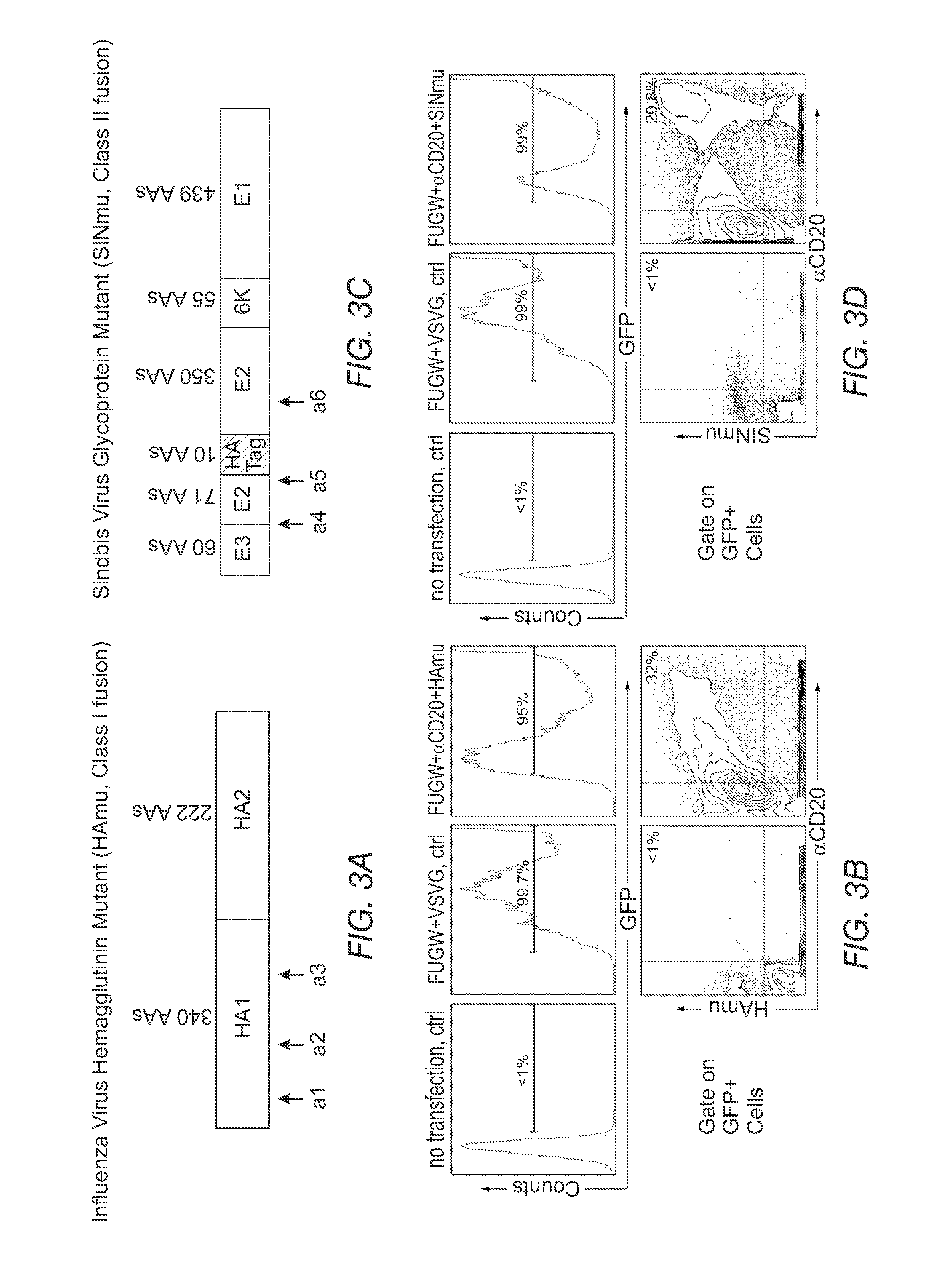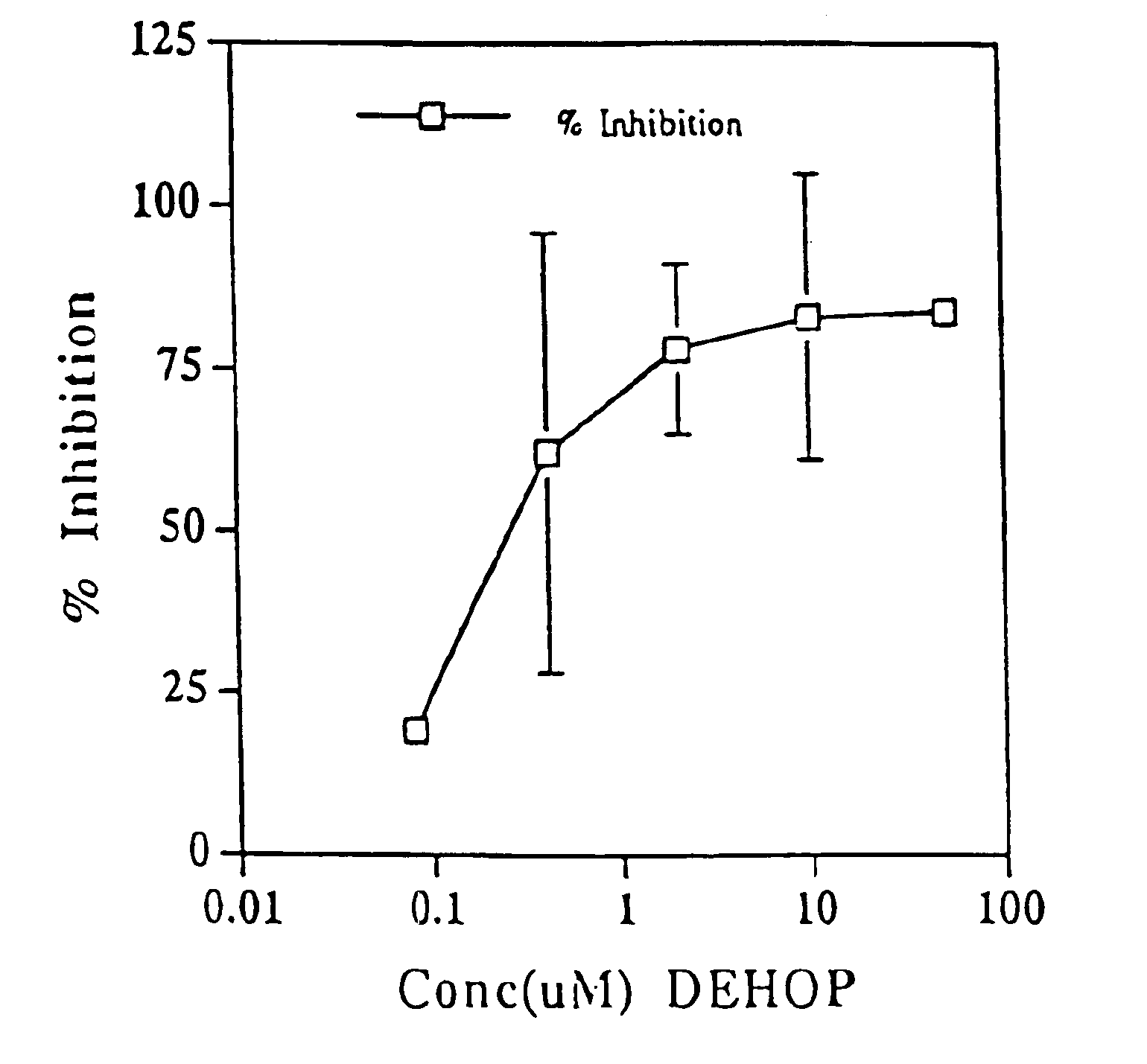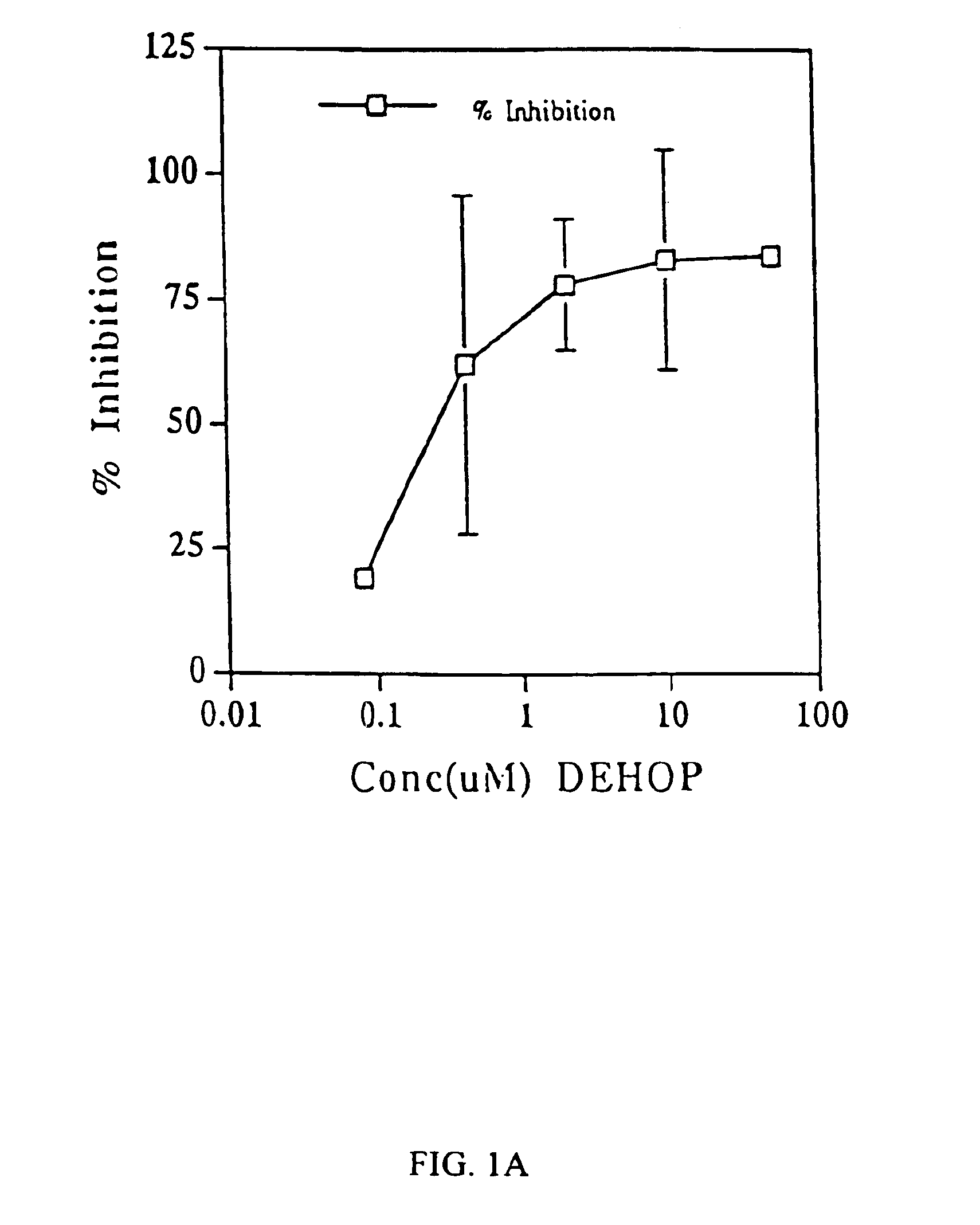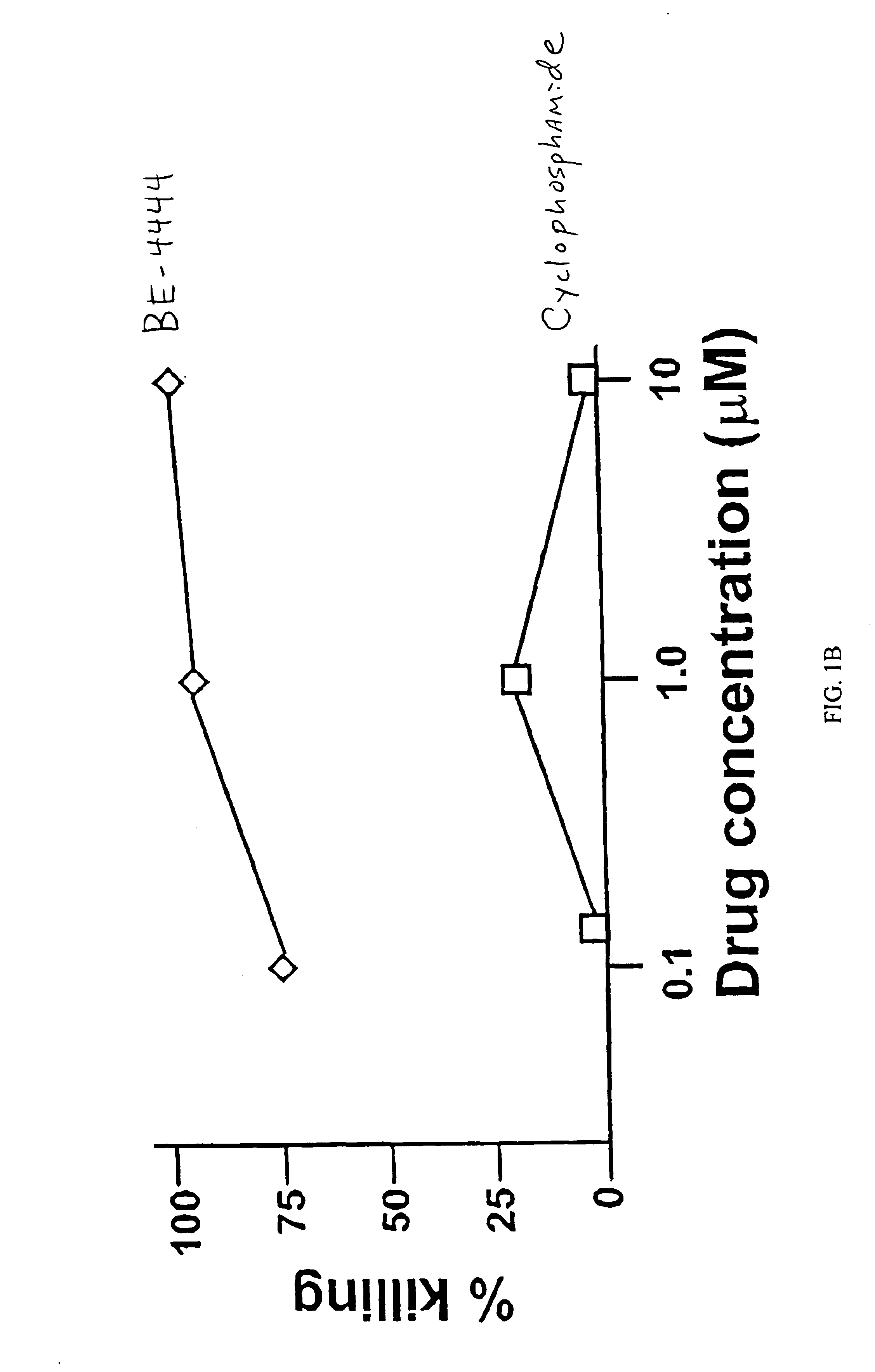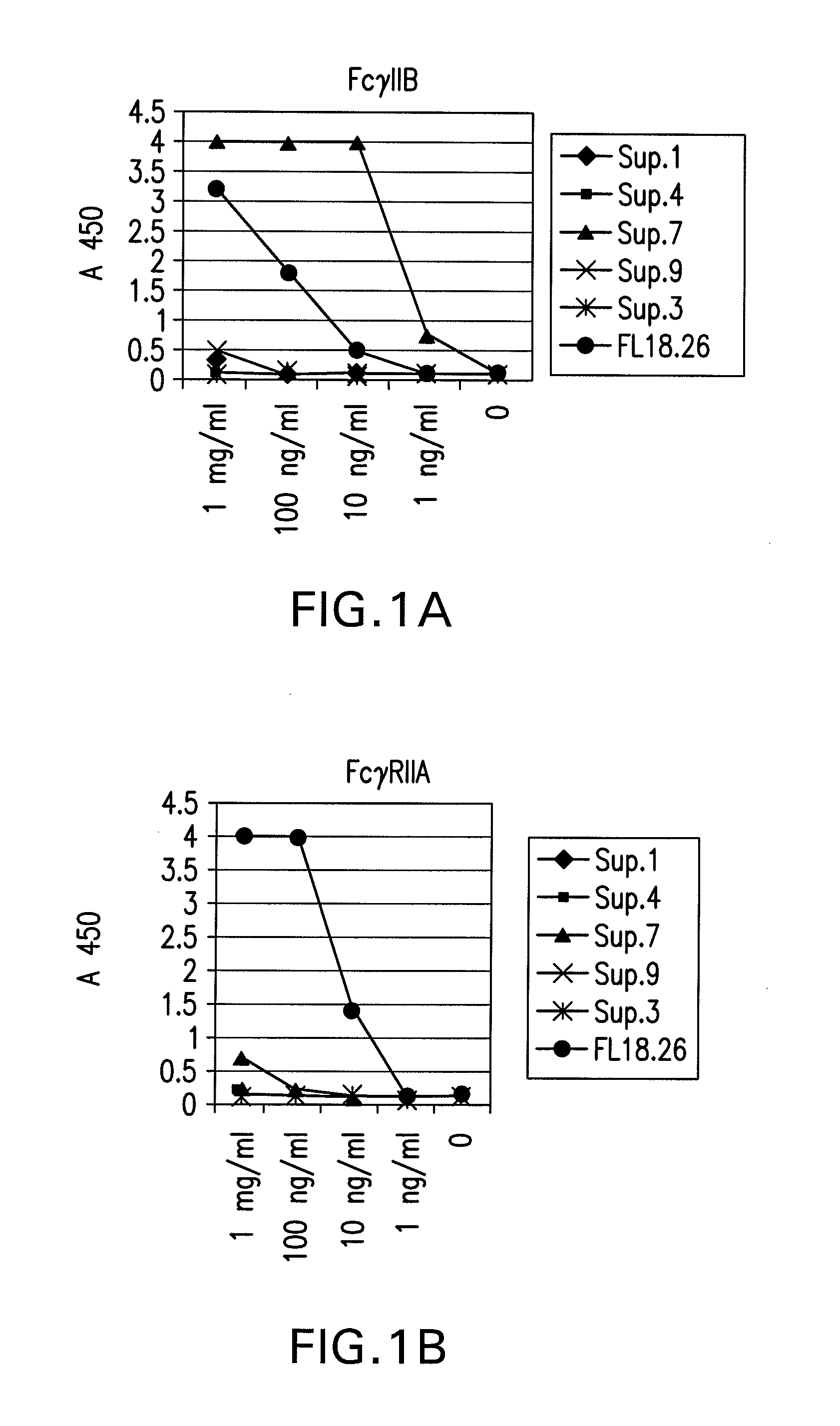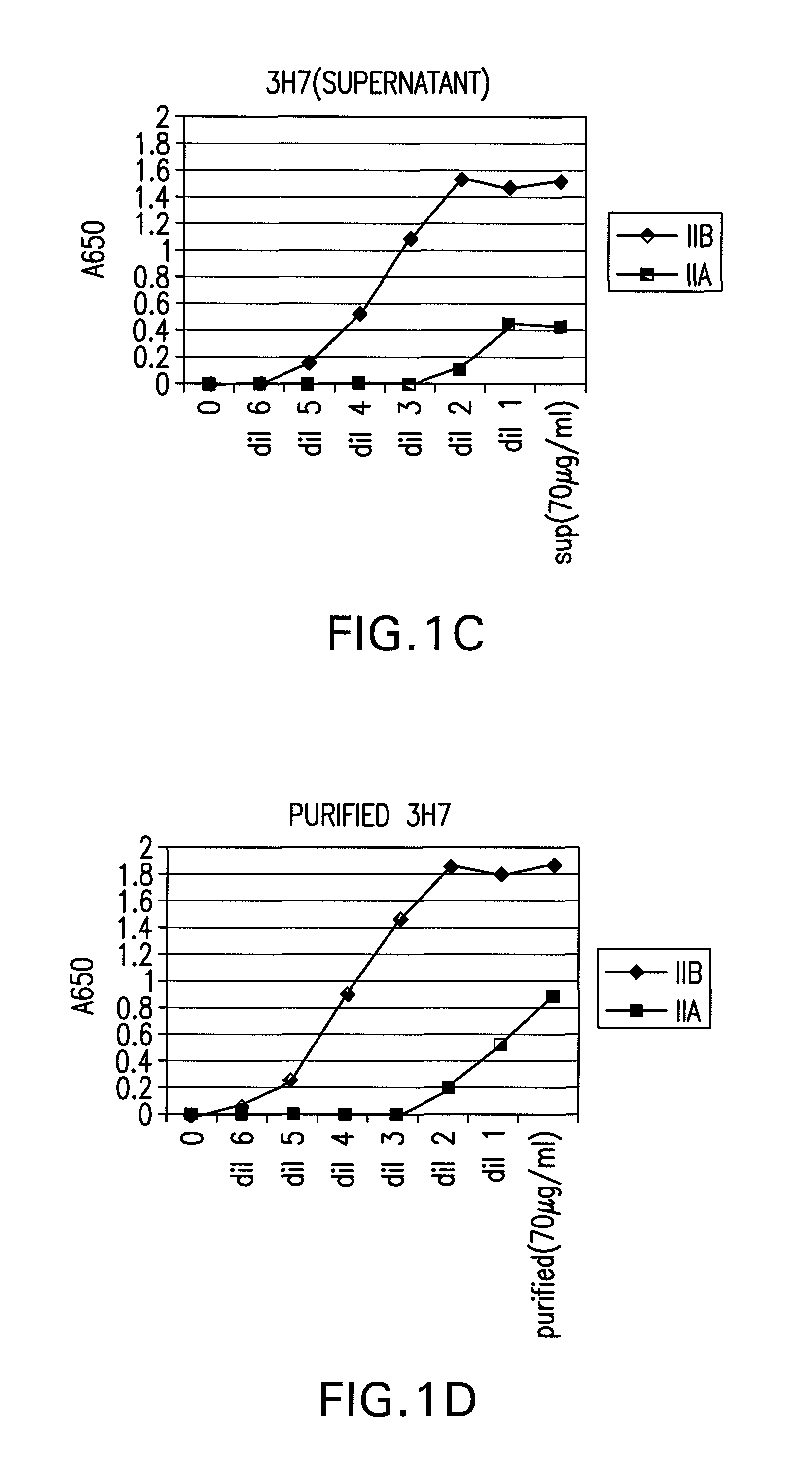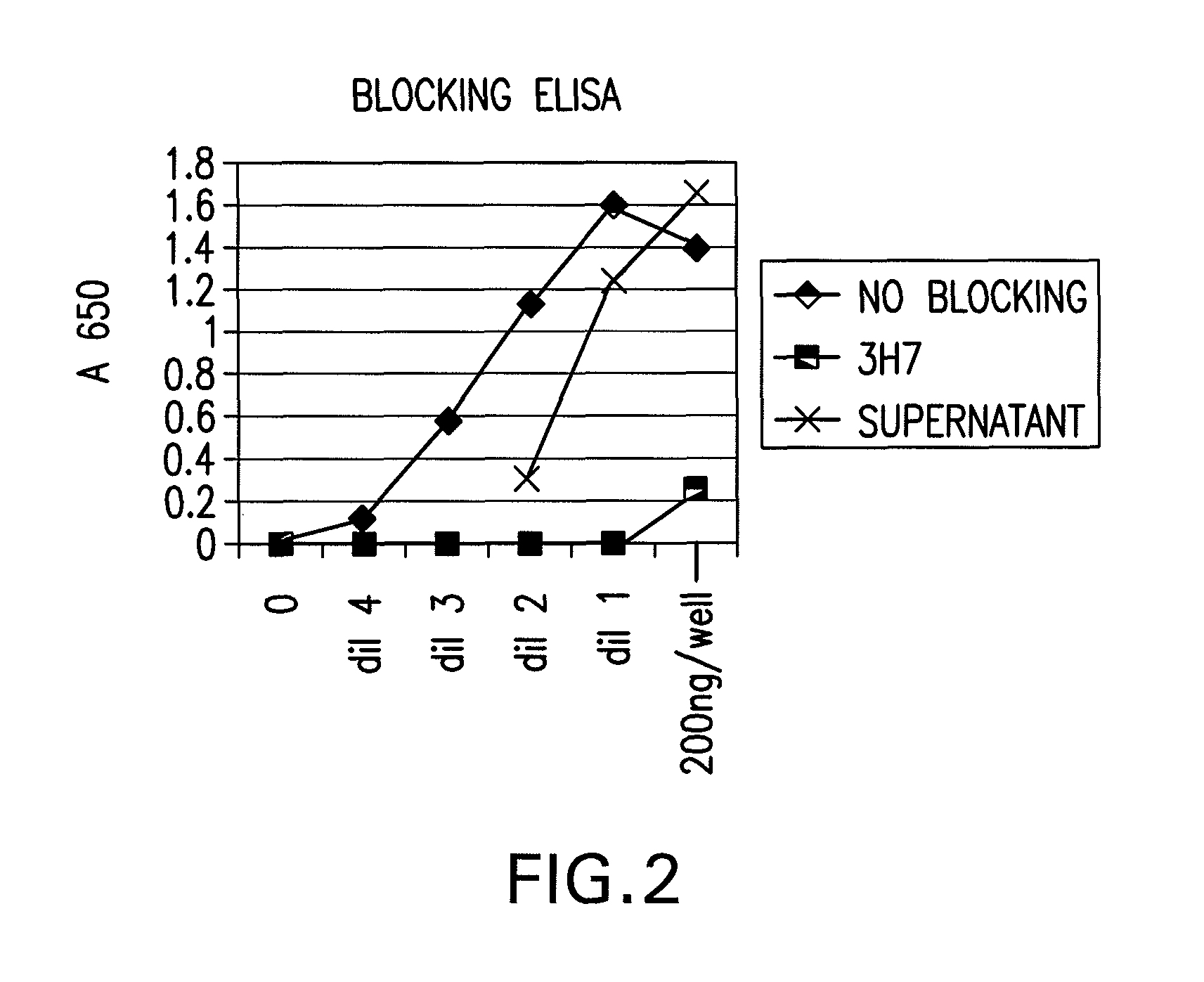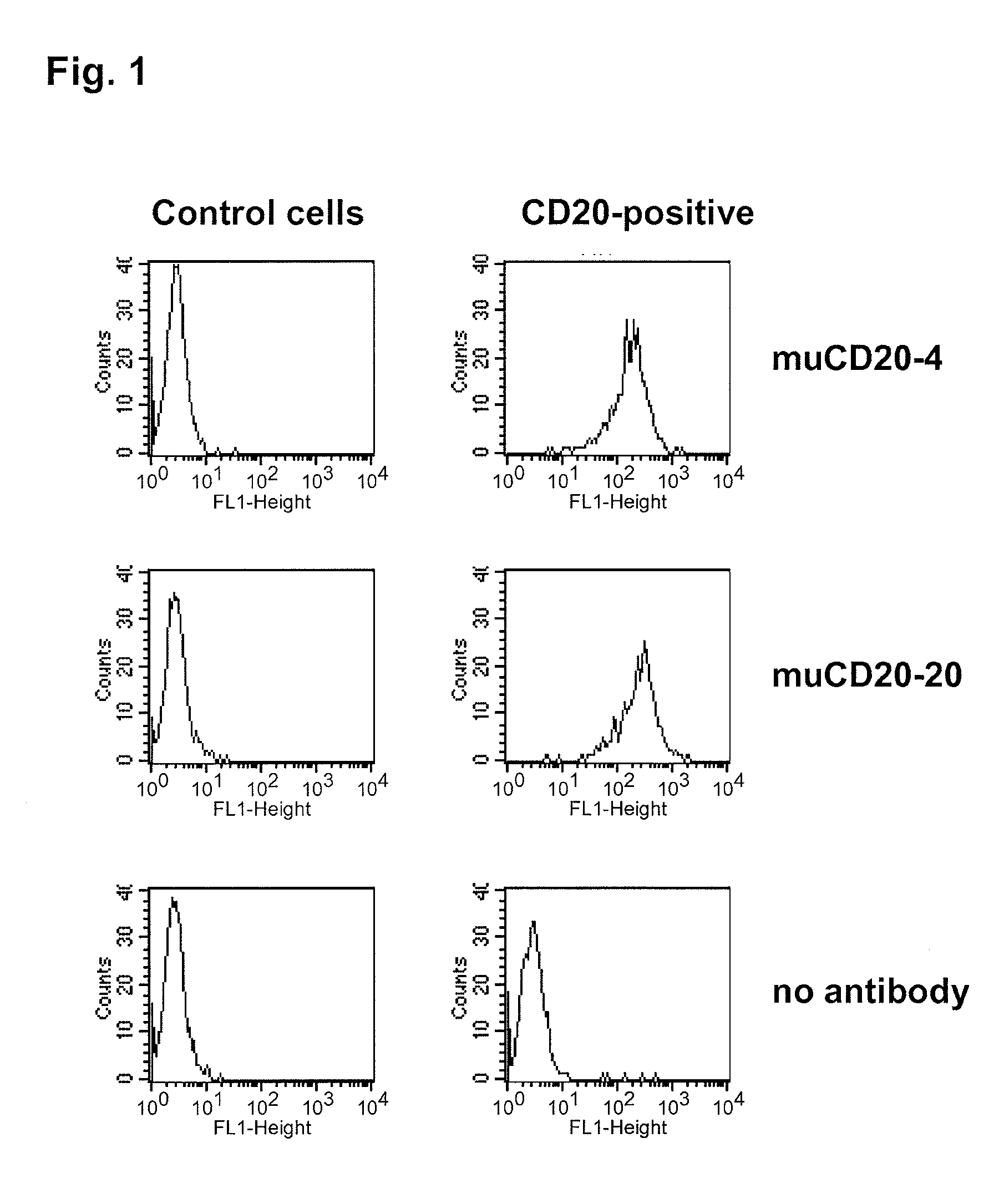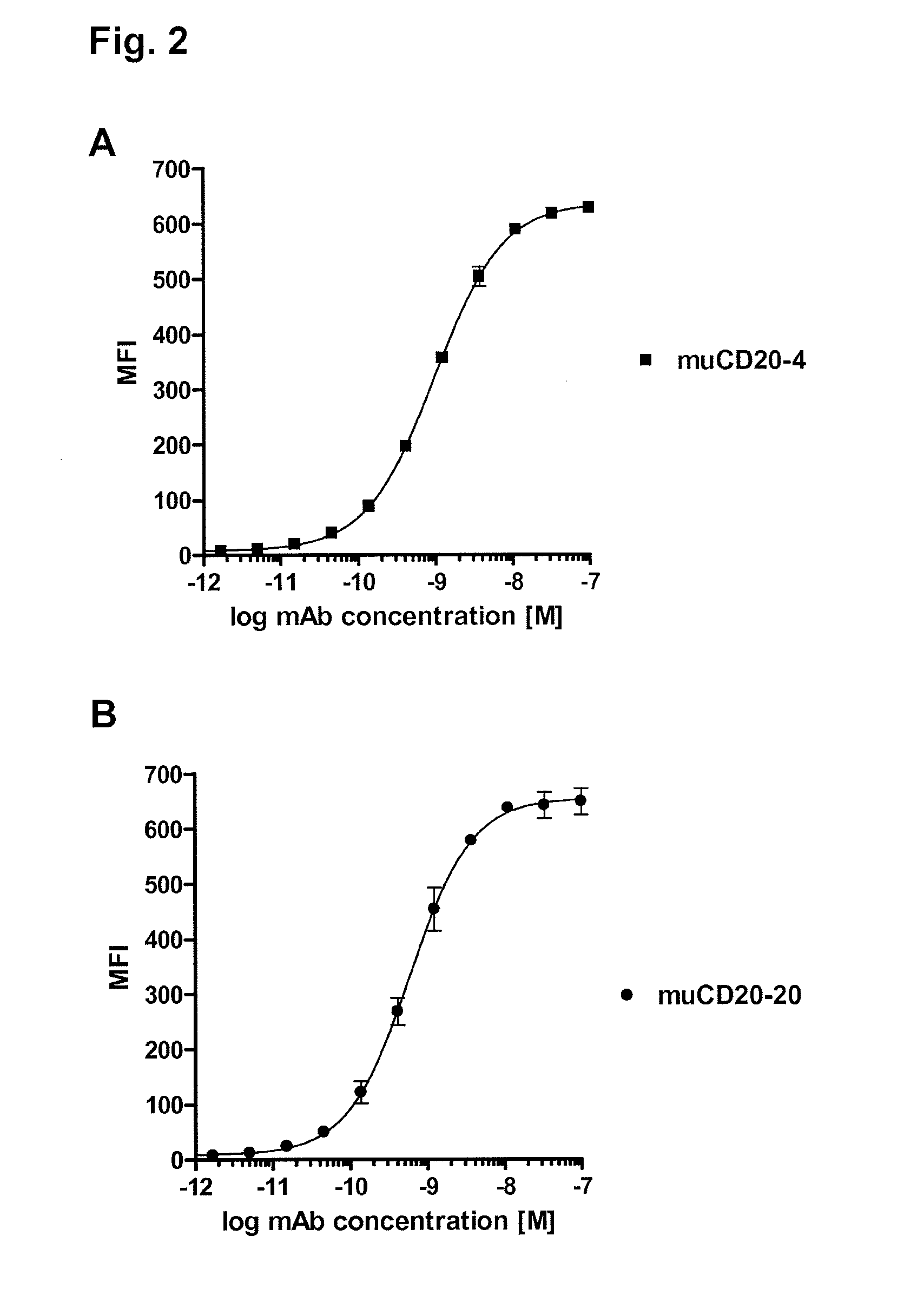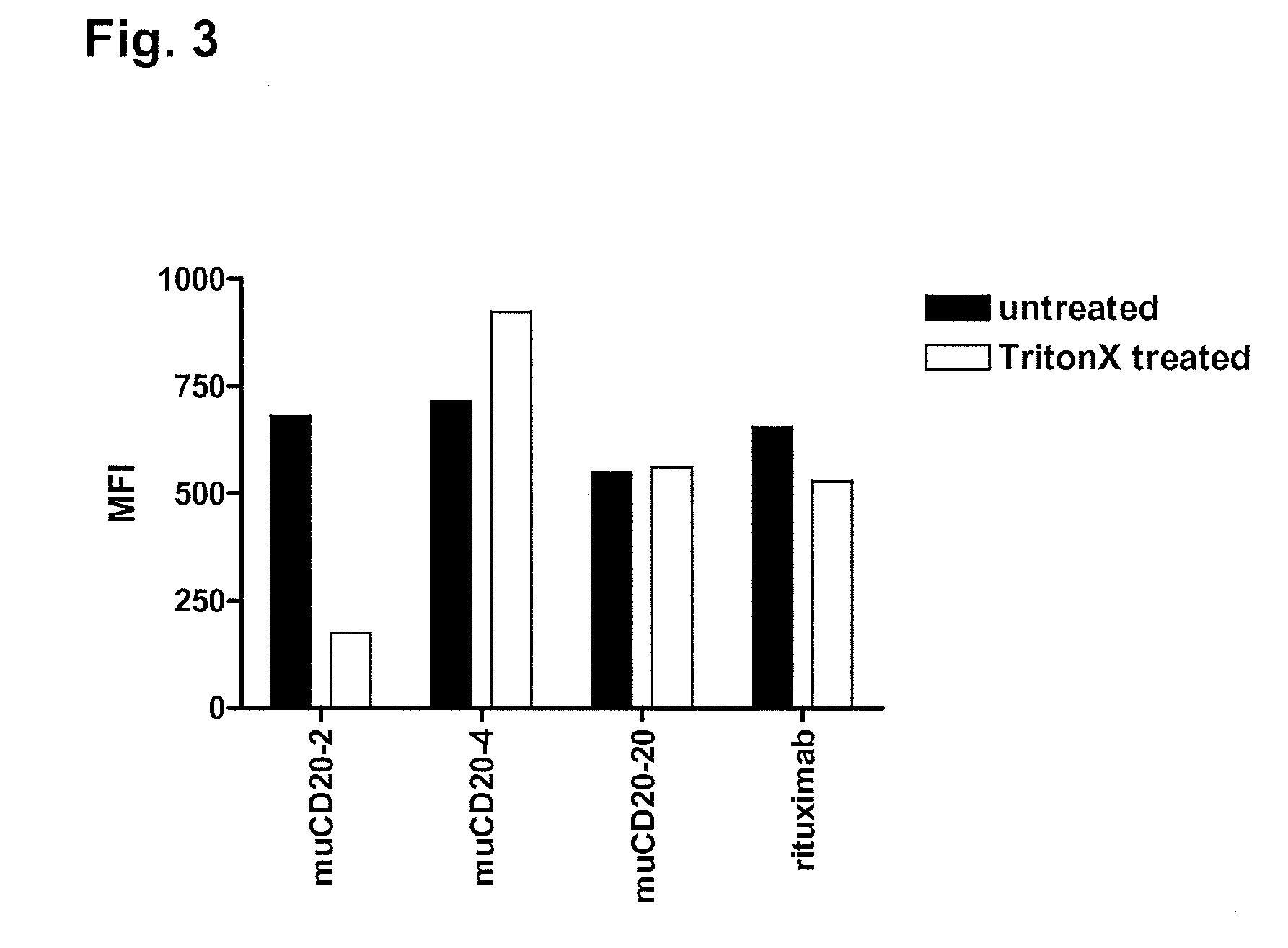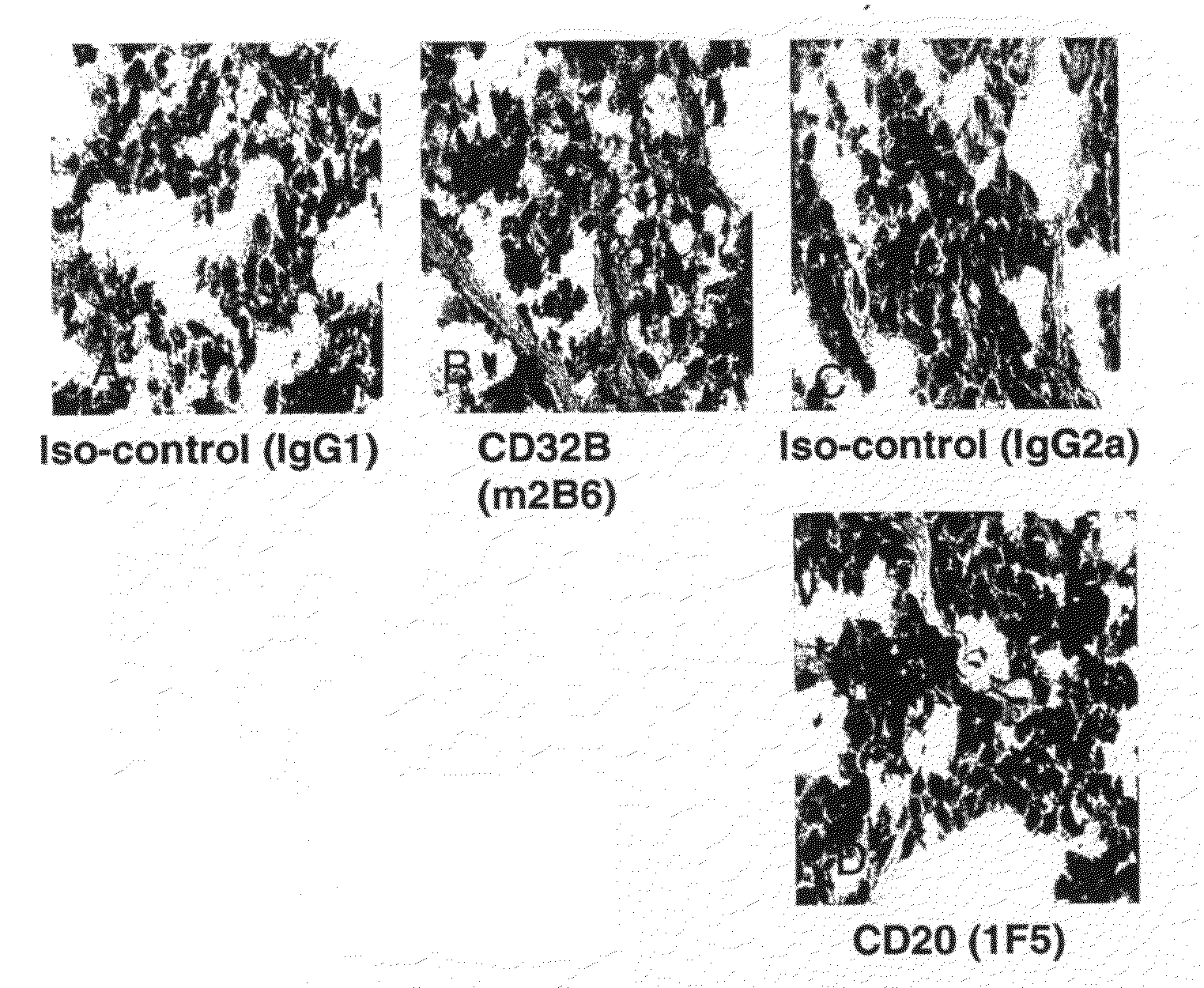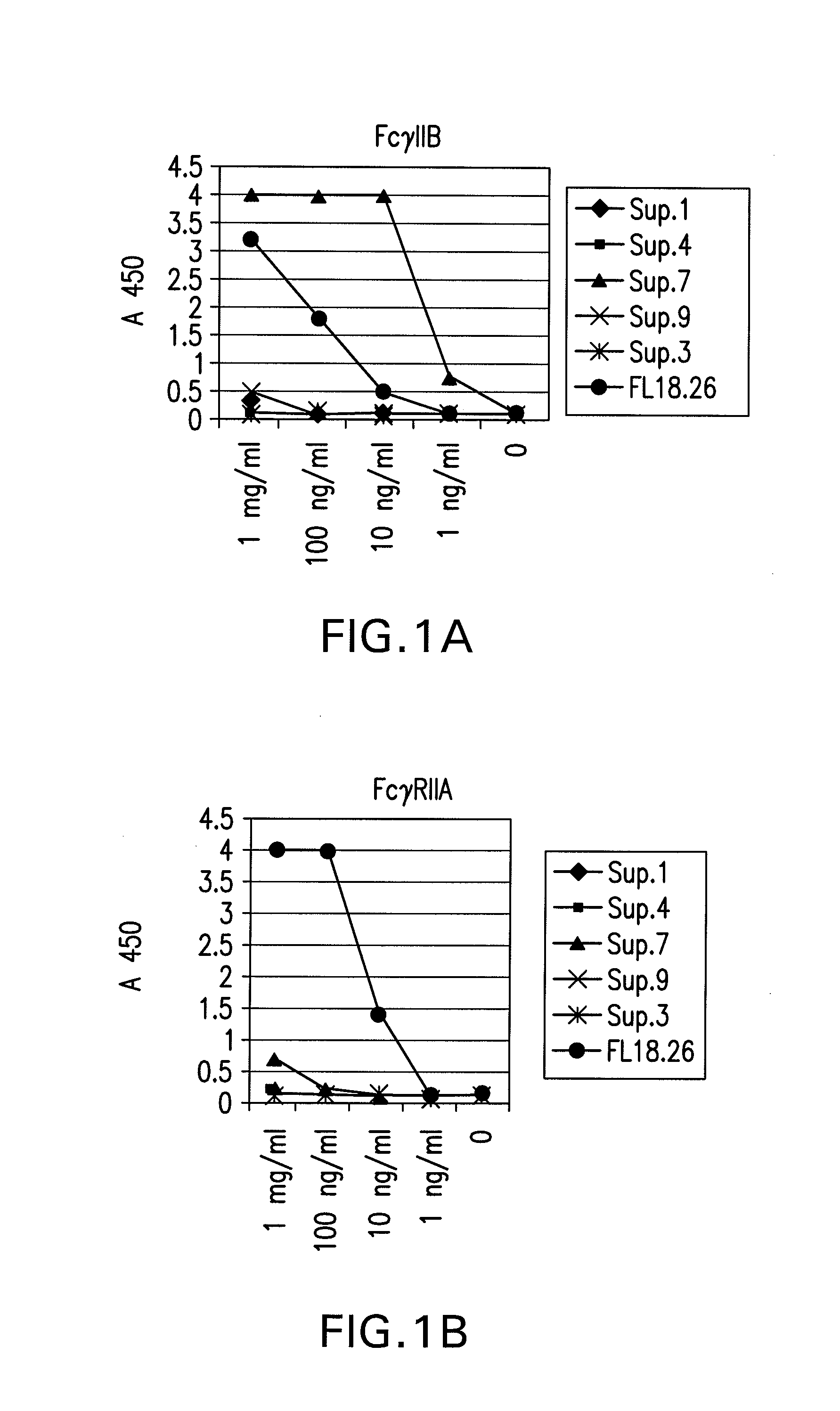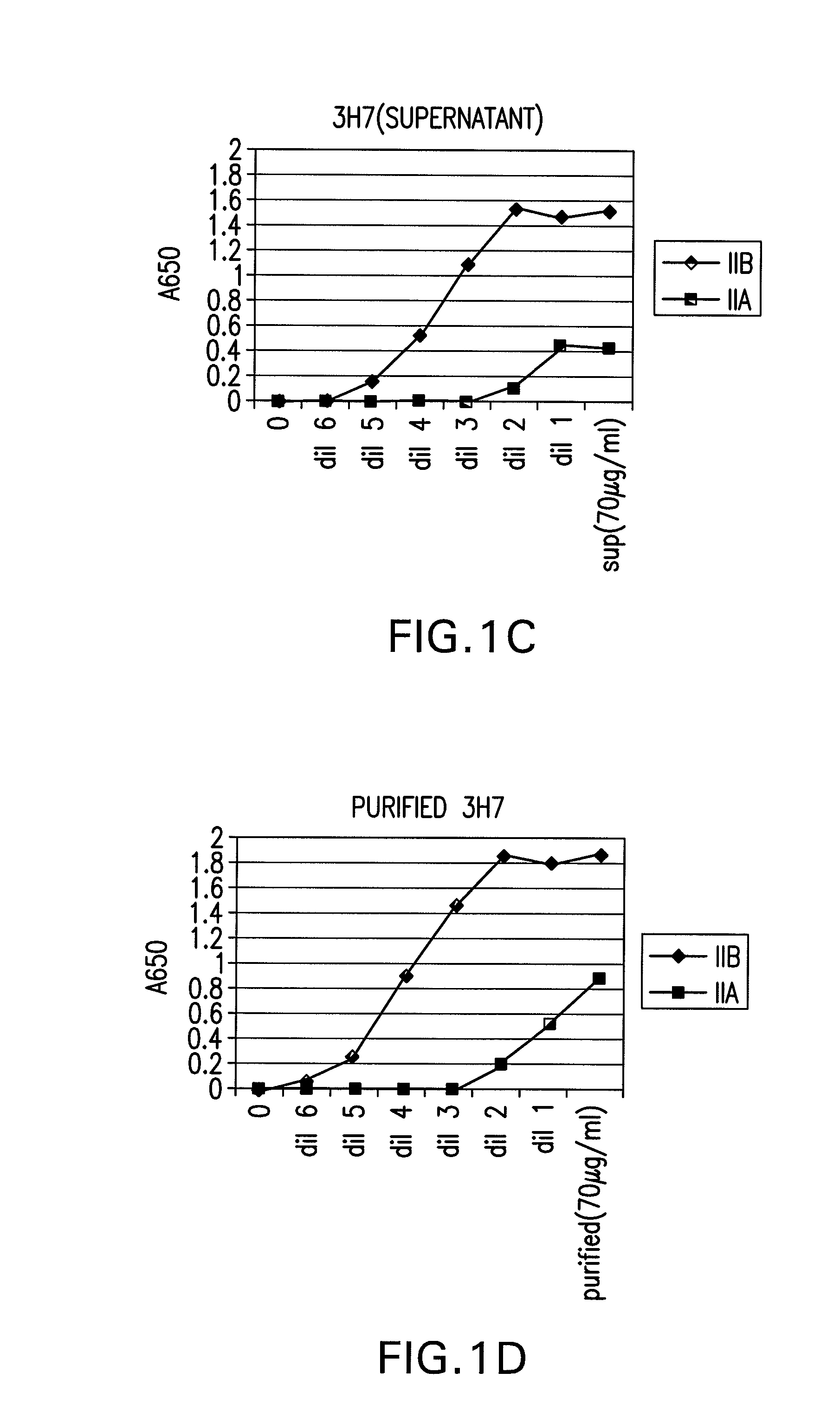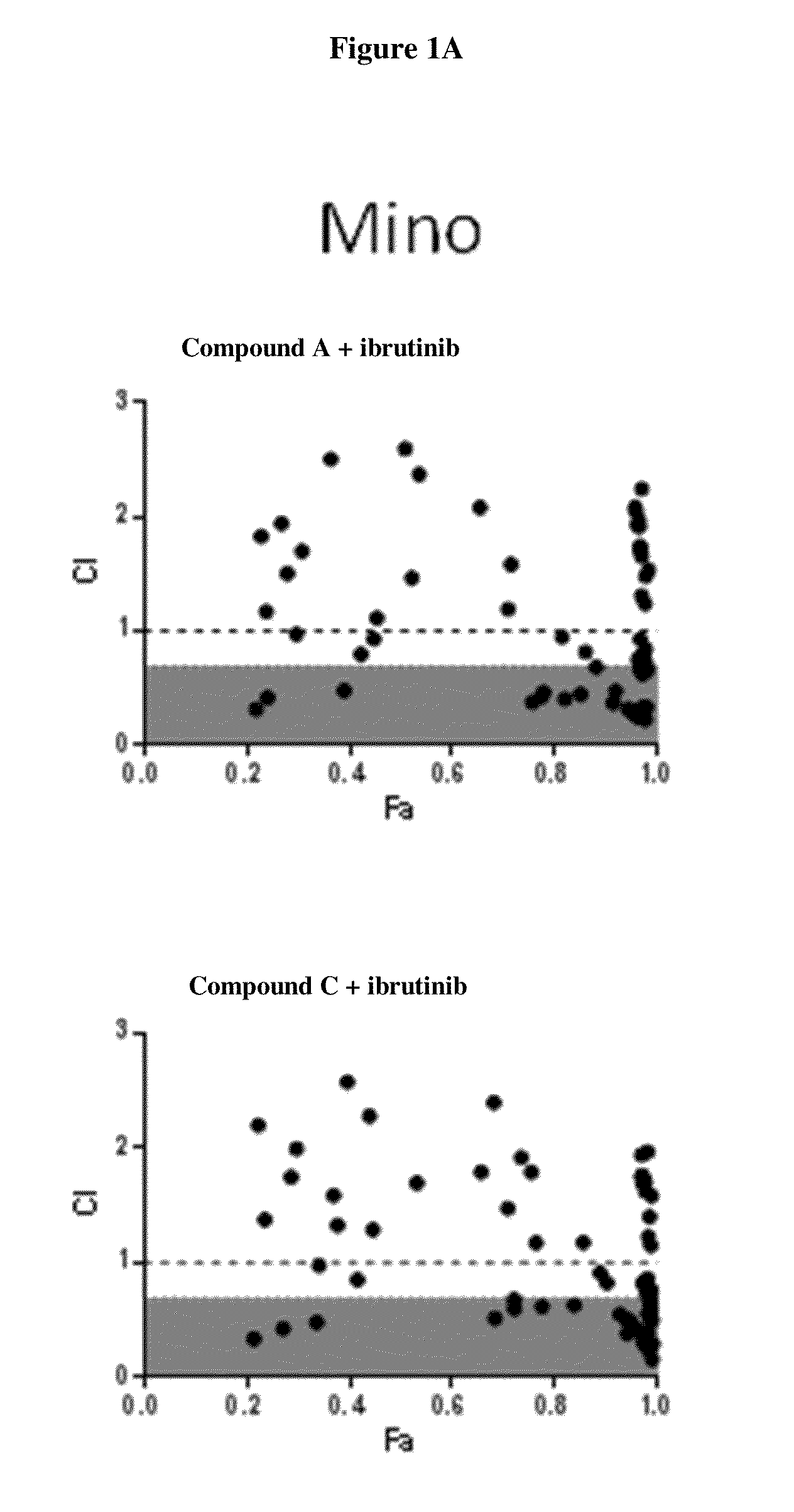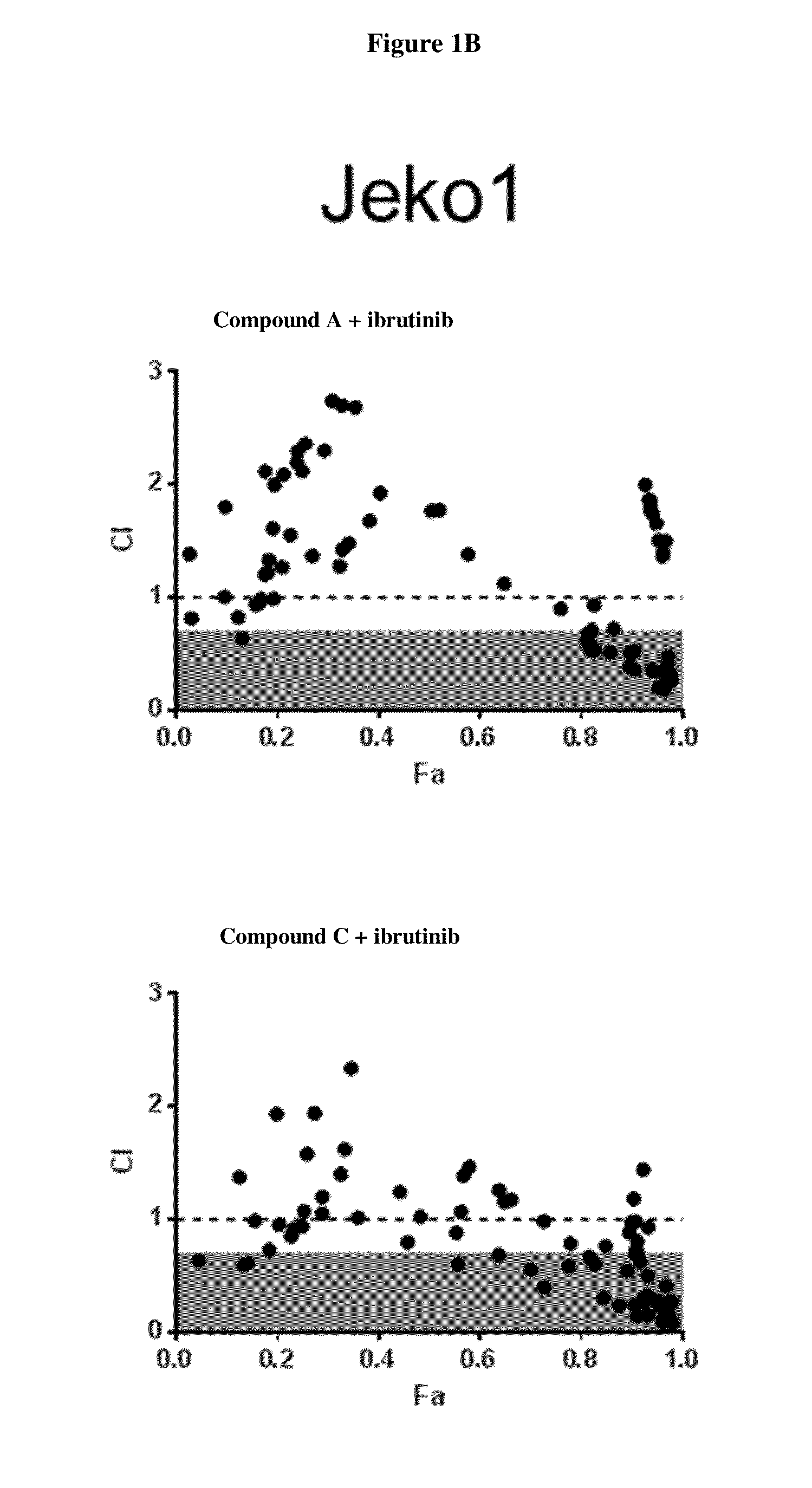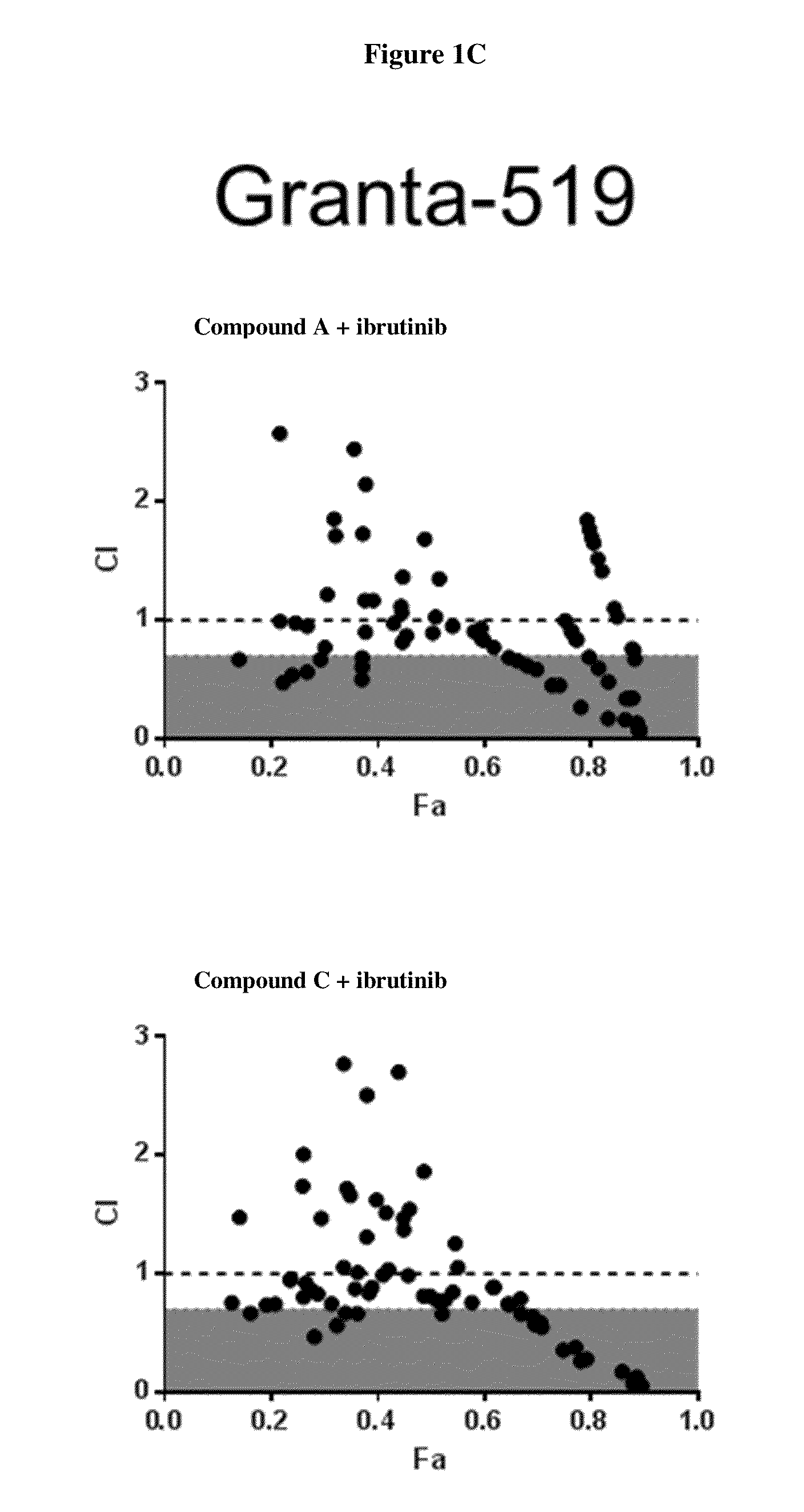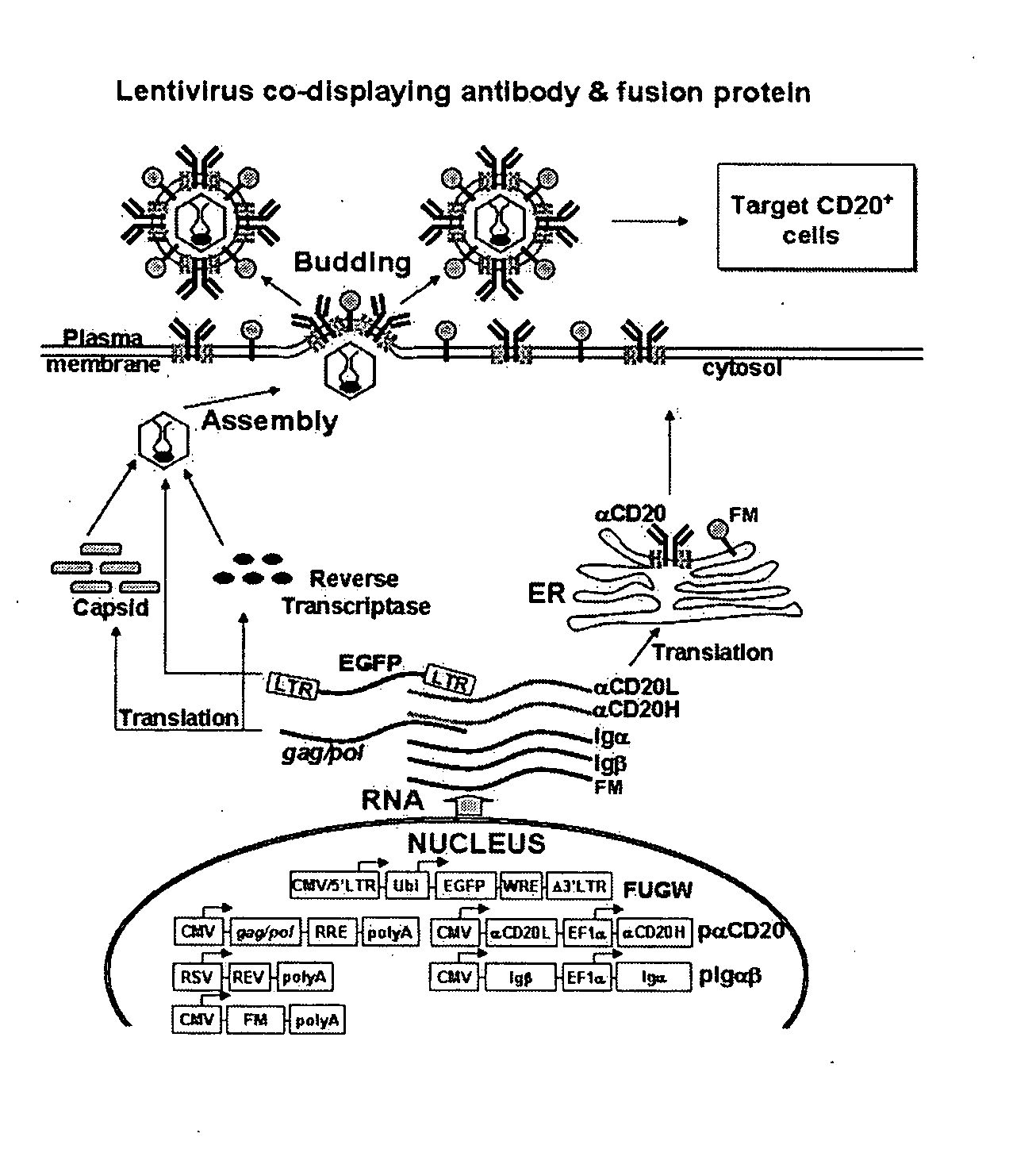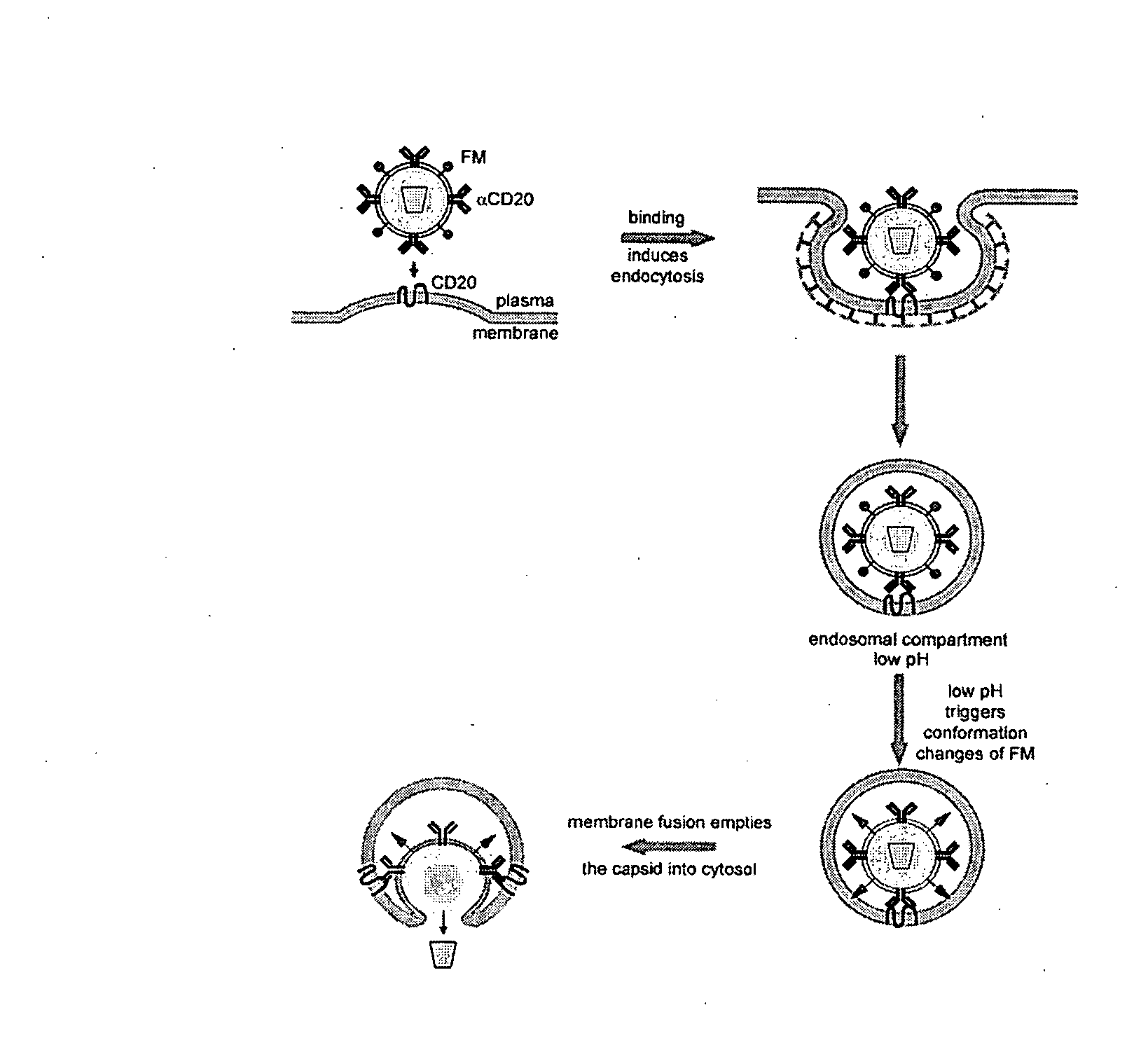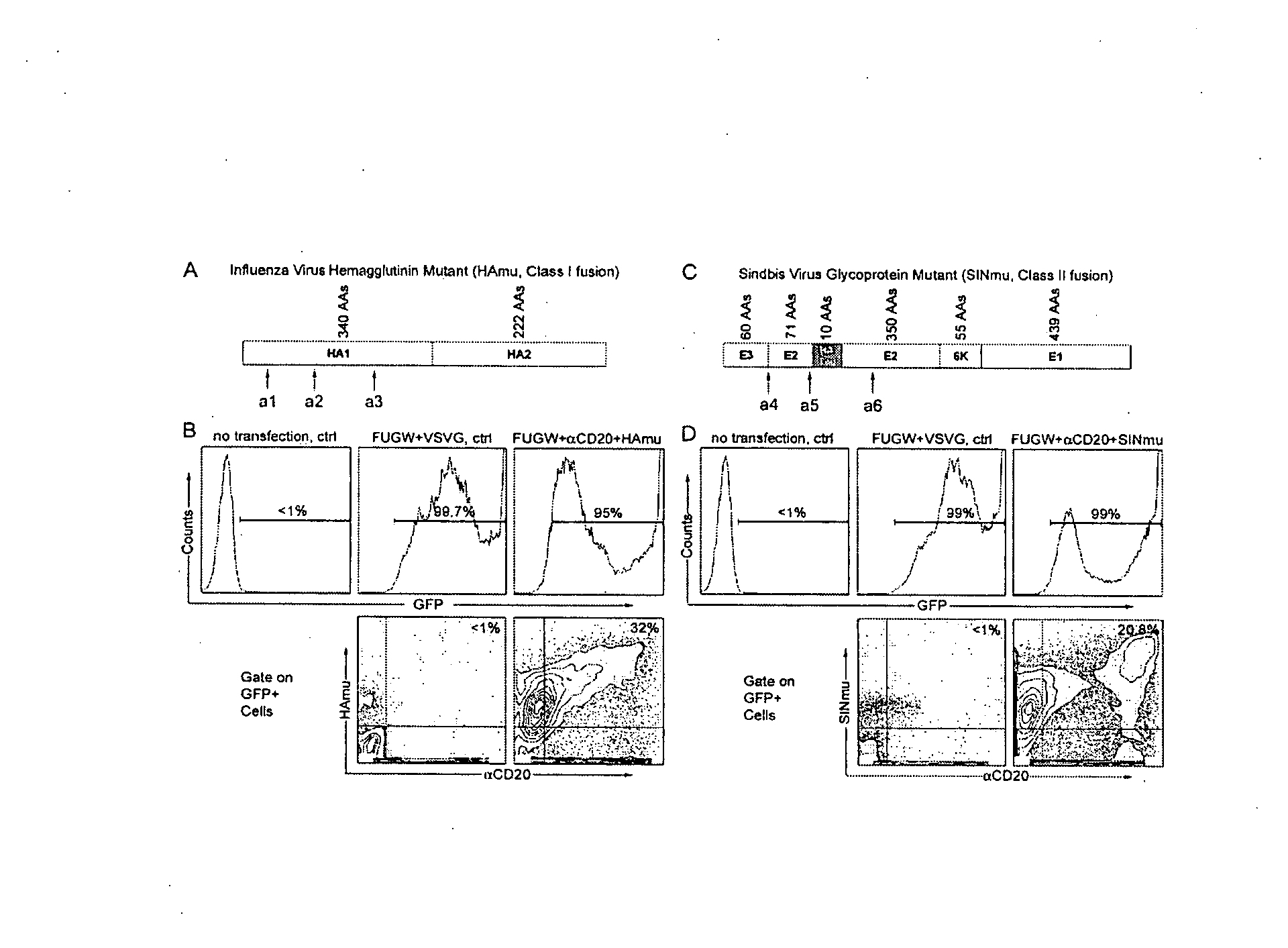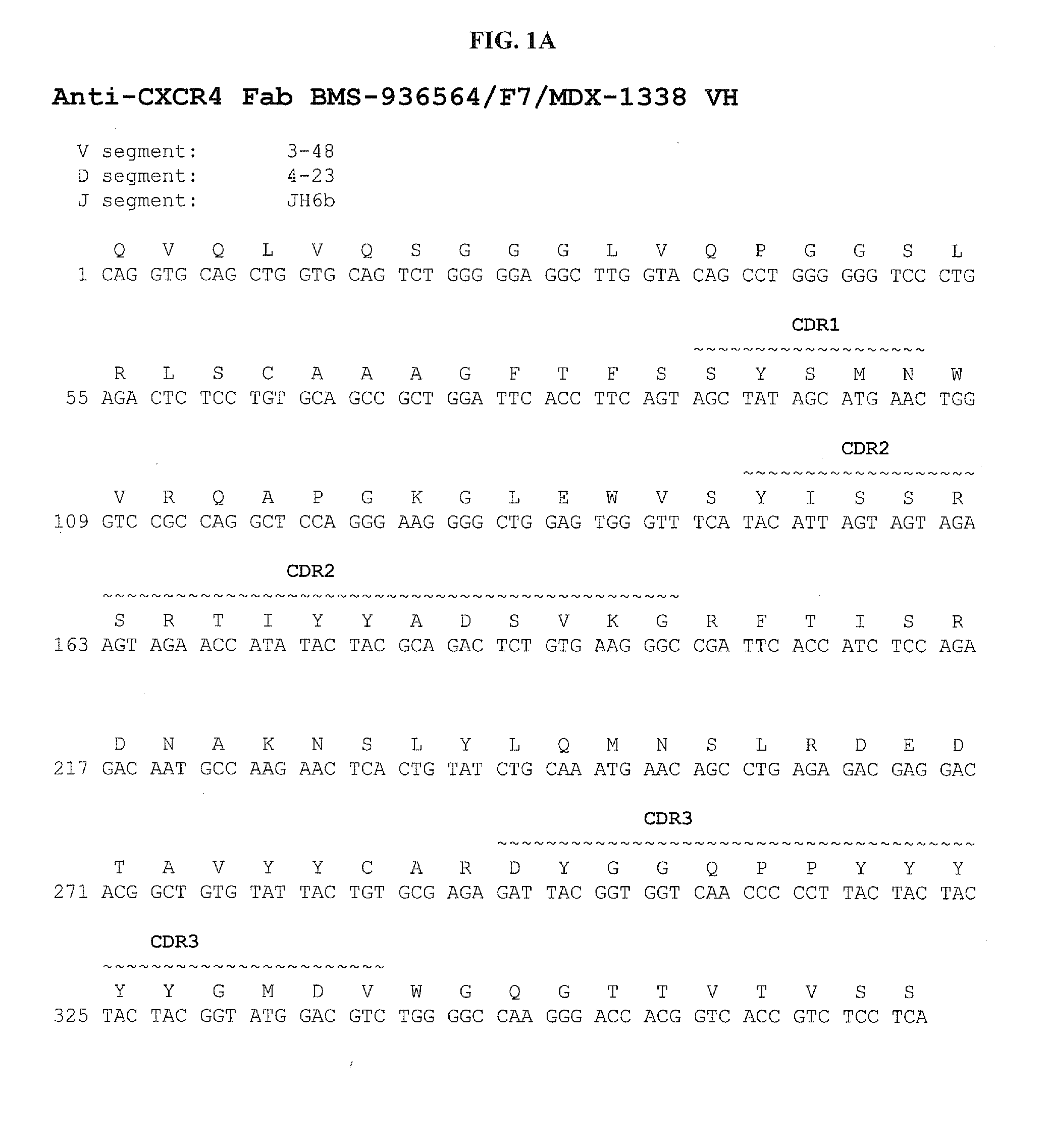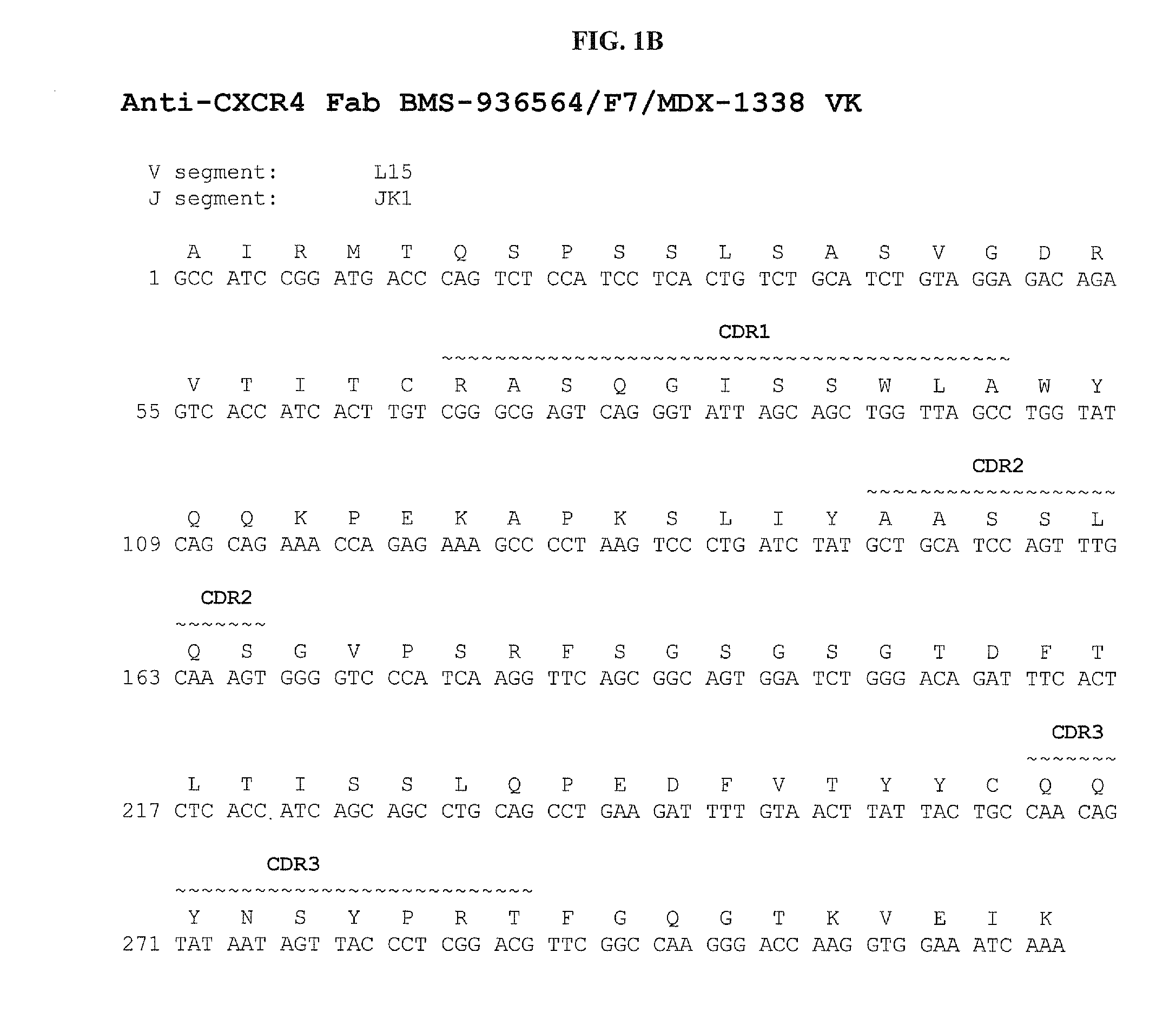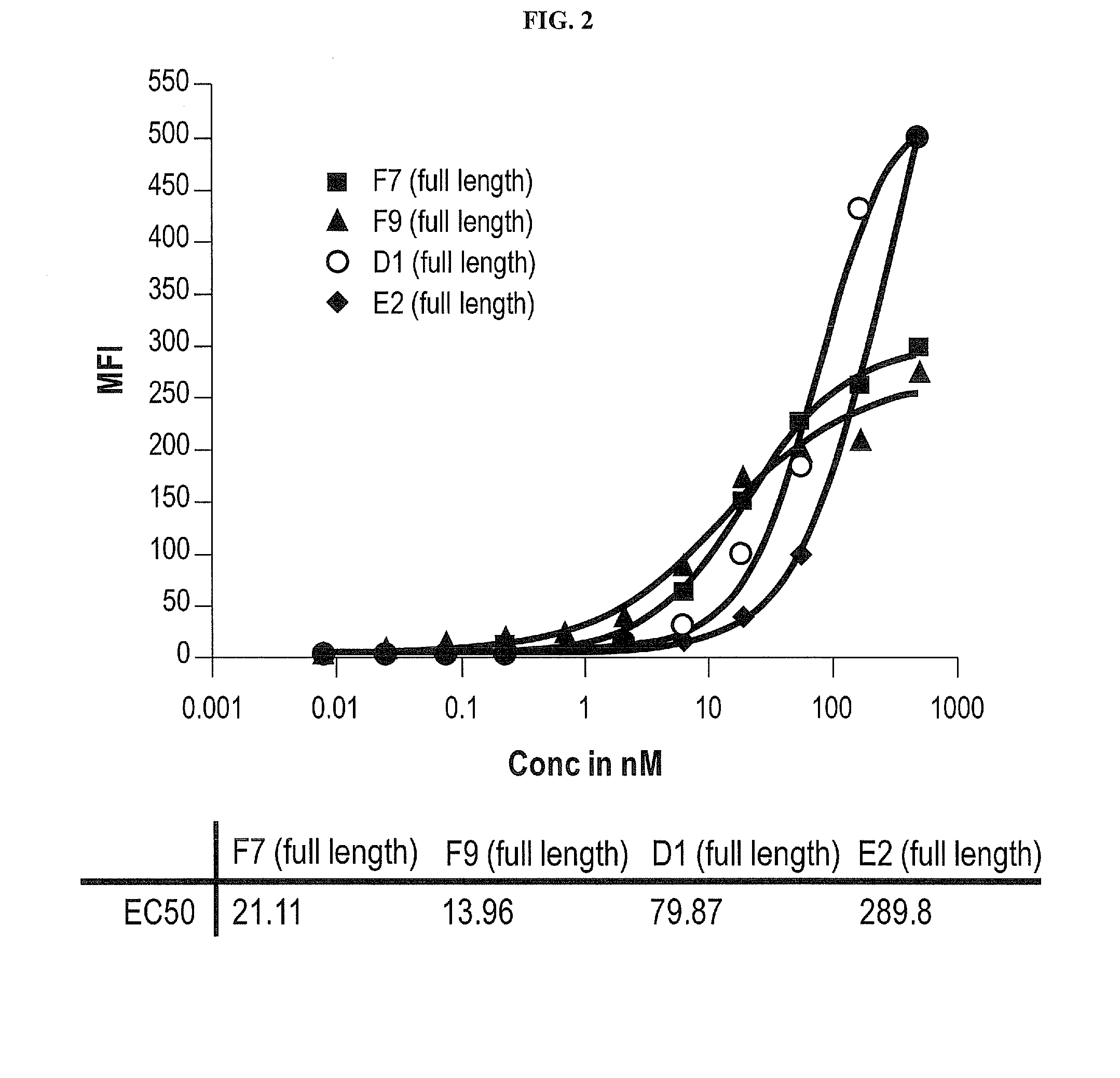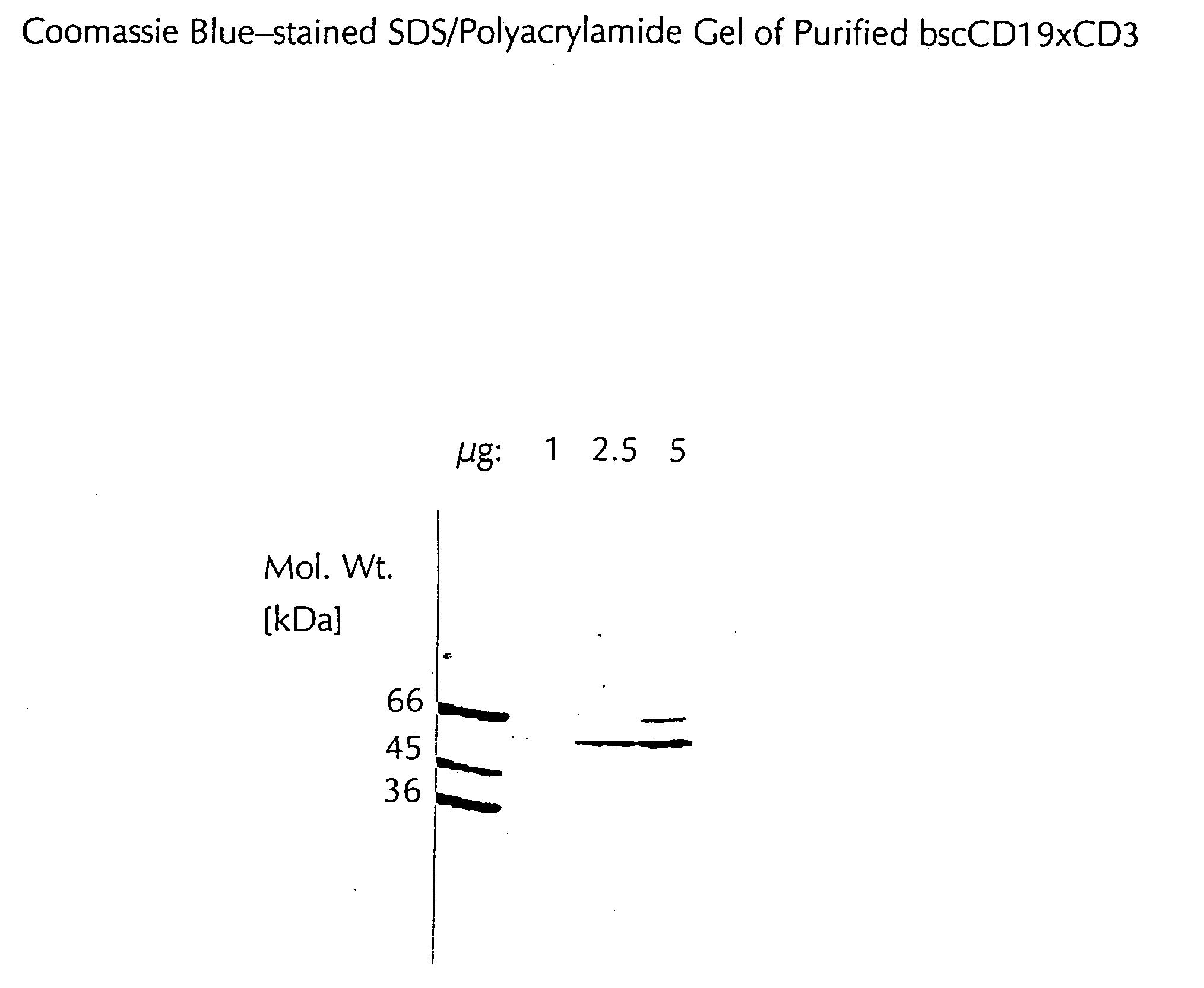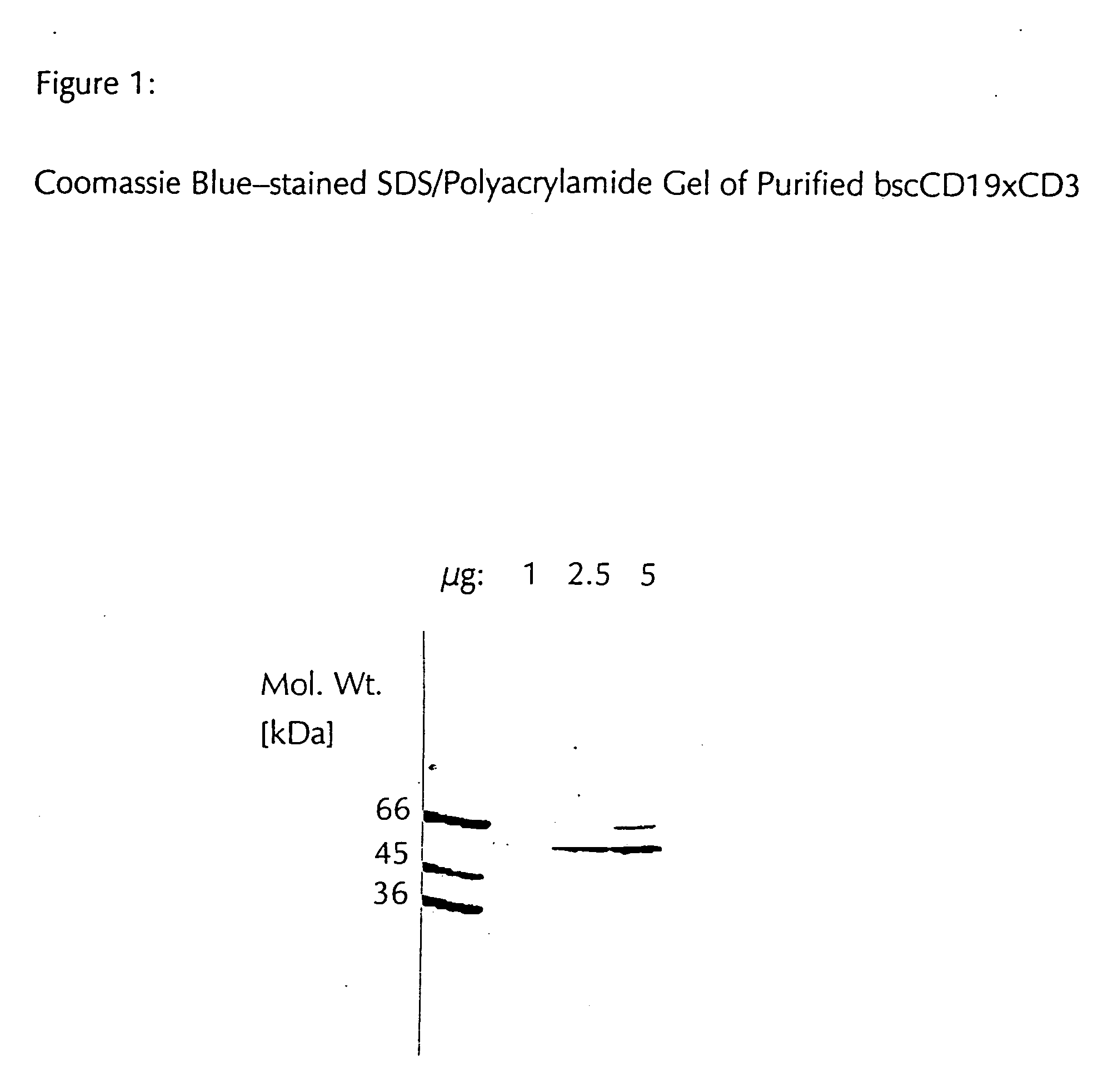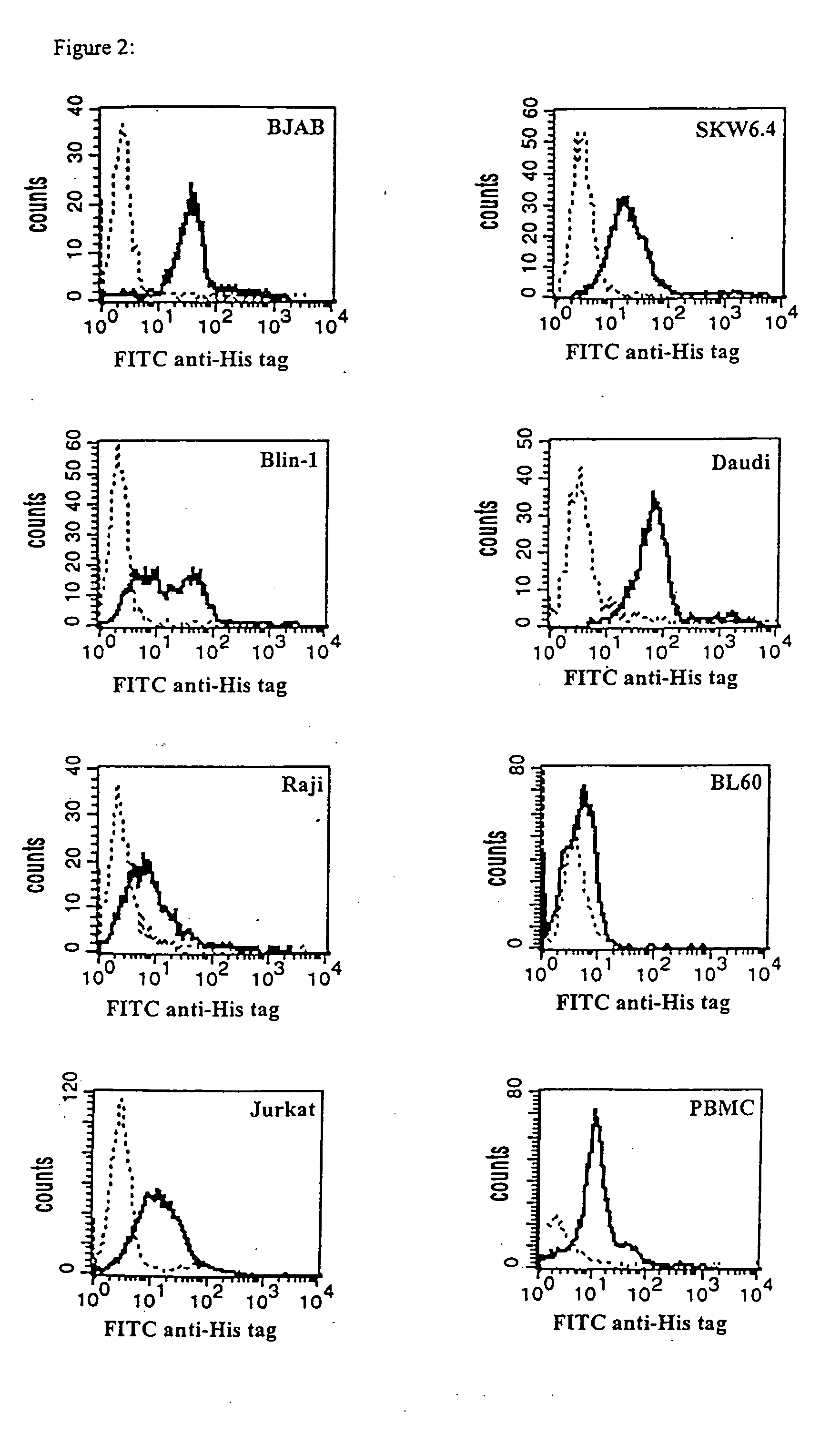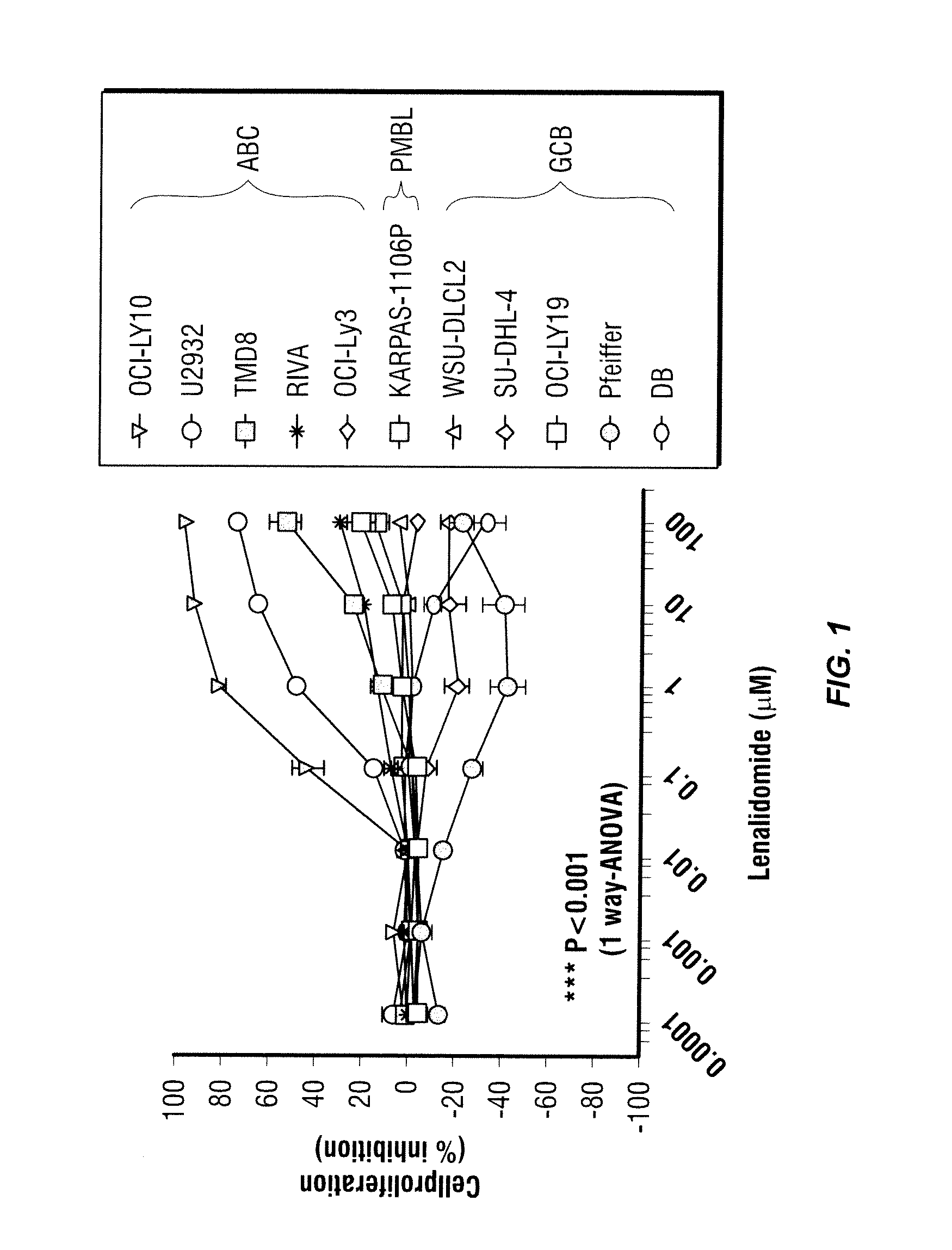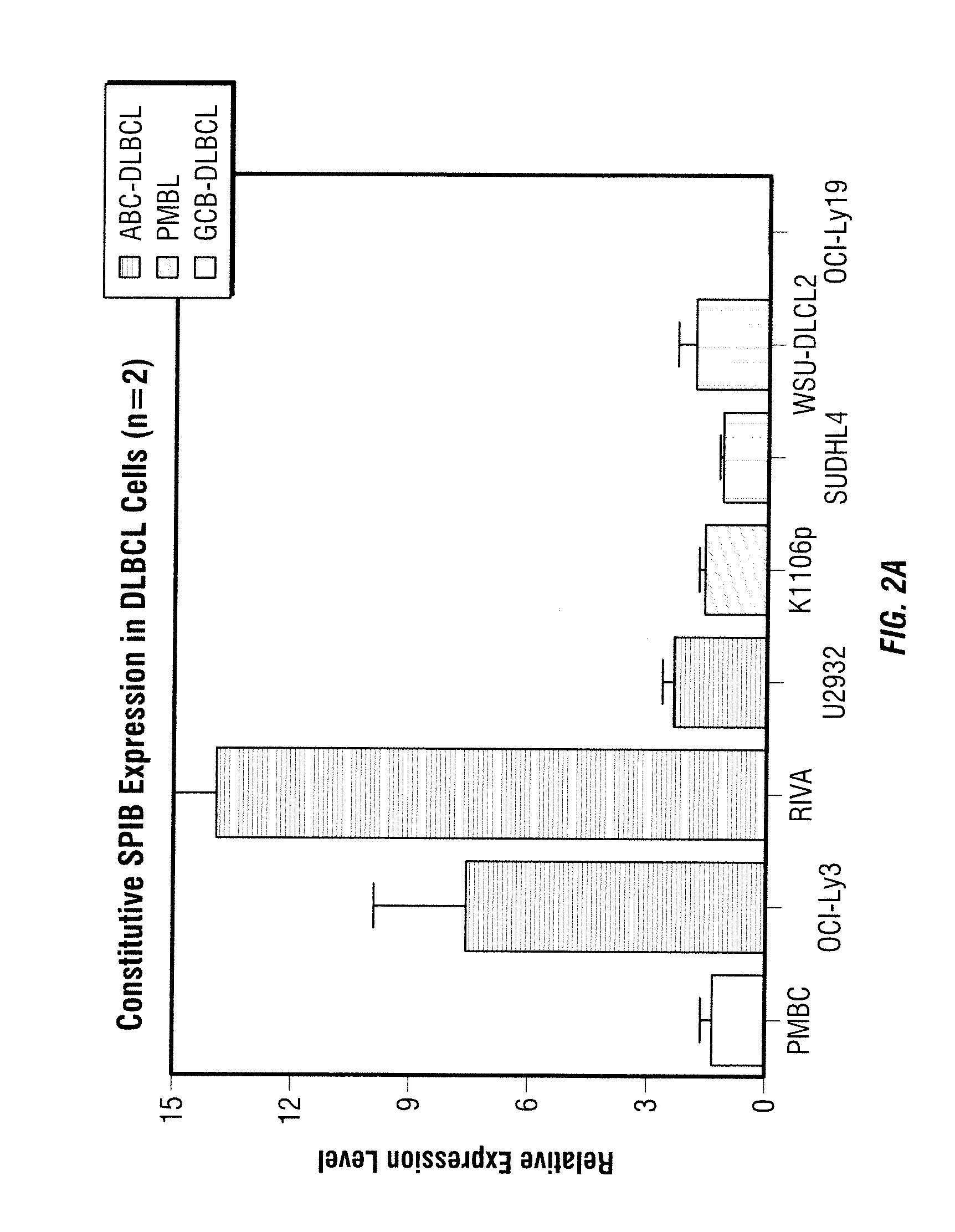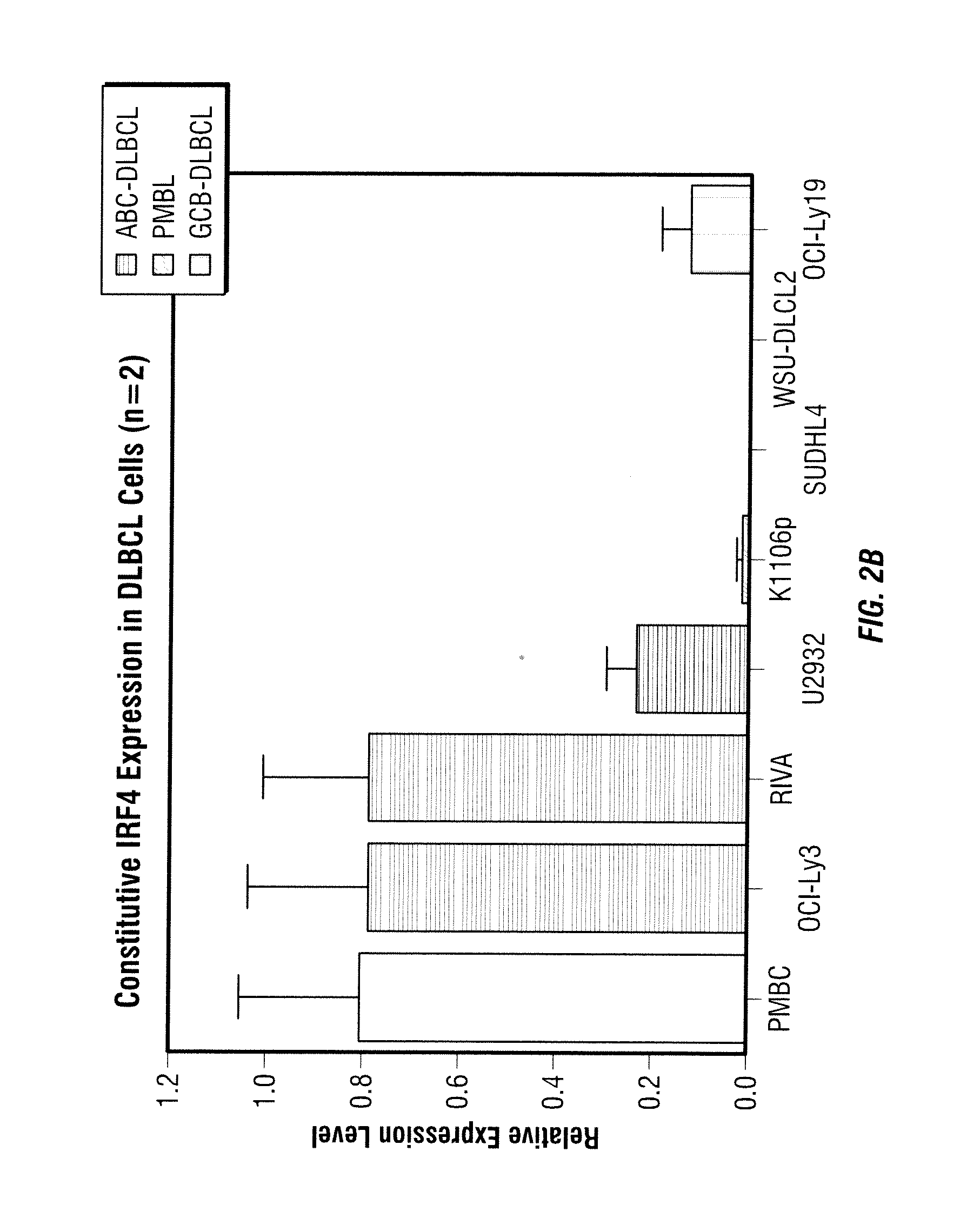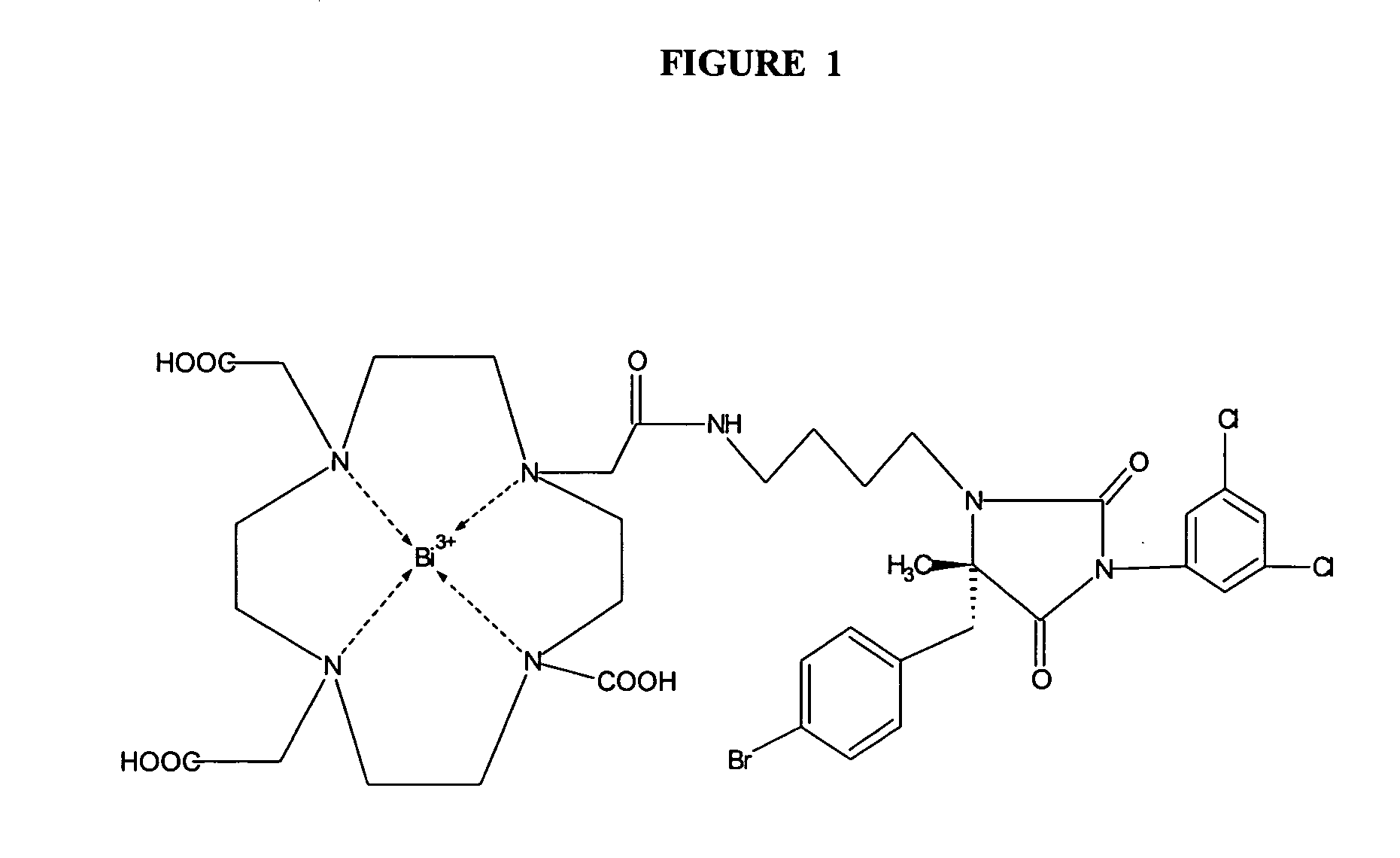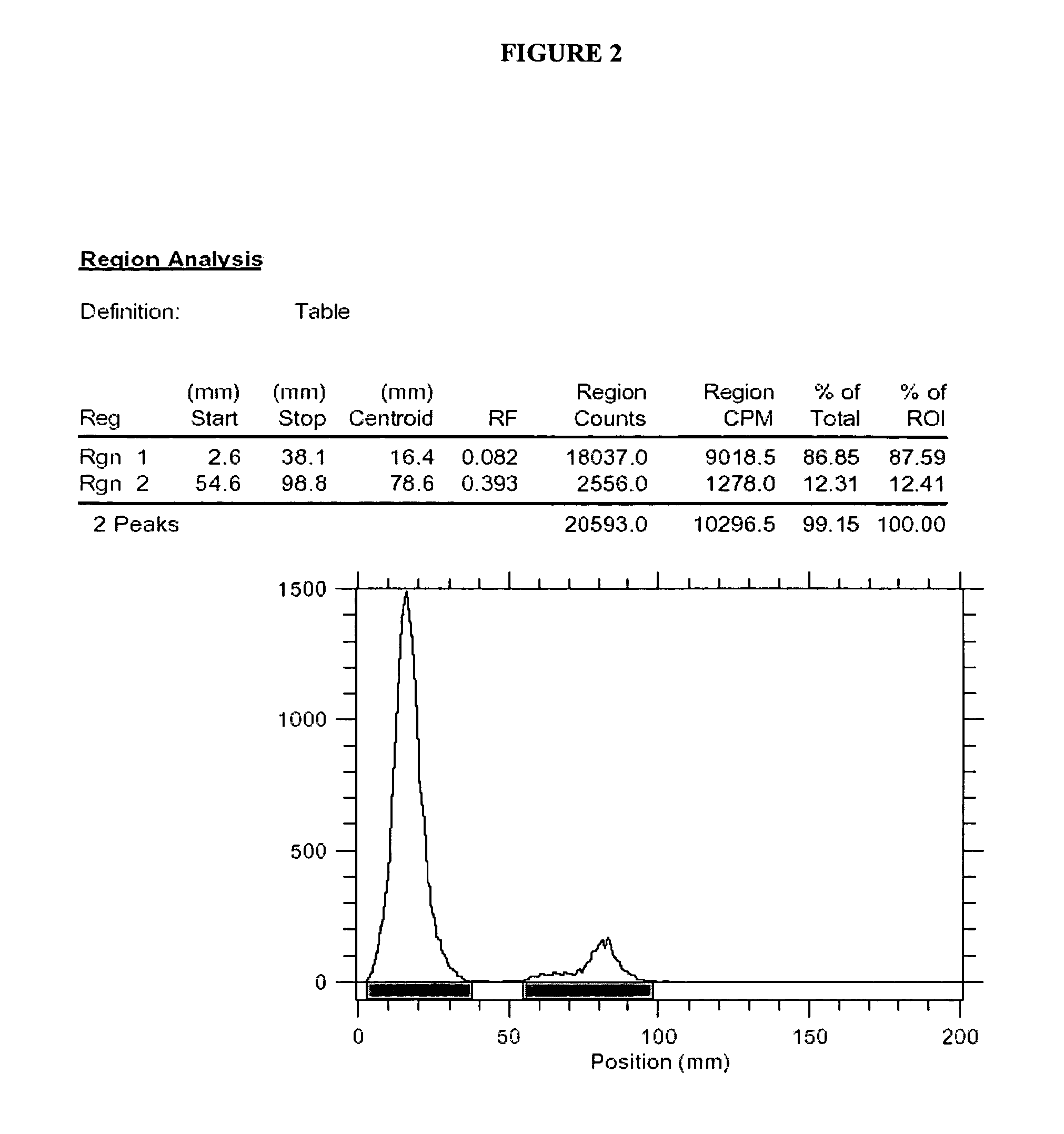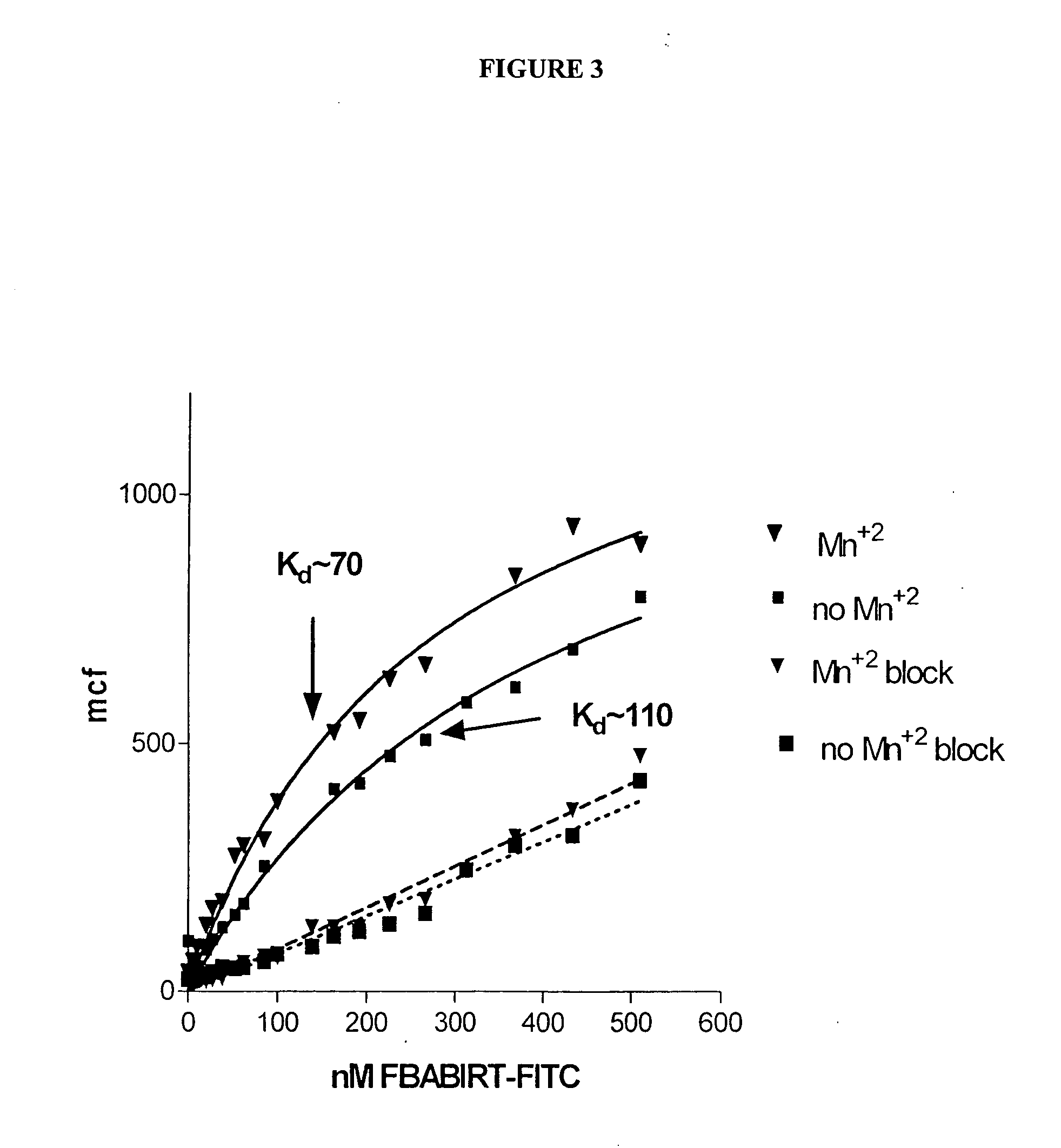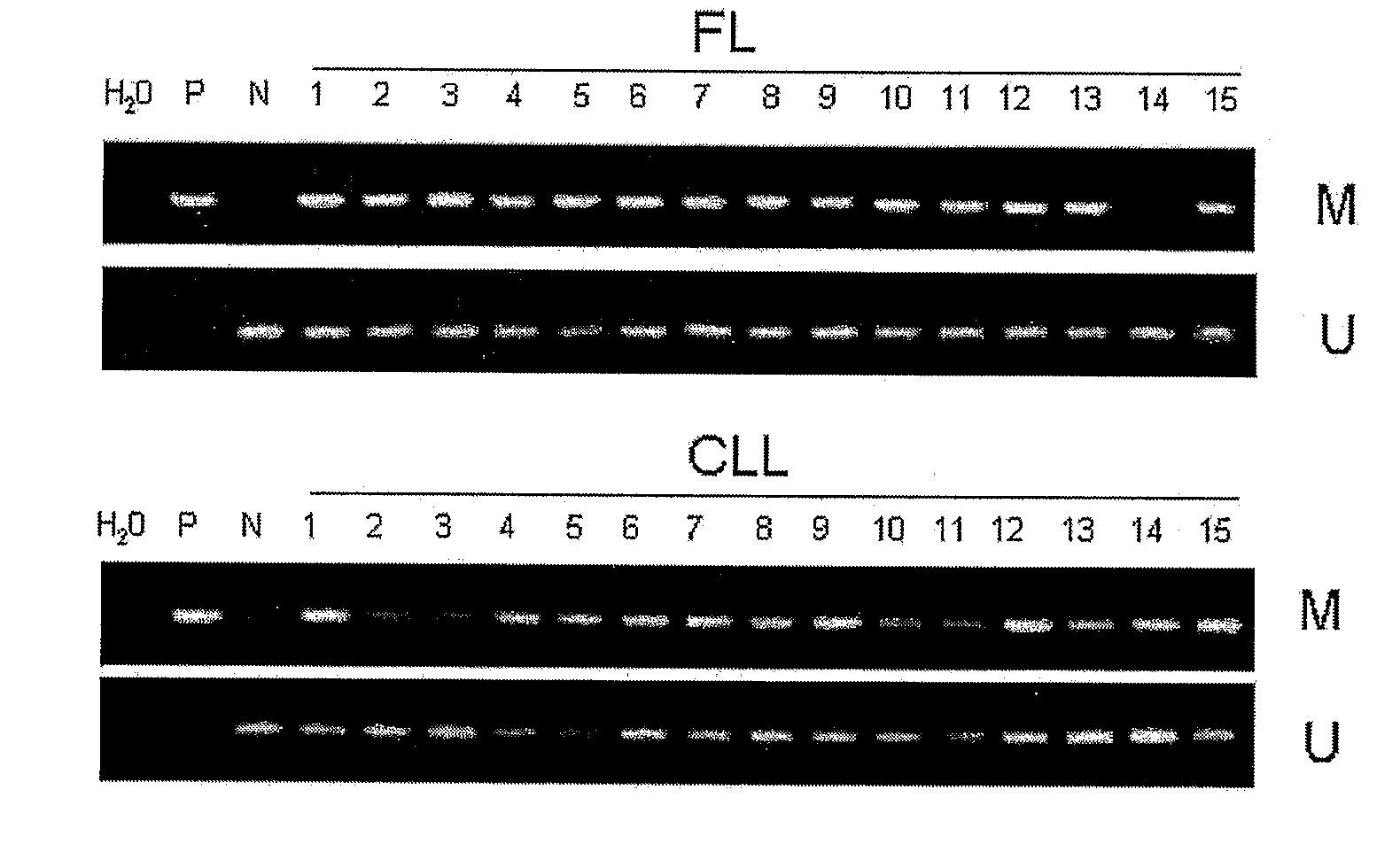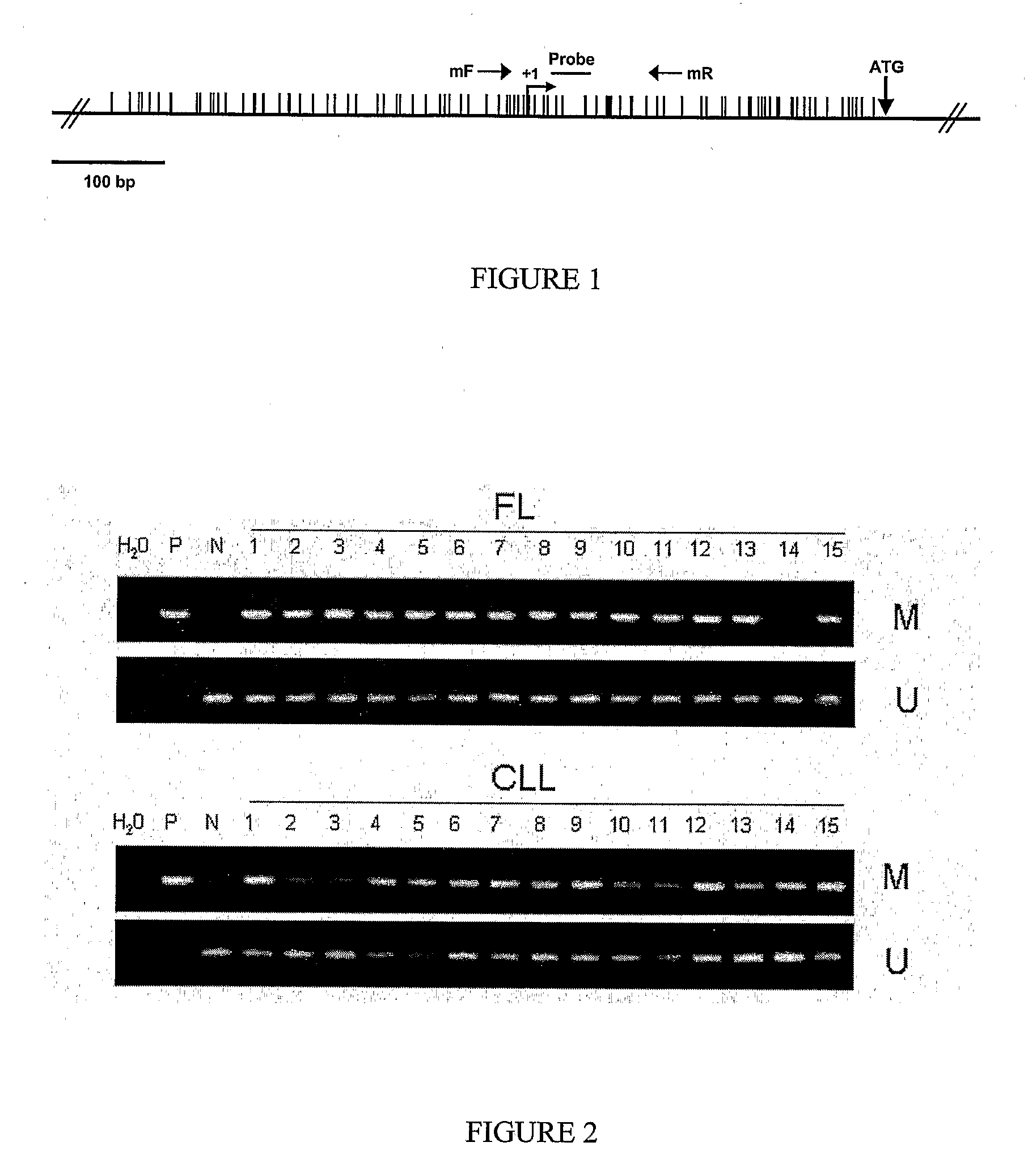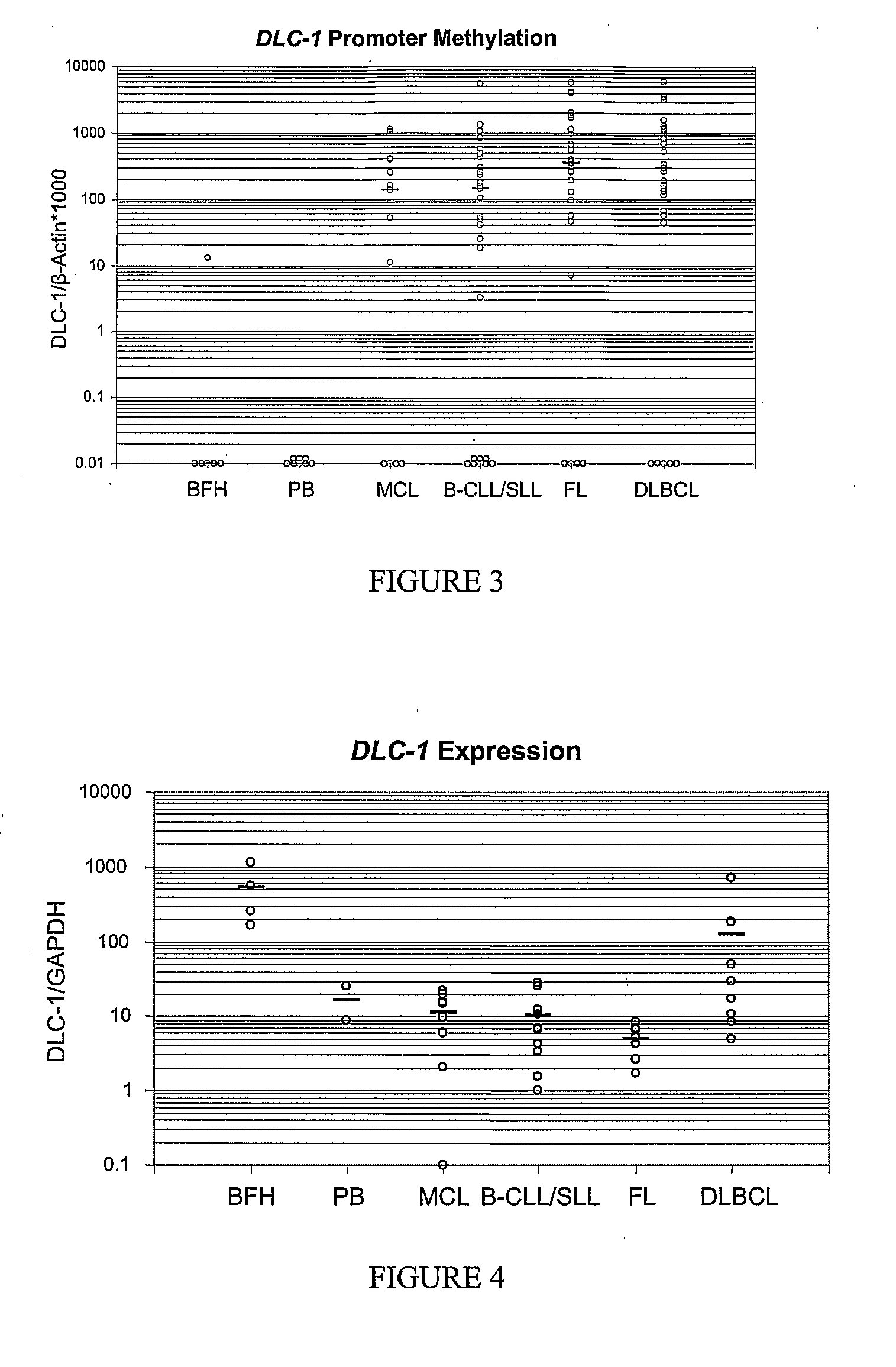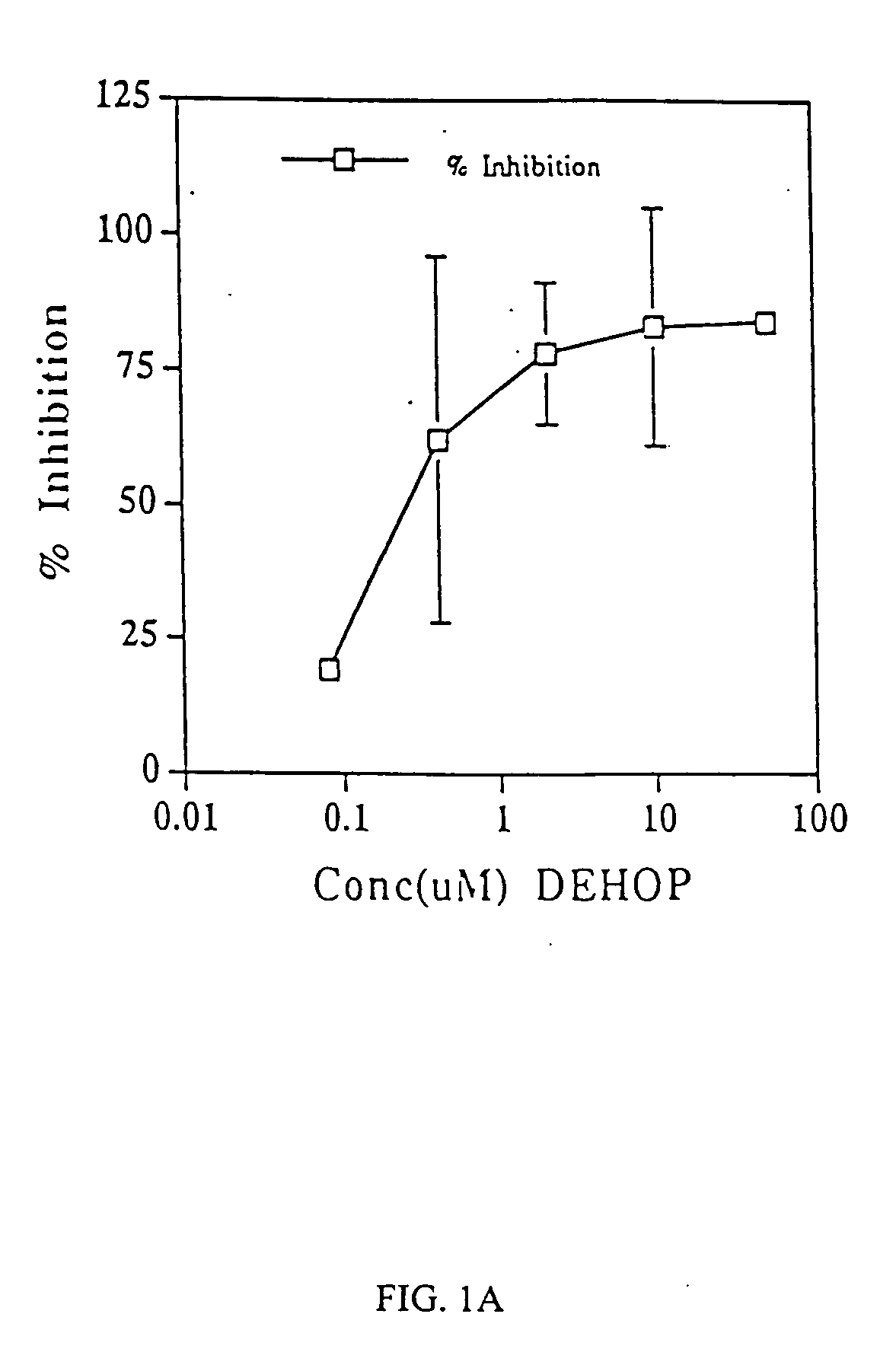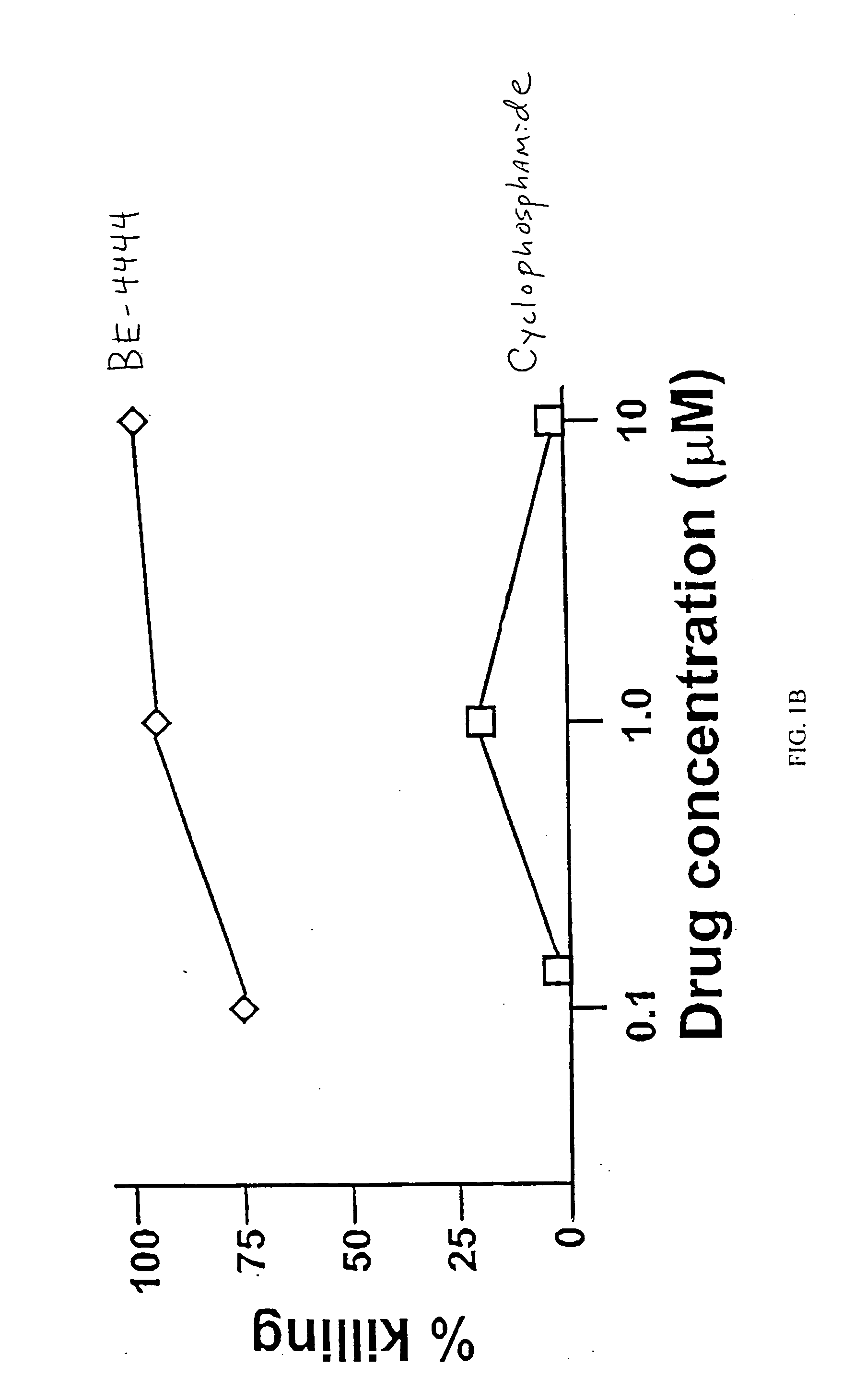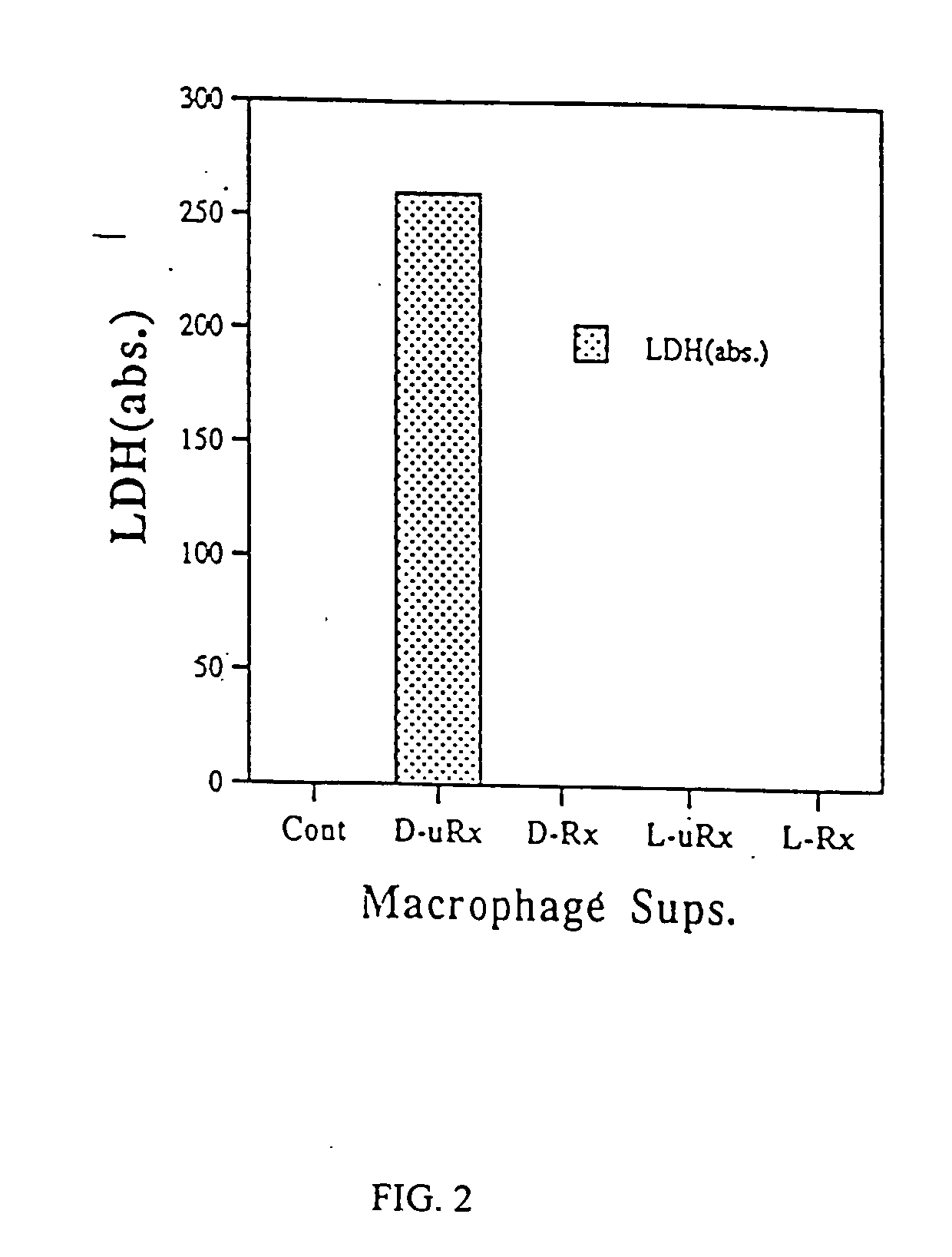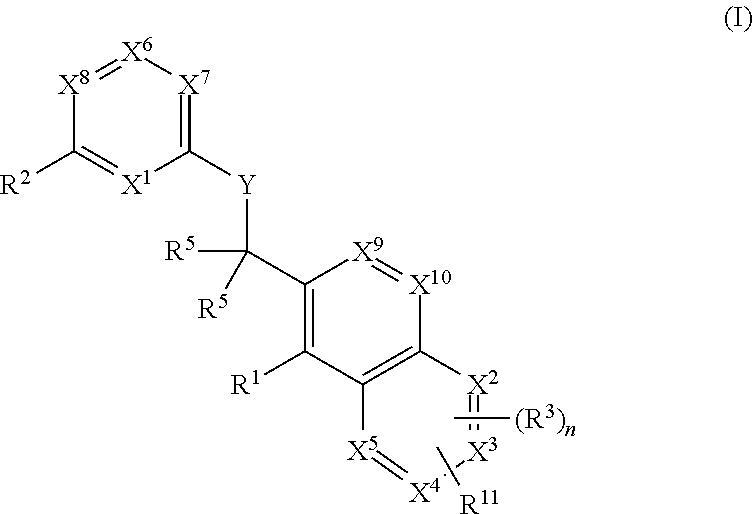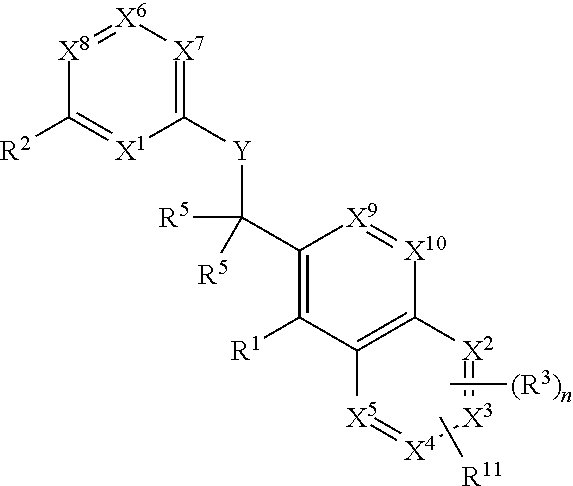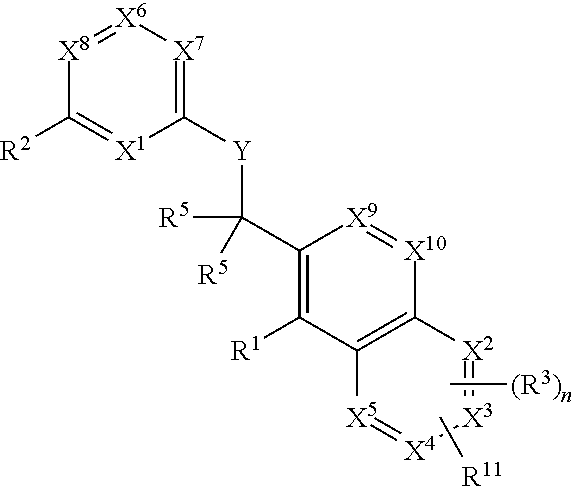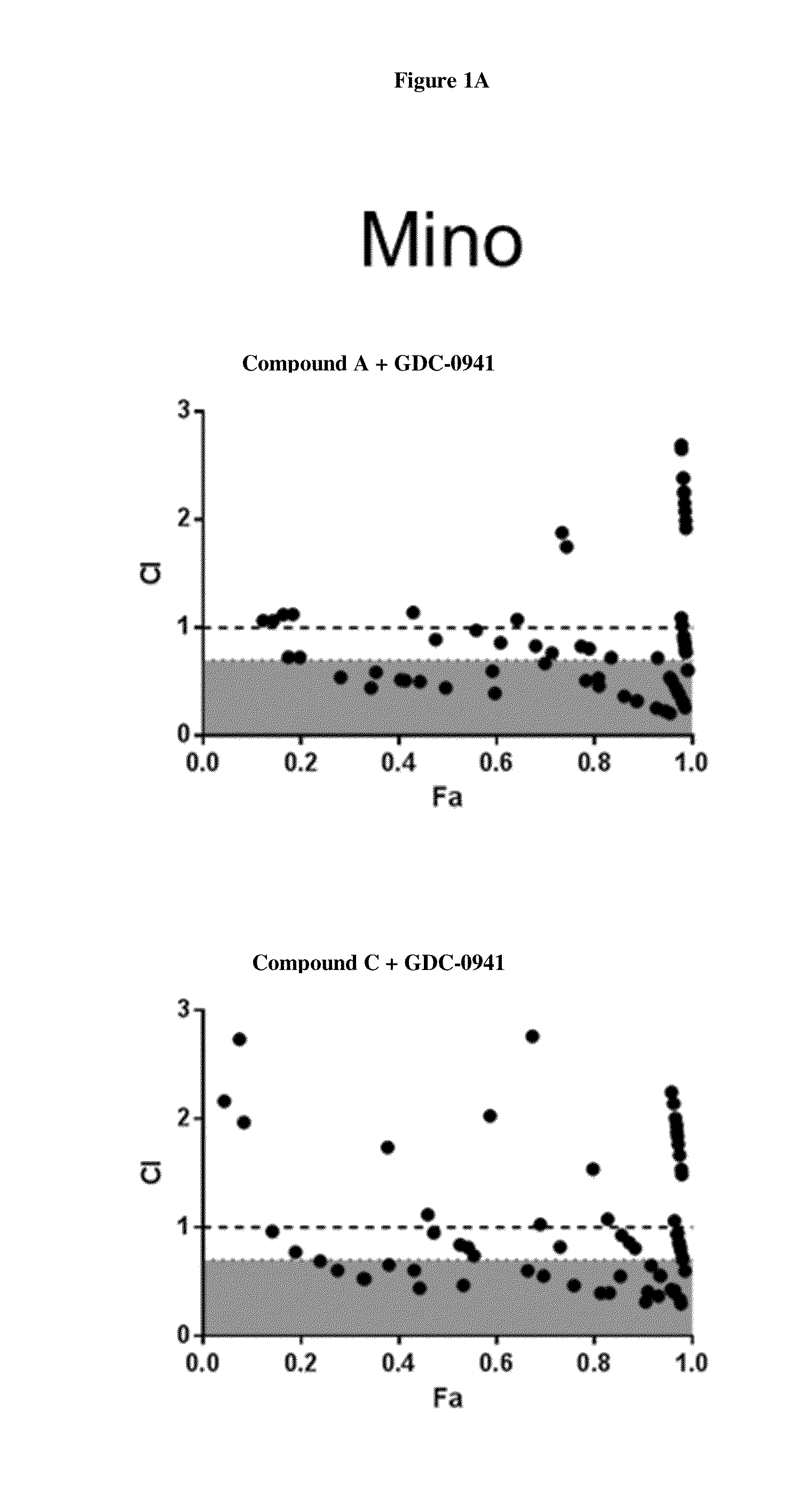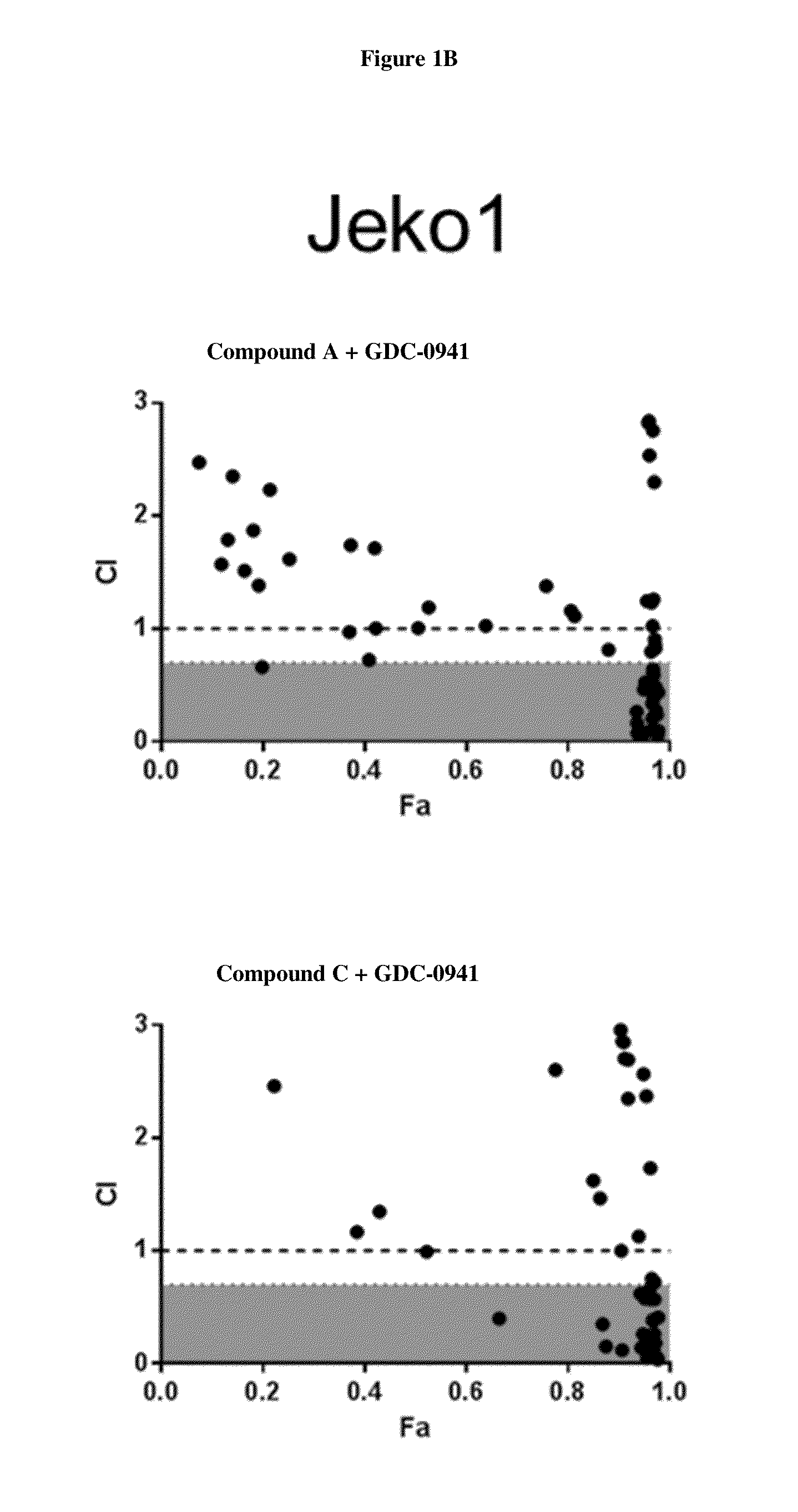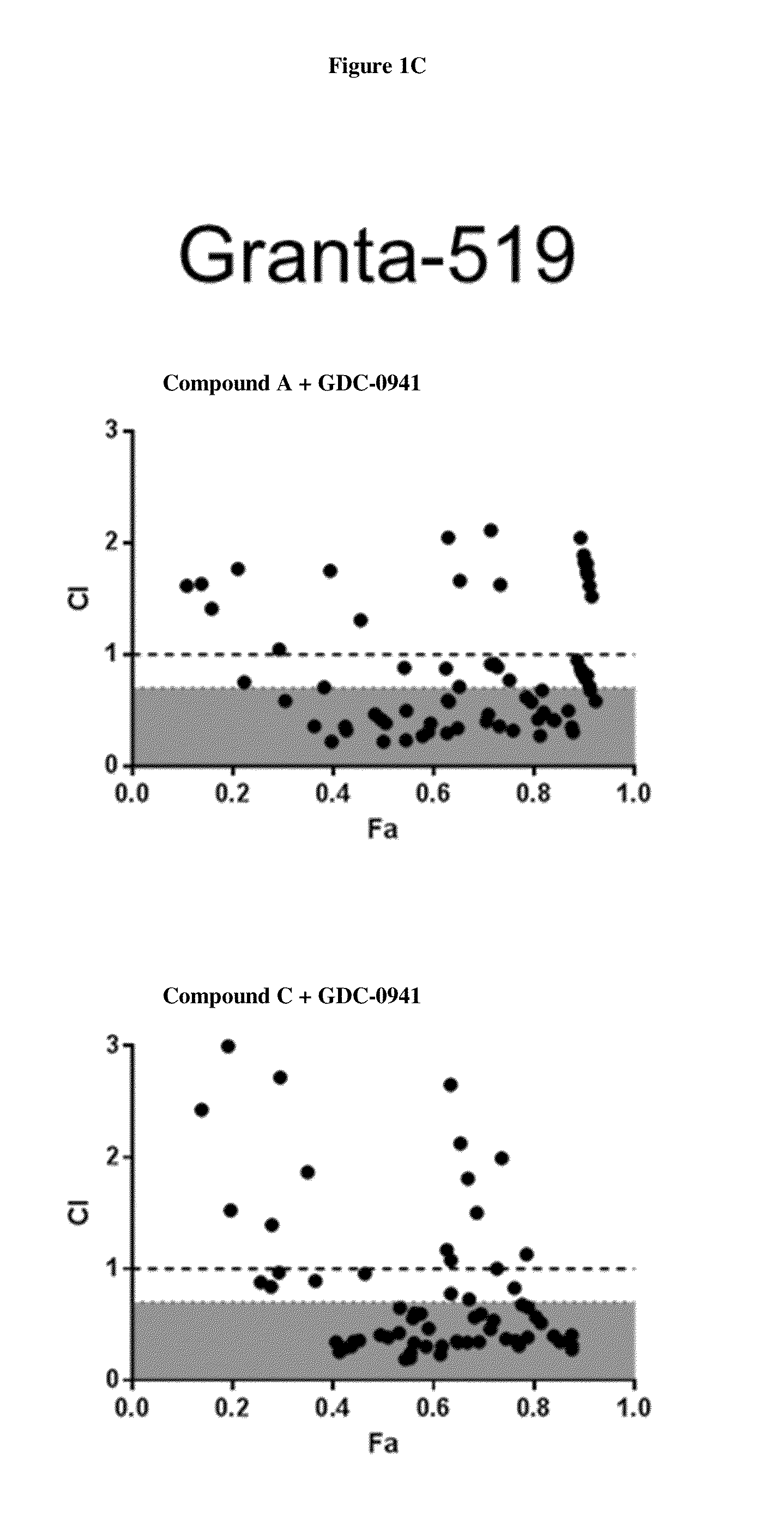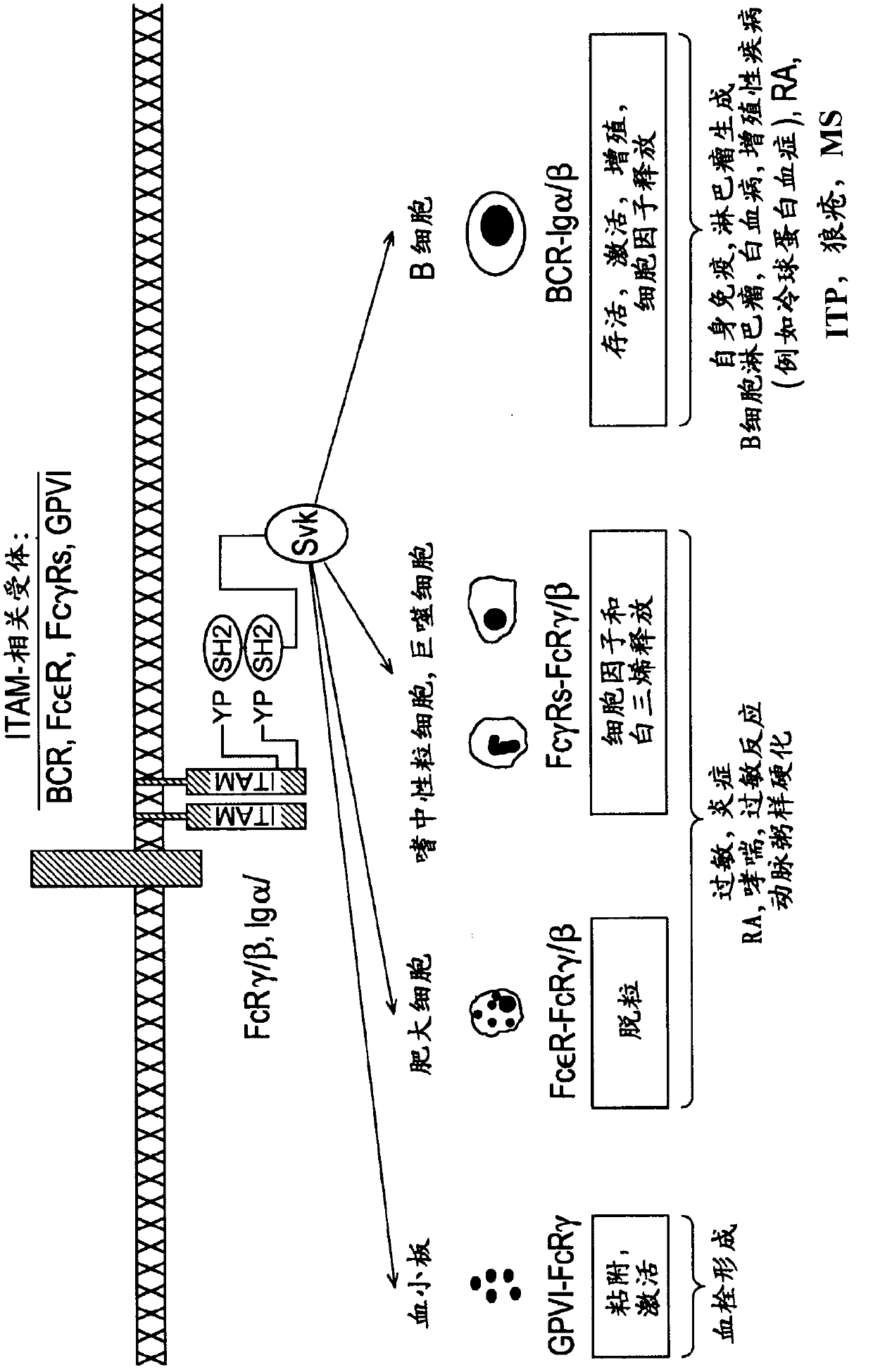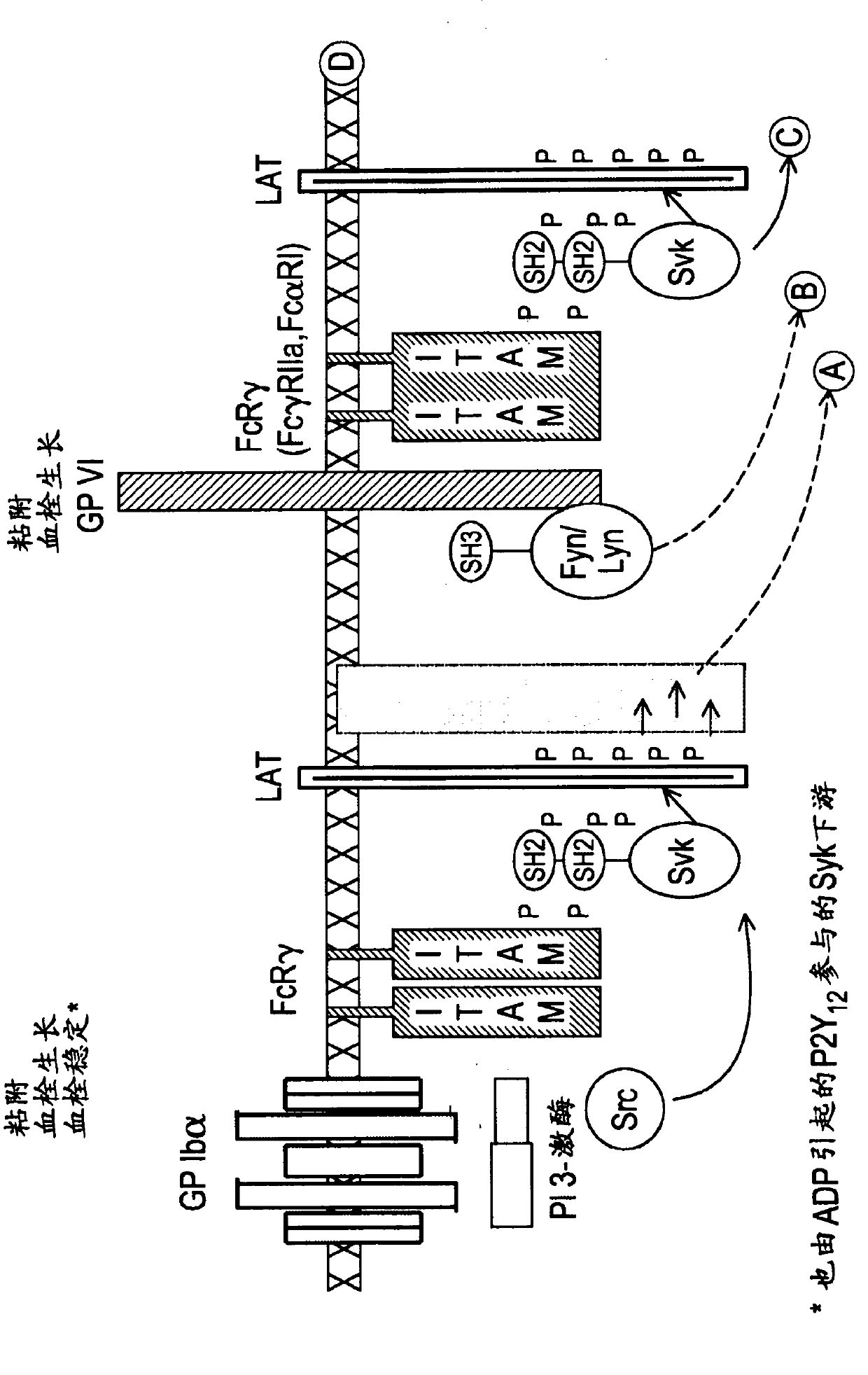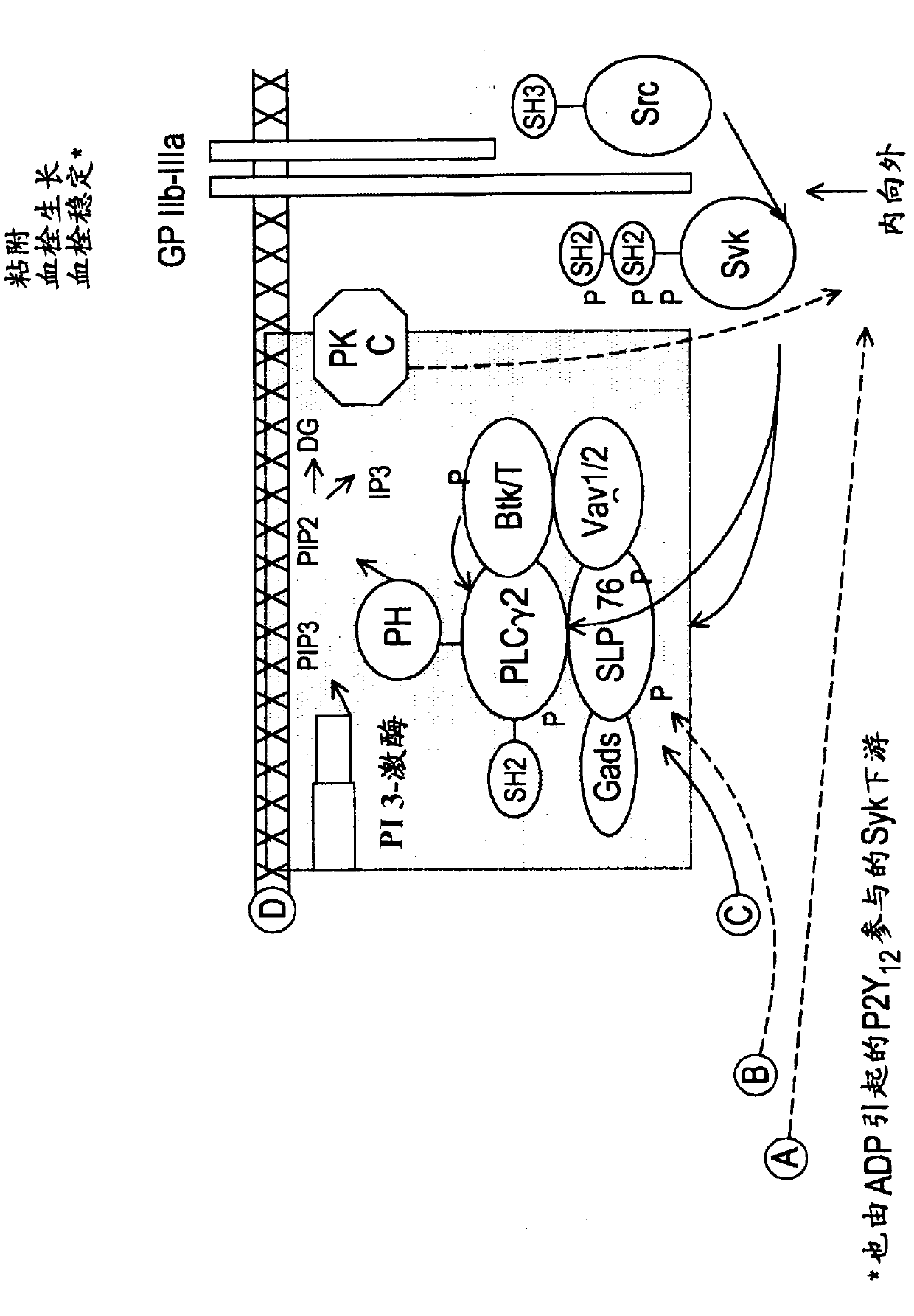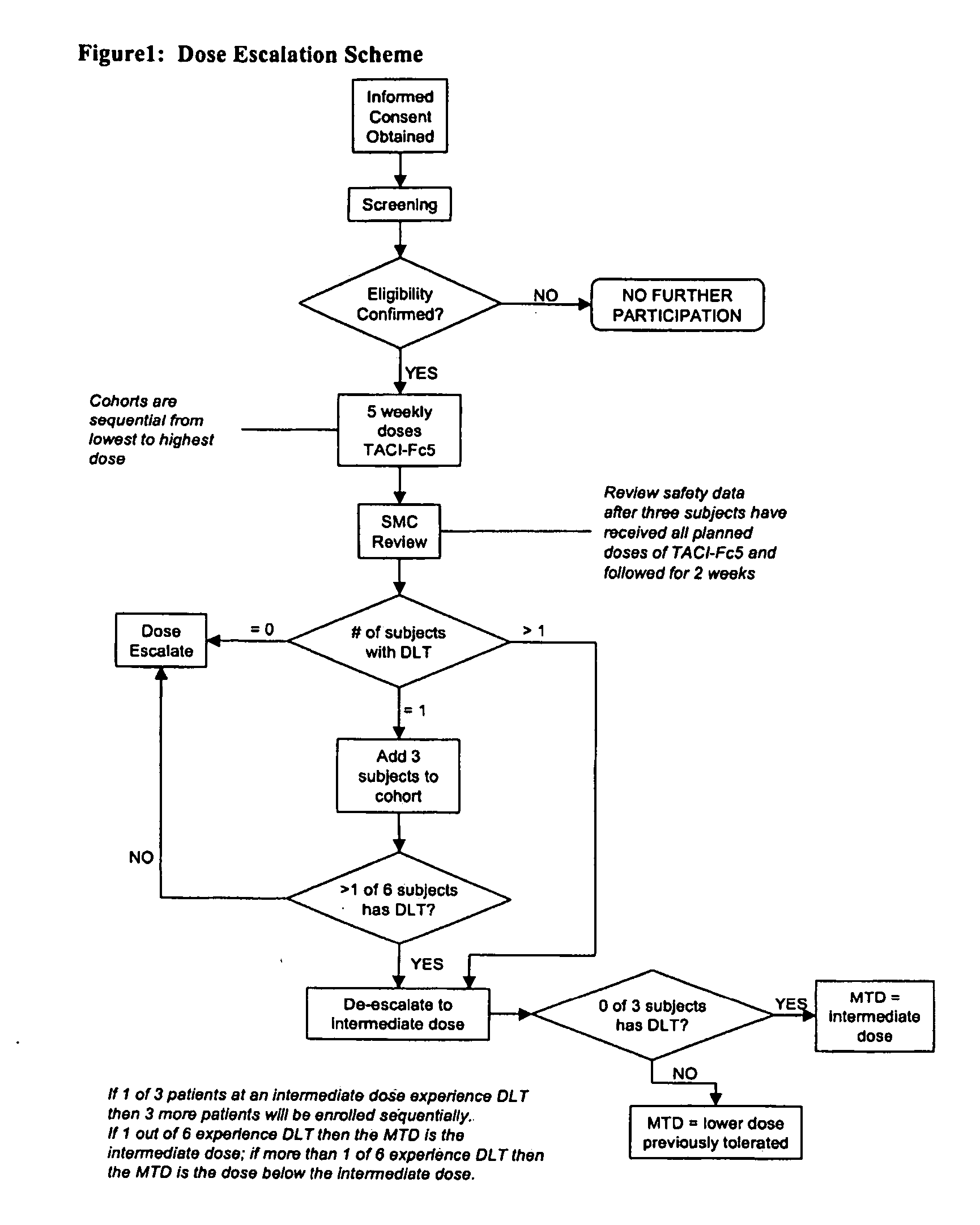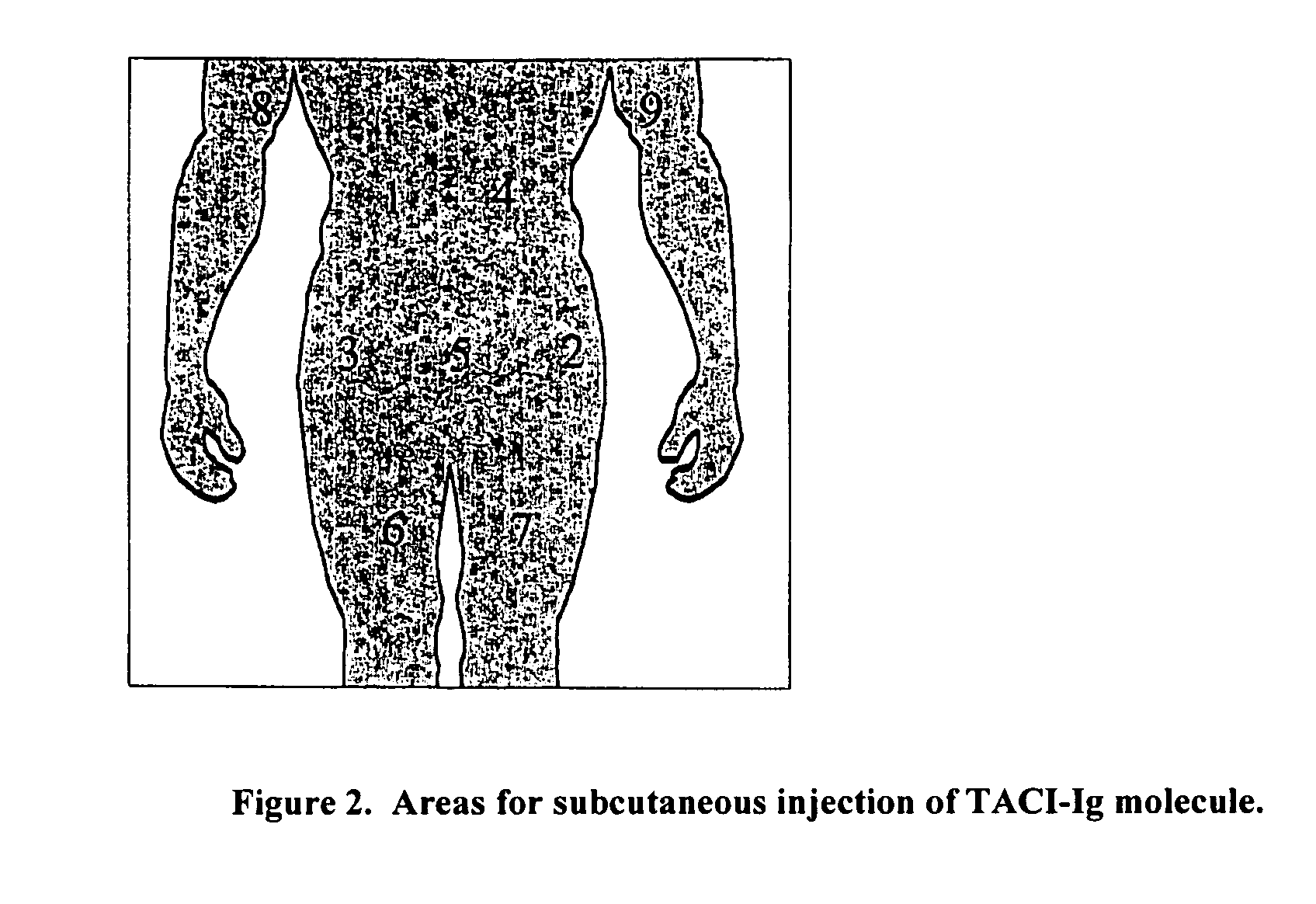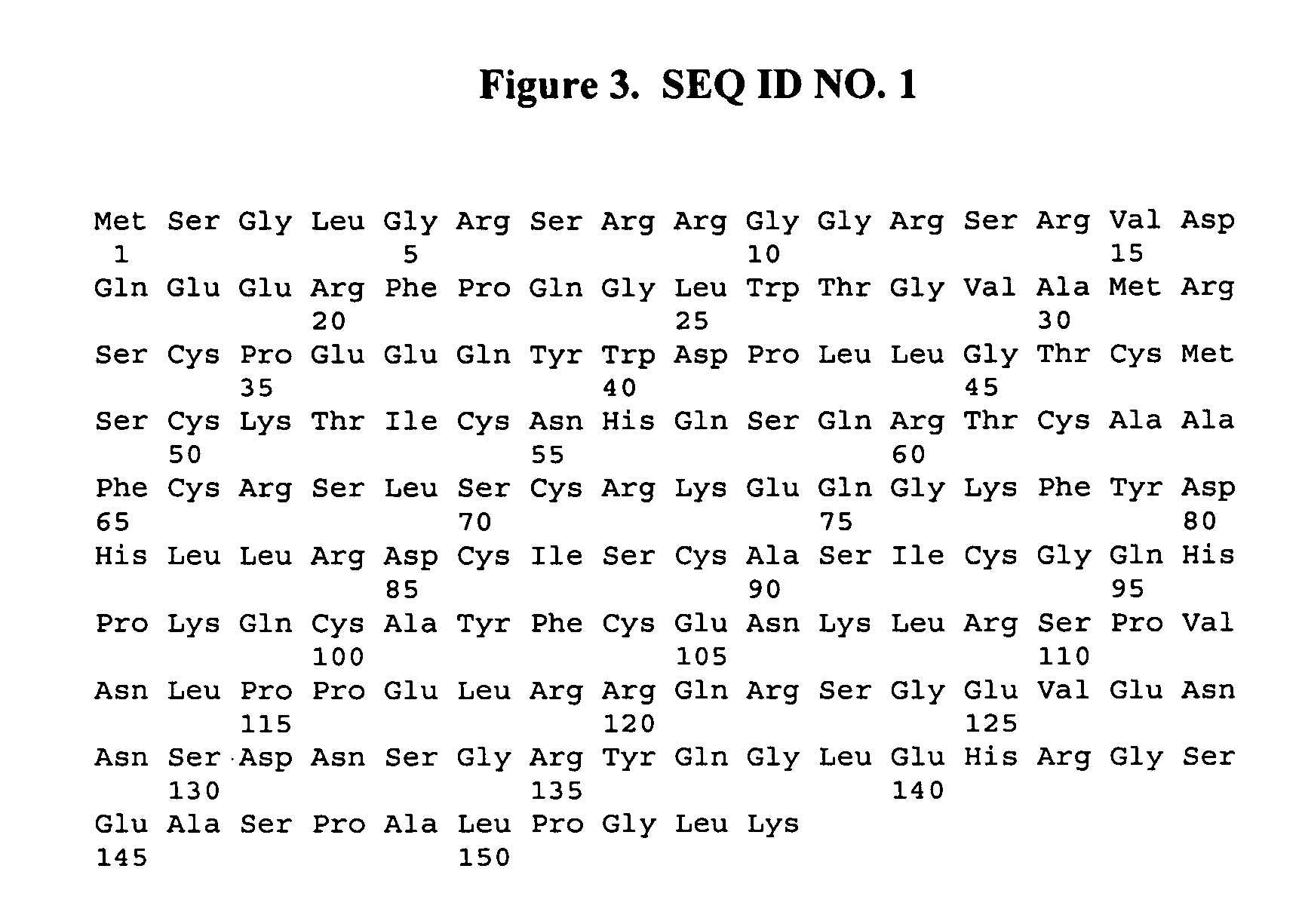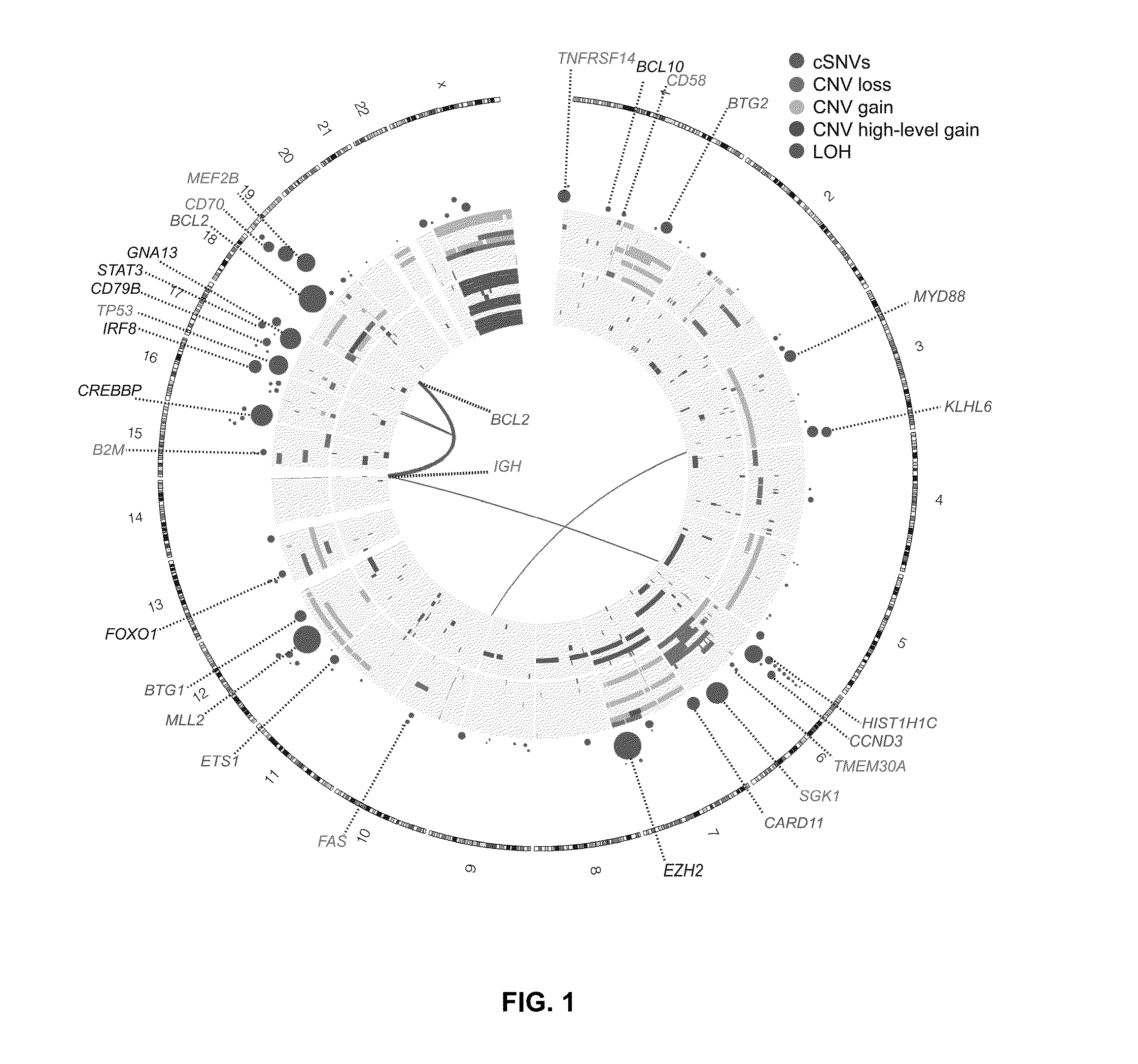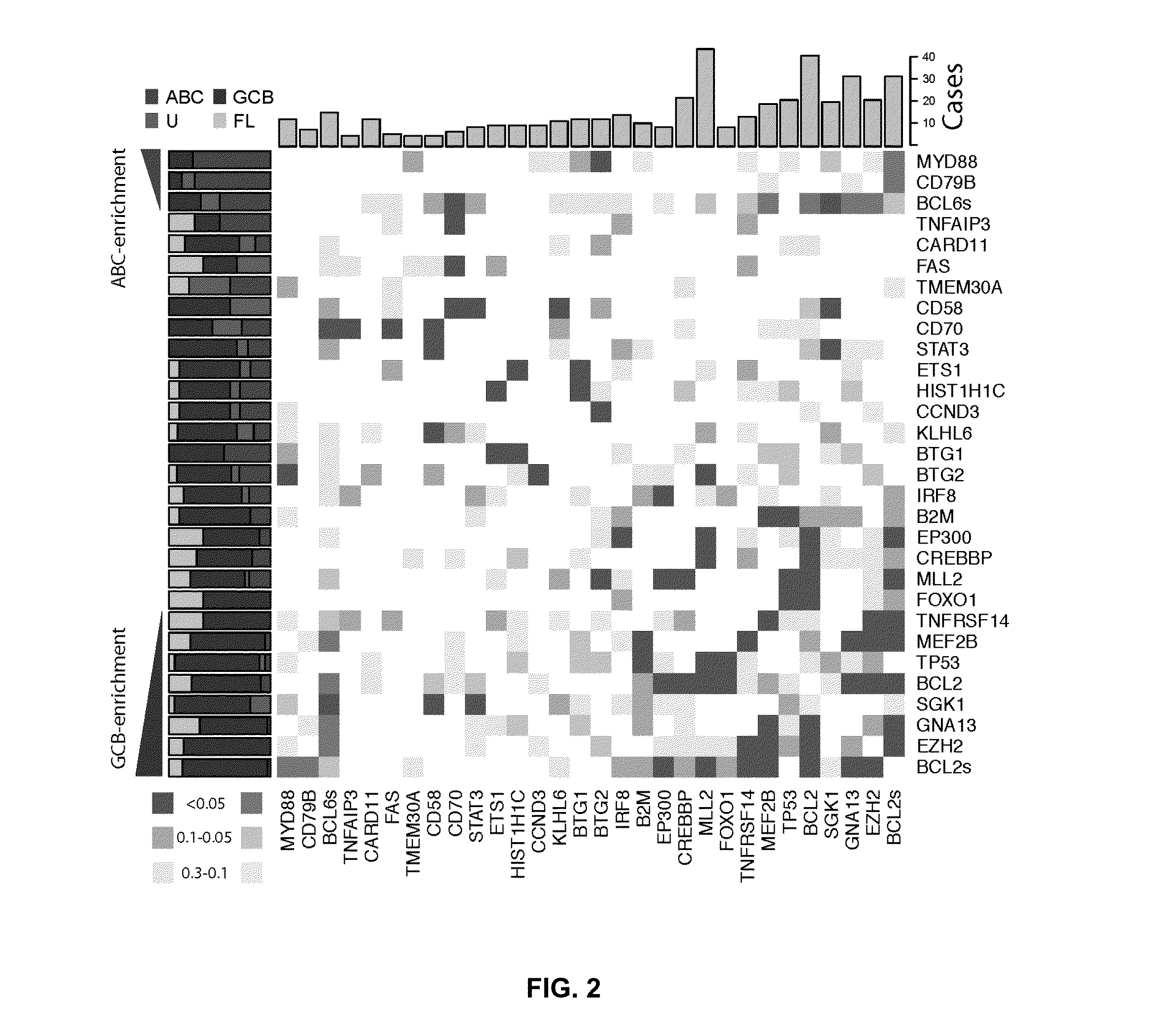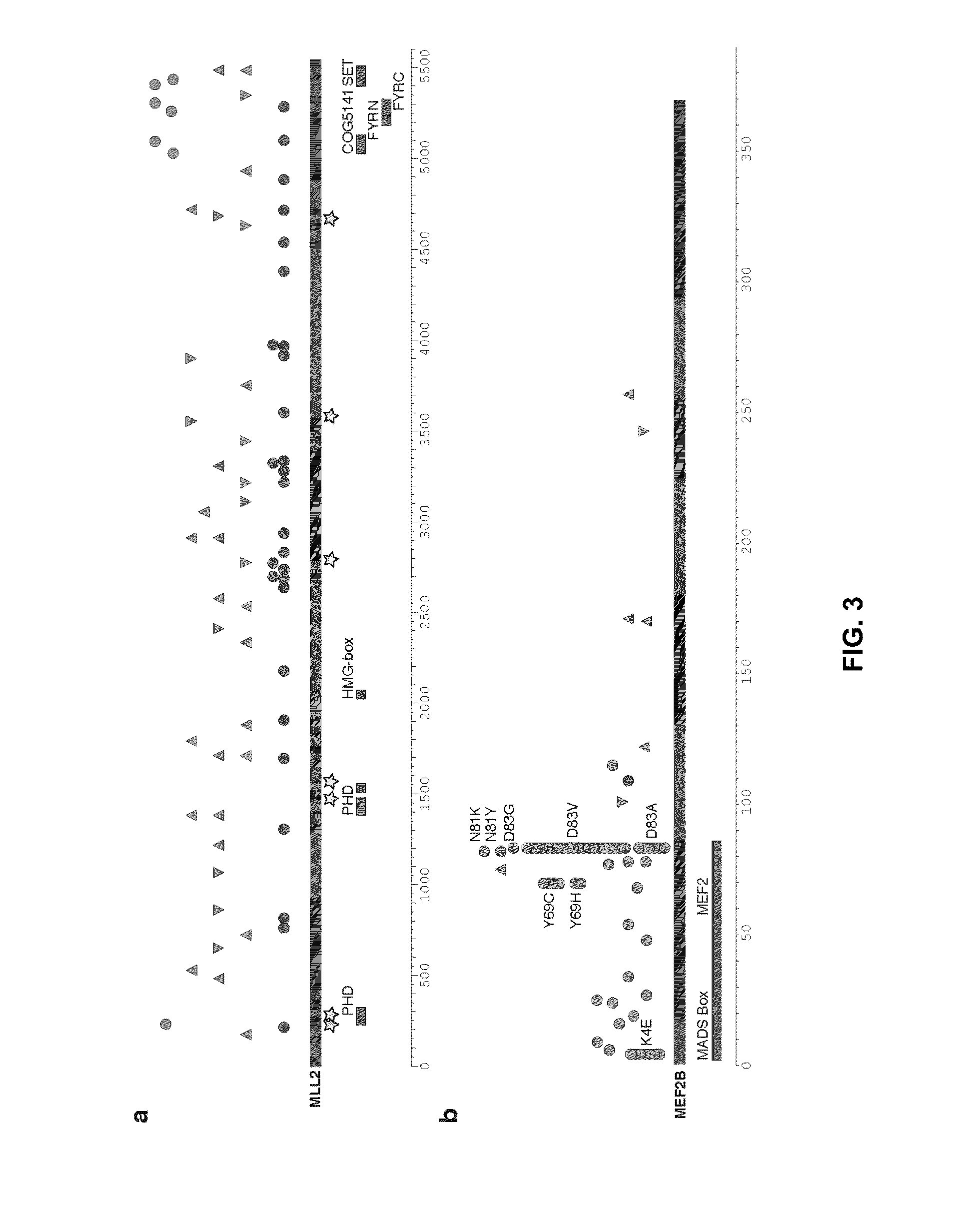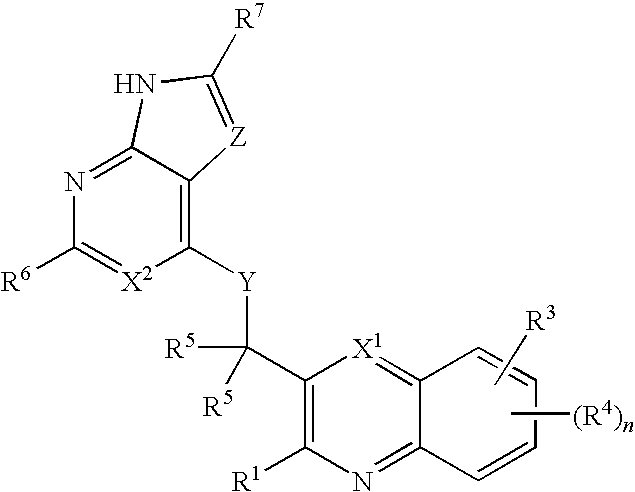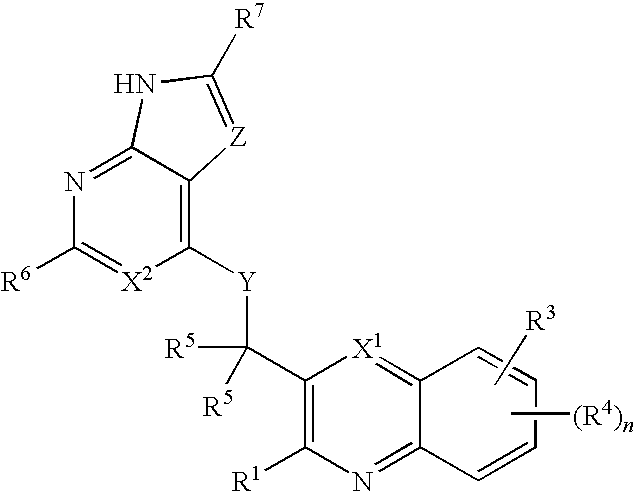Patents
Literature
104 results about "Non-Hodgkin's lymphoma" patented technology
Efficacy Topic
Property
Owner
Technical Advancement
Application Domain
Technology Topic
Technology Field Word
Patent Country/Region
Patent Type
Patent Status
Application Year
Inventor
A cancer of the immune system that develops from abnormal lymphocytes.
Fcgamma-RIIB-specific antibodies and methods of use thereof
InactiveUS20050260213A1Good curative effectAvoid managementHybrid immunoglobulinsImmunoglobulins against cell receptors/antigens/surface-determinantsAntigen Binding FragmentTherapeutic effect
The present invention relates to antibodies or fragments thereof that specifically bind FcγRIIB, particularly human FcγRIIB, with greater affinity than said antibodies or fragments thereof bind FcγRIIA, particularly human FcγRIIA. The present invention also provides the use of an anti-FcγRIIB antibody or an antigen-binding fragment thereof, as a single agent therapy for the treatment, prevention, management, or amelioration of a cancer, preferably a B-cell malignancy, particularly, B-cell chronic lymphocytic leukemia or non-Hodgkin's lymphoma, an autoimmune disorder, an inflammatory disorder, an IgE-mediated allergic disorder, or one or more symptoms thereof. The invention provides methods of enhancing the therapeutic effect of therapeutic antibodies by administering the antibodies of the invention to enhance the effector function of the therapeutic antibodies. The invention also provides methods of enhancing efficacy of a vaccine composition by administering the antibodies of the invention.
Owner:MACROGENICS INC
Methods and compositions for determining neoplastic disease responsiveness to antibody therapy
InactiveUS20030219818A1Microbiological testing/measurementDisease diagnosisFollicular lymphoma grade IIWilms' tumor
Methods are provided for determining whether a subject suffering from a neoplastic condition, e.g., non-Hodgkin's lymphoma (NHL), such as follicular lymphoma, is responsive to antineoplastic therapy, such as antibody therapy, e.g., Rituximab. In practicing the subject methods, an expression profile is obtained from the subject suffering from NHL and employed to determine whether the subject is responsive to antineoplastic therapy. In addition, reagents and kits thereof that find use in practicing the subject methods are provided.
Owner:THE BOARD OF TRUSTEES OF THE LELAND STANFORD JUNIOR UNIV
FcGammaRIIB Specific Antibodies and Methods of Use Thereof
InactiveUS20090053218A1Good curative effectAvoid managementAntibody ingredientsImmunoglobulinsTreatment effectAutoimmune responses
The present invention relates to antibodies or fragments thereof that specifically bind FcγRIIB, particularly human FcγRIIB, with greater affinity than said antibodies or fragments thereof bind FcγRIIA, particularly human FcγRIIA. The present invention also encompasses the use of an anti-FcγRIIB antibody or an antigen-binding fragment thereof, as a single agent therapy for the treatment, prevention, management, or amelioration of a cancer, preferably a B-cell malignancy, particularly, B-cell chronic lymphocytic leukemia or non-Hodgkin's lymphoma, an autoimmune disorder, an inflammatory disorder, an IgE-mediated allergic disorder, or one or more symptoms thereof. The present invention also encompasses the use of an anti-FcγRIIB antibody or an antigen-binding fragment thereof, in combination with other cancer therapies. The present invention provides pharmaceutical compositions comprising an anti-FcγRIIB antibody or an antigen-binding fragment thereof, in amounts effective to prevent, treat, manage, or ameliorate a cancer, such as a B-cell malignancy, an autoimmune disorder, an inflammatory disorder, an IgE-mediated allergic disorder, or one or more symptoms thereof. The invention further provides methods of enhancing the therapeutic effect of therapeutic antibodies by administering the antibodies of the invention to enhance the effector function of the therapeutic antibodies. The invention also provides methods of enhancing efficacy of a vaccine composition by administering the antibodies of the invention with a vaccine composition.
Owner:MACROGENICS INC
Fc.gamma.RIIB-Specific Antibodies and Methods of Use Thereof
ActiveUS20080044429A1Good curative effectEnhanced effector functionSugar derivativesPeptide/protein ingredientsTreatment effectAntigen Binding Fragment
The present invention relates to antibodies or fragments thereof that specifically bind FcγRIIB, particularly human FcγRIIB, with greater affinity than said antibodies or fragments thereof bind FcγRIIA, particularly human FcγRIIA. The present invention also provides the use of an anti-FcγRIIB antibody or an antigen-binding fragment thereof, as a single agent therapy for the treatment, prevention, management, or amelioration of a cancer, preferably a B-cell malignancy, particularly, B-cell chronic lymphocytic leukemia or non-Hodgkin's lymphoma, an autoimmune disorder, an inflammatory disorder, an IgE-mediated allergic disorder, or one or more symptoms thereof. The invention provides methods of enhancing the therapeutic effect of therapeutic antibodies by administering the antibodies of the invention to enhance the effector function of the therapeutic antibodies. The invention also provides methods of enhancing efficacy of a vaccine composition by administering the antibodies of the invention.
Owner:MACROGENICS INC
FcGammaRIIB Specific Antibodies and Methods of Use Thereof
InactiveUS20090074771A1Strong therapeutic activityEnhancing antibody-mediated effector functionAntibody ingredientsImmunoglobulinsTolerabilityImmune complex deposition
The present invention relates to antibodies or fragments thereof that specifically bind FcγRIIB, particularly human FcγRIIB, more particularly the extracellular domain of FcγRIIB with greater affinity than said antibodies or fragments thereof bind FcγRIIA, particularly human FcγRIIA, and block the Fc binding site of FcγRIIB. The present invention also encompasses the use of an anti-FcγRIIB antibody or an antigen-binding fragment thereof, as a single agent therapy for the treatment, prevention, management, or amelioration of a cancer, preferably a B-cell malignancy, particularly, B-cell chronic lymphocytic leukemia or non-Hodgkin's lymphoma, an autoimmune disorder, an inflammatory disorder, an IgE-mediated allergic disorder, or one or more symptoms thereof. The present invention also encompasses the use of an anti-FcγRIIB antibody or an antigen-binding fragment thereof, in combination with other cancer therapies. The present invention provides pharmaceutical compositions comprising an anti-FcγRIIB antibody or an antigen-binding fragment thereof, in amounts effective to prevent, treat, manage, or ameliorate a cancer, such as a B-cell malignancy, an autoimmune disorder, an inflammatory disorder, an IgE-mediated allergic disorder, or one or more symptoms thereof. The invention further provides methods of enhancing the therapeutic effect of therapeutic antibodies by administering the antibodies of the invention to enhance the effector function of the therapeutic antibodies. The invention also provides methods of enhancing efficacy of a vaccine composition by administering the antibodies of the invention with a vaccine composition. The invention further provides methods of treating cancer and / or regulating immune complex-mediated cell activation by administering the antibodies of the invention to enhance an immune response. The invention also provides methods of breaking tolerance to an antigen by administering an antigen-antibody complex and an antibody of the invention.
Owner:MACROGENICS INC
FcγRIIB specific antibodies and methods of use thereof
The present invention relates to antibodies or fragments thereof that specifically bind FcγRIIB, particularly human FcγRIIB, with greater affinity than said antibodies or fragments thereof bind FcγRIIA, particularly human FcγRIIA. The present invention also encompasses the use of an anti-FcγRIIB antibody or an antigen-binding fragment thereof, as a single agent therapy for the treatment, prevention, management, or amelioration of a cancer, preferably a B-cell malignancy, particularly, B-cell chronic lymphocytic leukemia or non-Hodgkin's lymphoma, an autoimmune disorder, an inflammatory disorder, an IgE-mediated allergic disorder, or one or more symptoms thereof. The present invention also encompasses the use of an anti-FcγRIIB antibody or an antigen-binding fragment thereof, in combination with other cancer therapies. The present invention provides pharmaceutical compositions comprising an anti-FcγRIIB antibody or an antigen-binding fragment thereof, in amounts effective to prevent, treat, manage, or ameliorate a cancer, such as a B-cell malignancy, an autoimmune disorder, an inflammatory disorder, an IgE-mediated allergic disorder, or one or more symptoms thereof. The invention further provides methods of enhancing the therapeutic effect of therapeutic antibodies by administering the antibodies of the invention to enhance the effector function of the therapeutic antibodies. The invention also provides methods of enhancing efficacy of a vaccine composition by administering the antibodies of the invention with a vaccine composition.
Owner:MACROGENICS INC
Method of targeted gene delivery using viral vectors
Methods and compositions are provided for delivering a polynucleotide encoding a gene of interest to a target cell using a virus. The virus envelope comprises a cell-specific binding determinant that recognizes and binds to a component on the target cell surface, leading to endocytosis of the virus. A separate fusogenic molecule is also present on the envelope and facilitates delivery of the polynucleotide across the membrane and into the cytosol of the target cell. The methods and related compositions can be used for treating patients having suffering from a wide range of conditions, including infection, such as HIV; cancers, such as non-Hodgkin's lymphoma and breast cancer; and hematological disorders, such as severe combined immunodeficiency.
Owner:CALIFORNIA INST OF TECH
Antineoplastic combinations of CCI-779 and rituximab
InactiveUS20050272758A1Eliminate side effectsIncreased safety marginBiocideAntibody ingredientsPharmacologyNon-Hodgkin's lymphoma
Owner:WYETH
Methods for modulating macrophage proliferation using polyamine analogs
Methods for modulating macrophage proliferation in an individual afflicted with or at risk for a macrophage-associated disease are provided. The methods employ a polyamine analog, or salt or protected derivative thereof. Macrophage proliferation has been implicated in a number of serious disorders, including AIDS (HIV)-associated dementia, AIDS-associated non-Hodgkin's lymphoma, and Alzheimer's disease. The invention also provides methods for aiding diagnosis and monitoring therapy of a macrophage-associated non-HIV associated dementia, especially Alzheimer's disease. The invention also provides methods of delaying development of macrophage-associated non-HIV associated dementias, including Alzheimer's disease, which entail administration of an agent which modulates macrophage proliferation.
Owner:RGT UNIV OF CALIFORNIA
FcγRIIB specific antibodies and methods of use thereof
InactiveUS8946387B2Immunoglobulins against cell receptors/antigens/surface-determinantsAntibody ingredientsTolerabilityImmune complex deposition
The present invention relates to antibodies or fragments thereof that specifically bind FcγRIIB, particularly human FcγRIIB, more particularly the extracellular domain of FcγRIIB with greater affinity than said antibodies or fragments thereof bind FcγRIIA, particularly human FcγRIIA, and block the Fc binding site of FcγRIIB. The present invention also encompasses the use of an anti-FcγRIIB antibody or an antigen-binding fragment thereof, as a single agent therapy for the treatment, prevention, management, or amelioration of a cancer, preferably a B-cell malignancy, particularly, B-cell chronic lymphocytic leukemia or non-Hodgkin's lymphoma, an autoimmune disorder, an inflammatory disorder, an IgE-mediated allergic disorder, or one or more symptoms thereof. The present invention also encompasses the use of an anti-FcγRIIB antibody or an antigen-binding fragment thereof, in combination with other cancer therapies. The present invention provides pharmaceutical compositions comprising an anti-FcγRIIB antibody or an antigen-binding fragment thereof, in amounts effective to prevent, treat, manage, or ameliorate a cancer, such as a B-cell malignancy, an autoimmune disorder, an inflammatory disorder, an IgE-mediated allergic disorder, or one or more symptoms thereof. The invention further provides methods of enhancing the therapeutic effect of therapeutic antibodies by administering the antibodies of the invention to enhance the effector function of the therapeutic antibodies. The invention also provides methods of enhancing efficacy of a vaccine composition by administering the antibodies of the invention with a vaccine composition. The invention further provides methods of treating cancer and / or regulating immune complex-mediated cell activation by administering the antibodies of the invention to enhance an immune response. The invention also provides methods of breaking tolerance to an antigen by administering an antigen-antibody complex and an antibody of the invention.
Owner:MACROGENICS INC
Cd20 antibodies and uses thereof
CD20 is a transmembrane protein of the tetra-spanin family expressed on the surface of B-cells and has been found on B-cells from peripheral blood as well as lymphoid tissues. CD20 expression persists from the early pre-B cell stage until the plasma cell differentiation stage. Conversely, it is not found on hematopoietic stem cells, pro-B cells, differentiated plasma cells or non-lymphoid tissues. In addition to expression in normal B-cells, CD20 is expressed in B-cell derived malignancies such as non-Hodgkin's lymphoma (NHL) and B-cell chronic lymphocytic leukemia (CLL). CD20 expressing cells are known to play a role in other diseases and disorders, including inflammation. The present invention includes anti-CD20 antibodies, forms and fragments, having superior physical and functional properties; immunoconjugates, compositions, diagnostic reagents, methods for inhibiting growth, therapeutic methods, improved antibodies and cell lines; and polynucleotides, vectors and genetic constructs encoding same.
Owner:IMMUNOGEN INC
FcGammaRIIB Specific Antibodies and Methods of Use Thereof
InactiveUS20090076251A1Strong therapeutic activityEnhancing antibody-mediated effector functionImmunoglobulins against cell receptors/antigens/surface-determinantsAntibody ingredientsTolerabilityAutoimmune responses
The present invention relates to antibodies or fragments thereof that specifically bind FcγRIIB, particularly human FcγRIIB, more particularly the extracellular domain of FcγRIIB with greater affinity than said antibodies or fragments thereof bind FcγRIIA, particularly human FcγRIIA, and block the Fc binding site of FcγRIIB. The present invention also encompasses the use of an anti-FcγRIIB antibody or an antigen-binding fragment thereof, as a single agent therapy for the treatment, prevention, management, or amelioration of a cancer, preferably a B-cell malignancy, particularly, B-cell chronic lymphocytic leukemia or non-Hodgkin's lymphoma, an autoimmune disorder, an inflammatory disorder, an IgE-mediated allergic disorder, or one or more symptoms thereof. The present invention also encompasses the use of an anti-FcγRIIB antibody or an antigen-binding fragment thereof, in combination with other cancer therapies. The present invention provides pharmaceutical compositions comprising an anti-FcγRIIB antibody or an antigen-binding fragment thereof, in amounts effective to prevent, treat, manage, or ameliorate a cancer, such as a B-cell malignancy, an autoimmune disorder, an inflammatory disorder, an IgE-mediated allergic disorder, or one or more symptoms thereof. The invention further provides methods of enhancing the therapeutic effect of therapeutic antibodies by administering the antibodies of the invention to enhance the effector function of the therapeutic antibodies. The invention also provides methods of enhancing efficacy of a vaccine composition by administering the antibodies of the invention with a vaccine composition. The invention further provides methods of treating cancer and / or regulating immune complex-mediated cell activation by administering the antibodies of the invention to enhance an immune response. The invention also provides methods of breaking tolerance to an antigen by administering an antigen-antibody complex and an antibody of the invention.
Owner:MACROGENICS INC
Treatment of aggressive non-Hodgkins lymphoma with anti-CD20 antibody
InactiveUS8557244B1Organic active ingredientsIn-vivo radioactive preparationsDiseaseHodgkins lymphomas
This invention concerns methods for the treatment of intermediate and high-grade non-Hodgkins lymphomas, comprising the administration of anti-CD20 monoclonal antibodies and fragments thereof. Particular embodiments include the administration of chimeric anti-CD20 antibody, either alone or in combination with radiolabeled antibodies or chemotherapy. The invention is particularly useful for lymphomas characterized by a high number of circulating B cells, possibly bone marrow involvement, bulky disease, or the involvement of extralymphatic organs or sites.
Owner:BIOGEN INC
HDAC inhibitors, alone or in combination with btk inhibitors, for treating nonhodgkin's lymphoma
The invention relates to HDAC inhibitors, or combinations comprising an HDAC inhibitor and a BTK inhibitor for the treatment of non-hodgkin's lymphoma in a subject in need thereof. Also provided herein are methods for treating non-hodgkin's lymphoma in a subject in need thereof comprising administering to the subject a therapeutically effective amount of an HDAC inhibitor, or a combination comprising an HDAC inhibitor and a BTK inhibitor.
Owner:MOFFITT CANCER CENT +1
Method of targeted gene delivery using viral vectors
Methods and compositions are provided for delivering a polynucleotide encoding a gene of interest to a target cell using a virus. The virus envelope comprises a cell-specific binding determinant that recognizes and binds to a component on the target cell surface, leading to endocytosis of the virus. A separate fusogenic molecule is also present on the envelope and facilitates delivery of the polynucleotide across the membrane and into the cytosol of the target cell. The methods and related compositions can be used for treating patients having suffering from a wide range of conditions, including infection, such as HIV; cancers, such as non-Hodgkin's lymphoma and breast cancer; and hematological disorders, such as severe combined immunodeficiency.
Owner:CALIFORNIA INST OF TECH
Treatment of hematologic malignancies with an Anti-cxcr4 antibody
ActiveUS20140322208A1Inhibit capillary tube formationBoron compound active ingredientsImmunoglobulins against cell receptors/antigens/surface-determinantsCXCR4Monoclonal antibody
The present disclosure provides human monoclonal antibodies that bind specifically to CXCR4 with high affinity. This disclosure also provides a method for treating a subject afflicted with a CXCR4-expressing cancer, in particular a hematological malignancy such as multiple myeloma, acute myeloid leukemia, or non-Hodgkin's lymphoma, comprising administering to the subject a therapeutically effective amount of a pharmaceutical composition comprising an anti-CXCR4 antibody of the disclosure. The disclosure further provides a kit for treating a cancer in a subject comprising a dose of an anti-CXCR4 antibody and instructions for using the anti-CXCR4 antibody in the therapeutic methods of the disclosure.
Owner:BRISTOL MYERS SQUIBB CO
Novel CD19xCD3 specific polypeptides and uses thereof
Described are novel single-chain multifunctional polypeptides comprising at least two binding sites specific for the CD19 and CD3 antigen, respectively. Further provided are polypeptides, wherein the above-described polypeptide comprises at least one further domain, preferably of pre-determined function. Furthermore, polynucleotides encoding said polypeptides as well as to vectors comprising said polynucleotides and host cells transformed therewith and their use in the production of said polypeptides are described. In addition, compositions, preferably pharmaceutical and diagnostic compositions are provided comprising any of the afore-described polypeptides, polynucleotides or vectors. Described is also the use of the afore-mentioned polypeptides, polynucleotides and vectors for the preparation of pharmaceutical compositions for immunotherapy, preferably against B-cell malignancies such as non-Hodgkin lymphoma.
Owner:AMGEN RES (MUNICH) GMBH
Methods for the treatment of non-hodgkin's lymphomas using lenalidomide, and gene and protein biomarkers as a predictor
InactiveUS20110223157A1Monitoring effectiveness of treatmentBiocideMicrobiological testing/measurementADAMTS ProteinsFhit gene
Methods of treating or managing specific cancers, including non-Hodgkin's lymphoma, by the administration of 3-(4-amino-1-oxo-1,3-dihydro-isoindol-2-yl)-piperidine-2,6-dione are disclosed. Methods of using gene and protein biomarkers as a predictor of non-Hodgkin's lymphoma response to treatment with 3-(4-amino-1-oxo-1,3-dihydro-isoindol-2-yl)-piperidine-2,6-dione are also disclosed.
Owner:SCHAFER PETER H +3
Non-invasive diagnostic agents of cancer and methods of diagnosing cancer, especially leukemia and lymphoma
The present invention is directed to novel non-invasive diagnostic tools to image cancers, especially, leukemia and non-Hodgkin's lymphomas (NHL) with minimal toxicity in vivo. The present invention represents a clear advance in the art which presently relies on tissue biopsy for diagnoses of these cancers. The novel imaging probe is capable of detecting precancerous cells, as well as their metastatic spread in tissues. This represents a quantum step forward in the diagnosis and staging of NHL using non-invasively molecular imaging techniques. This novel probe will also be useful to monitor patients response to chemotherapy treatments and other interventions or therapies used in the treatment of NHL. Compounds according to the present invention may be used as diagnostic tools for a number of conditions and diseases states as well as therapeutic agents for treating such conditions and disease states.
Owner:STC UNM
DNA methylation biomarkers in lymphoid and hematopoietic malignancies
InactiveUS20090264306A1Guaranteed maximum utilizationImprove the detection rateMicrobiological testing/measurementLibrary screeningDNA methylationLymphocytic cell
Differential Methylation Hybridization (DMH) was used to identify novel methylation markers and methylation profiles for hematopoieetic malignancies, leukemia, lymphomas, etc. (e.g., non-Hodgkin's lymphomas (NHL), small B-cell lymphomas (SBCL), diffuse large B-cell lymphoma (DLBCL), follicular lymphoma (FL), mantle cell lymphoma (MCL), B-cell chronic lymphocytic leukemia / small lymphocytic lymphoma (B-CLL / SLL), chronic lymphocytic leukemia (CLL), multiple myeloma (MM), acute myelogenous leukemia (AML), acute lymphoblastic leukemia (ALL), etc.). Particular aspects provide novel biomarkers for NHL and subtypes thereof (e.g., MCL, B-CLL / SLL, FL, DLBCL, etc.), AML, ALL and MM, and further provide non-invasive tests (e.g. blood tests) for lymphomas and leukemias. Additional aspects provide markers for diagnosis, prognosis, monitoring responses to therapies, relapse, etc., and further provide targets and methods for therapeutic demethylating treatments. Further aspects provide cancer staging markers, and expression assays and approaches comprising idealized methylation and / or patterns” (IMP and / or IEP) and fusion of gene rankings.
Owner:UNIVERSITY OF MISSOURI
Methods for modulating macrophage proliferation using polyamine analogs
Methods for modulating macrophage proliferation in an individual afflicted with or at risk for a macrophage-associated disease are provided. The methods employ a polyamine analog, or salt or protected derivative thereof. Macrophage proliferation has been implicated in a number of serious disorders, including AIDS (HIV)-associated dementia, AIDS-associated non-Hodgkin's lymphoma, and Alzheimer's disease. The invention also provides methods for aiding diagnosis and monitoring therapy of a macrophage-associated non-HIV associated dementia, especially Alzheimer's disease. The invention also provides methods of delaying development of macrophage-associated non-HIV associated dementias, including Alzheimer's disease, which entail administration of an agent which modulates macrophage proliferation.
Owner:RGT UNIV OF CALIFORNIA
Heterocyclic compounds and their uses
Substituted bicyclic heteroaryls and compositions containing them, for the treatment of general inflammation, arthritis, rheumatic diseases, osteoarthritis, inflammatory bowel disorders, inflammatory eye disorders, inflammatory or unstable bladder disorders, psoriasis, skin complaints with inflammatory components, chronic inflammatory conditions, including but not restricted to autoimmune diseases such as systemic lupus erythematosis (SLE), myestenia gravis, rheumatoid arthritis, acute disseminated encephalomyelitis, idiopathic thrombocytopenic purpura, multiples sclerosis, Sjoegren's syndrome and autoimmune hemolytic anemia, allergic conditions including all forms of hypersensitivity. The present invention also enables methods for treating cancers that are mediated, dependent on or associated with pi 105 activity, including but not restricted to leukemias, such as Acute Myeloid leukaemia (AML) Myelo-dysplastic syndrome (MDS) myelo-proliferative diseases (MPD) Chronic Myeloid Leukemia (CML) T-cell Acute Lymphoblastic leukaemia (T-ALL) B-cell Acute Lymphoblastic leukaemia (B-ALL) Non Hodgkins Lymphoma (NHL) B-cell lymphoma and solid tumors, such as breast cancer.
Owner:AMGEN INC
HDAC Inhibitors, Alone Or In Combination With PI3K Inhibitors, For Treating Non-Hodgkin's Lymphoma
PendingUS20150105383A1Increased apoptosisReduce proliferationBiocideOrganic chemistryHDAC inhibitorCancer research
The invention relates to HDAC inhibitors, or combinations comprising an HDAC inhibitor and a PI3K inhibitor for the treatment of non-hodgkin's lymphoma in a subject in need thereof. Also provided herein are methods for treating non-hodgkin's lymphoma in a subject in need thereof comprising administering to the subject a therapeutically effective amount of an HDAC inhibitor, or a combination comprising an HDAC inhibitor and a PI3K inhibitor.
Owner:ACETYLON PHARMA
Combination therapies for b-cell lymphomas comprising administration of Anti-cd20 antibody
InactiveUS20080038261A1Good synergyHigh response rateOrganic active ingredientsPeptide/protein ingredientsRegimenHodgkins lymphomas
New combined therapeutic regimens for treatment of B-cell lymphomas are disclosed which comprise in particular administration of anti-CD20 antibodies to patients having low-, intermediate- or high-grade non-Hodgkins lymphomas.
Owner:BIOGEN INC
Inhibitors of protein kinases
InactiveCN102066338AInhibits syk kinase activityNervous disorderOrganic chemistryKinase activityJanus kinase
The present invention is directed to compounds of formula (I)-(II) and pharmaceutically acceptable salts, esters, and prodrugs thereof which are inhibitors of syk and / or JAK kinase. The present invention is also directed to intermediates used in making such compounds, the preparation of such a compound, pharmaceutical compositions containing such a compound, methods of inhibition syk and / or JAK kinase activity, methods of inhibition the platelet aggregation, and methods to prevent or treat a number of conditions mediated at least in part by syk and / or JAK kinase activity, such as undesired thrombosis and Non Hodgkin's Lymphoma.
Owner:PORTOLA PHARMA INC
Methods for treating B-cell malignancies using a TACI-Ig fusion molecule
InactiveUS20070071760A1Compounds screening/testingPeptide/protein ingredientsB cell malignancyNon-Hodgkin's lymphoma
The present invention provides methods and compositions for treatment of B-cell malignancies, including non-Hodgkin's lymphoma, comprising administering to a patient in need of the treatment a TACI-Ig fusion molecule in amount sufficient to suppress proliferation-inducing functions of BlyS and APRIL.
Owner:ARES TRADING SA +2
Biomarkers for Non-Hodgkin Lymphomas and Uses Thereof
InactiveUS20130195843A1Reduce molecular weightSmall sizeSugar derivativesMicrobiological testing/measurementBiologyB-Cell Non-Hodgkin Lymphoma
The disclosure provides a method of identifying a subject as having B-cell non-Hodgkin lymphoma (NHL) such as testing a sample from a subject for a mutation in one or more biomarkers. Also described are methods for classifying or monitoring a subject having, or suspected of having, B-cell non-Hodgkin lymphoma comprising testing the sample for a mutation in one or more biomarkers.
Owner:BRITISH COLUMBIA CANCER AGENCY BRANCH
Combination therapies for b-cell lymphomas comprising administration of Anti-cd20 antibody
InactiveUS20120258101A1Good synergyHigh response rateOrganic active ingredientsPeptide/protein ingredientsCombination therapyB cell
New combined therapeutic regimens for treatment of B-cell lymphomas are disclosed which comprise, in particular, administration of anti-CD20 antibodies to patients having low-, intermediate- or high-grade non-Hodgkin's lymphomas.
Owner:GRILLO LOPEZ ANTONIO J
Heterocyclic compounds and their uses
ActiveUS8193199B2Low inhibitory potencyInhibitory activityBiocideSenses disorderMyeloid leukemiaB-cell acute lymphoblastic leukaemia
Substituted bicyclic heteroaryls having the structures:and compositions containing them, for the treatment of general inflammation, arthritis, rheumatic diseases, osteoarthritis, inflammatory bowel disorders, inflammatory eye disorders, inflammatory or unstable bladder disorders, psoriasis, skin complaints with inflammatory components, chronic inflammatory conditions, including but not restricted to autoimmune diseases such as systemic lupus erythematosis (SLE), myestenia gravis, rheumatoid arthritis, acute disseminated encephalomyelitis, idiopathic thrombocytopenic purpura, multiples sclerosis, Sjoegren's syndrome and autoimmune hemolytic anemia, allergic conditions including all forms of hypersensitivity, The present invention also enables methods for treating cancers that are mediated, dependent on or associated with p110δ activity, including but not restricted to leukemias, such as Acute Myeloid leukaemia (AML) Myelo-dysplastic syndrome (MDS) myelo-proliferative diseases (MPD) Chronic Myeloid Leukemia (CML) T-cell Acute Lymphoblastic leukaemia (T-ALL) B-cell Acute Lymphoblastic leukaemia (B-ALL) Non Hodgkins Lymphoma (NHL) B-cell lymphoma and solid tumors, such as breast cancer.
Owner:AMGEN INC
Combination therapies for b-cell lymphomas comprising administration of Anti-cd20 antibody
InactiveUS20120251534A1Good synergyHigh response rateOrganic active ingredientsPeptide/protein ingredientsCombined Modality TherapyCombination therapy
New combined therapeutic regimens for treatment of B-cell lymphomas are disclosed which comprise, in particular, administration of anti-CD20 antibodies to patients having low-, intermediate- or high-grade non-Hodgkin's lymphomas.
Owner:GRILLO LOPEZ ANTONIO J
Features
- R&D
- Intellectual Property
- Life Sciences
- Materials
- Tech Scout
Why Patsnap Eureka
- Unparalleled Data Quality
- Higher Quality Content
- 60% Fewer Hallucinations
Social media
Patsnap Eureka Blog
Learn More Browse by: Latest US Patents, China's latest patents, Technical Efficacy Thesaurus, Application Domain, Technology Topic, Popular Technical Reports.
© 2025 PatSnap. All rights reserved.Legal|Privacy policy|Modern Slavery Act Transparency Statement|Sitemap|About US| Contact US: help@patsnap.com
